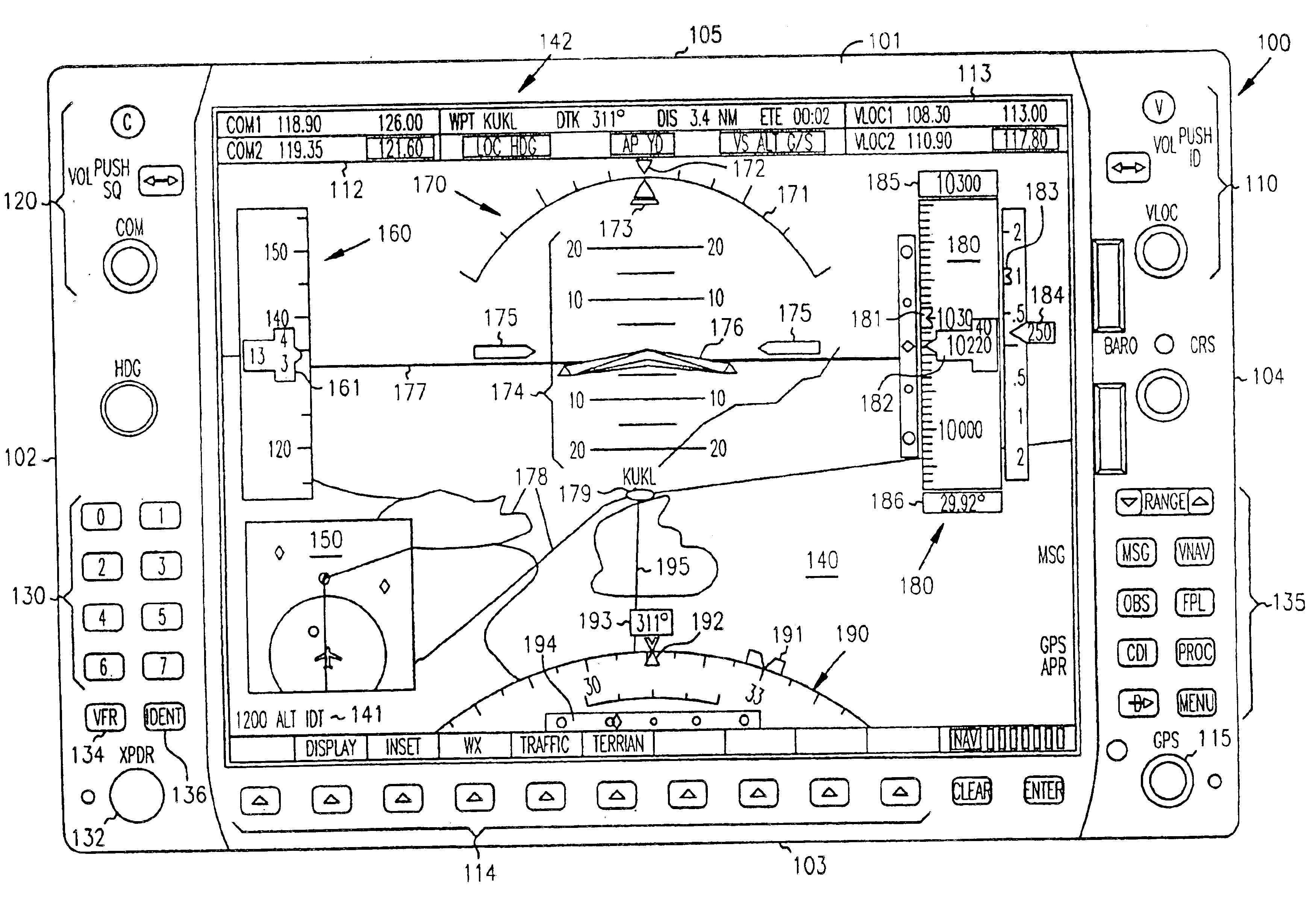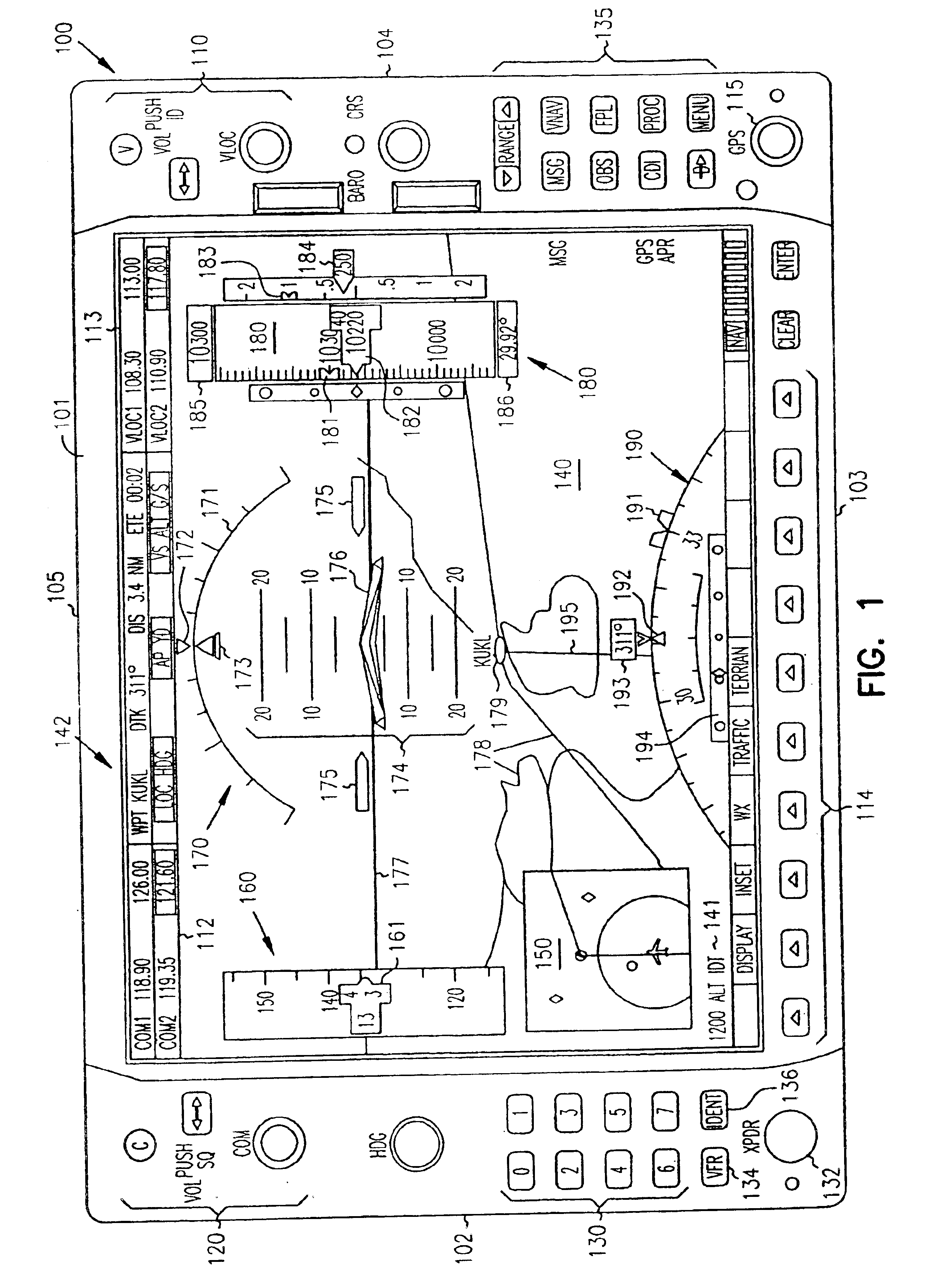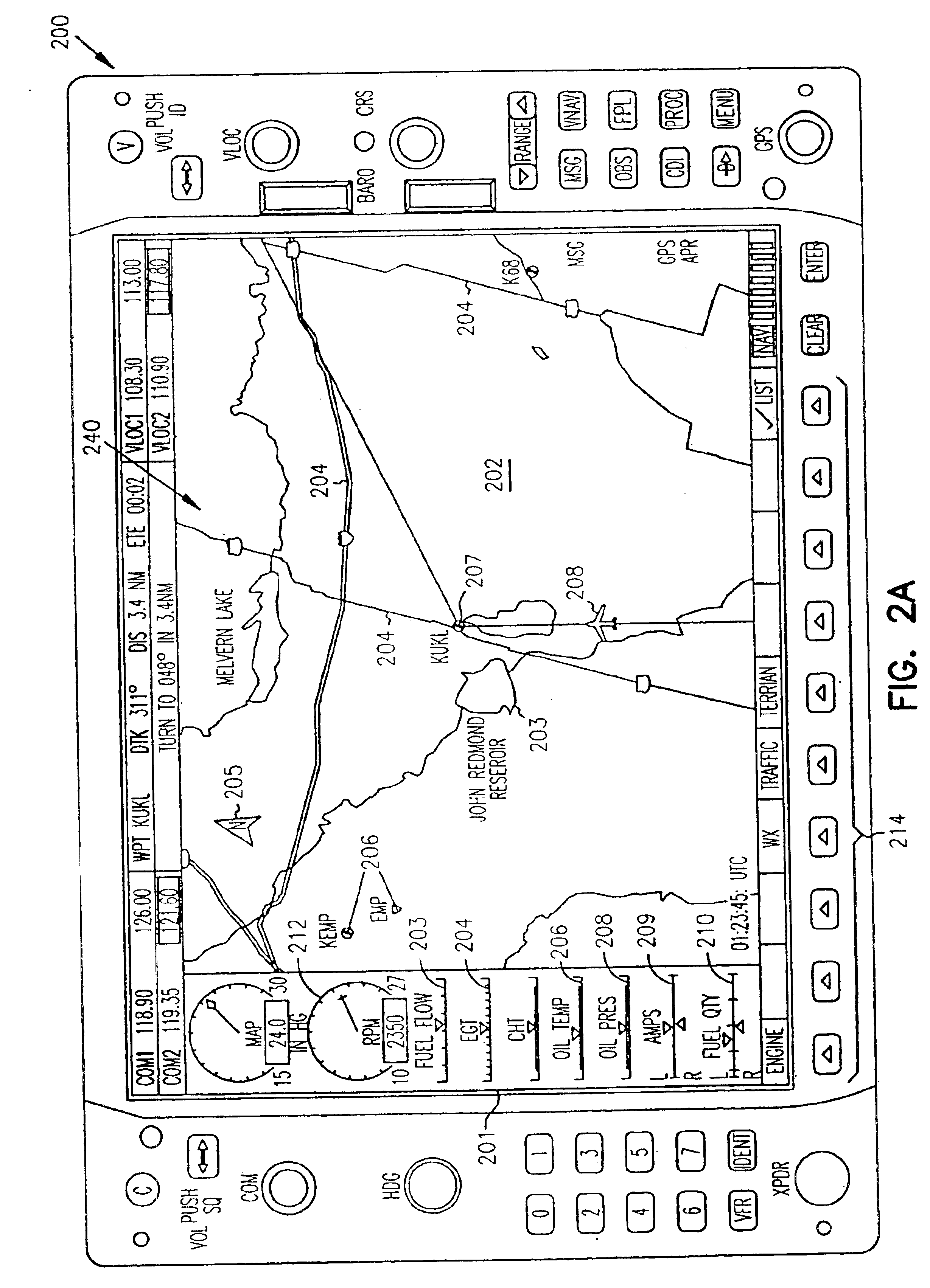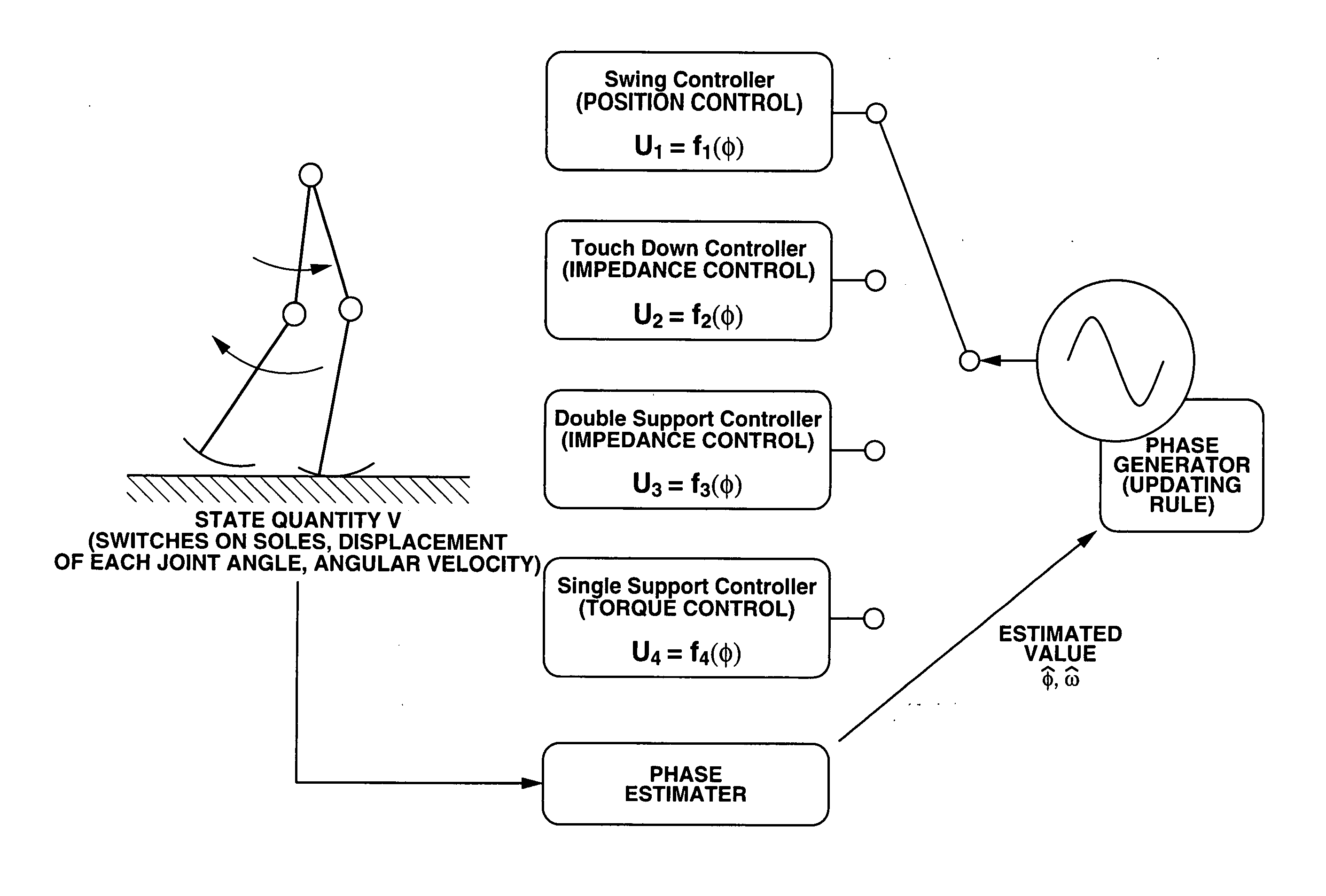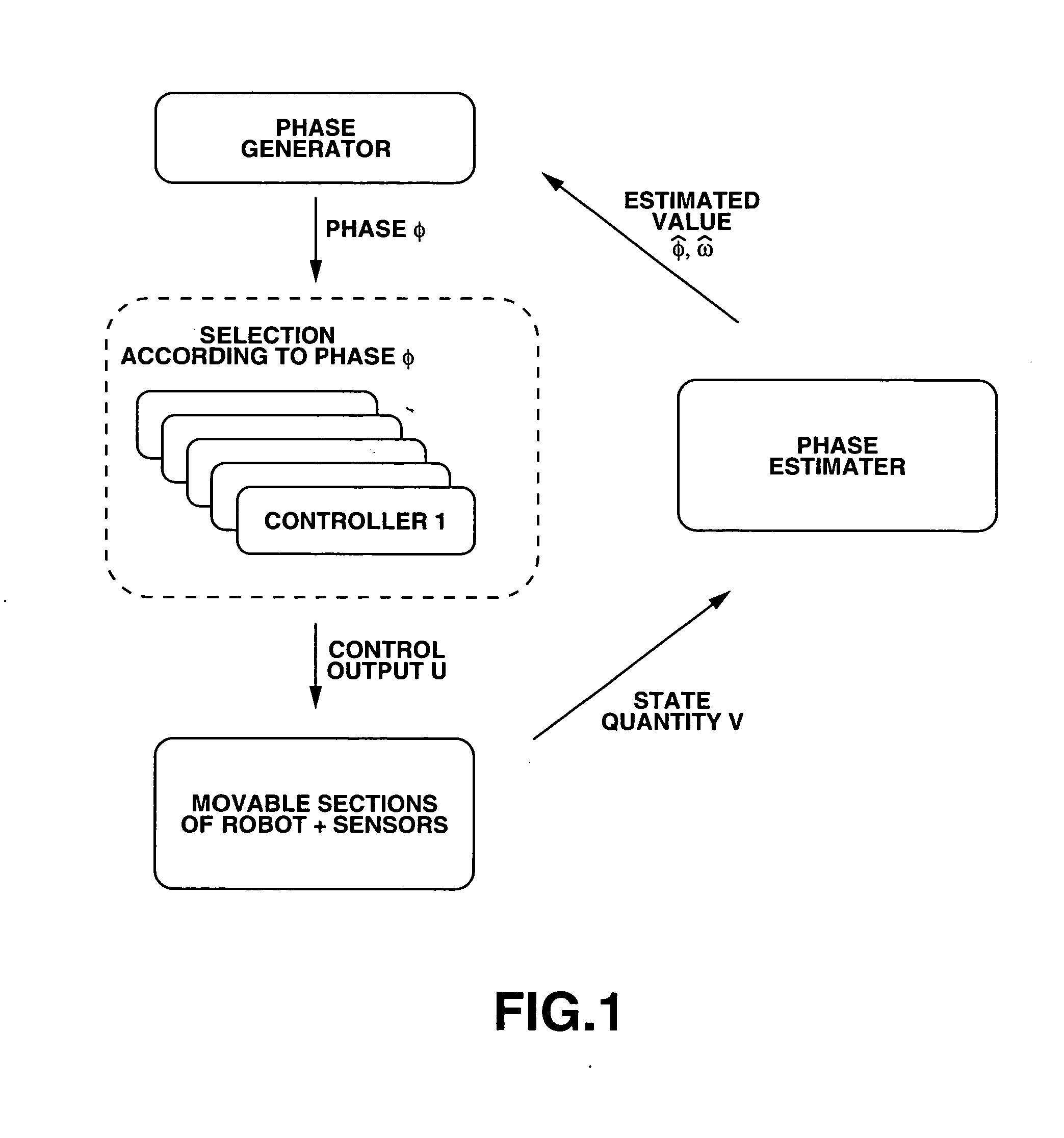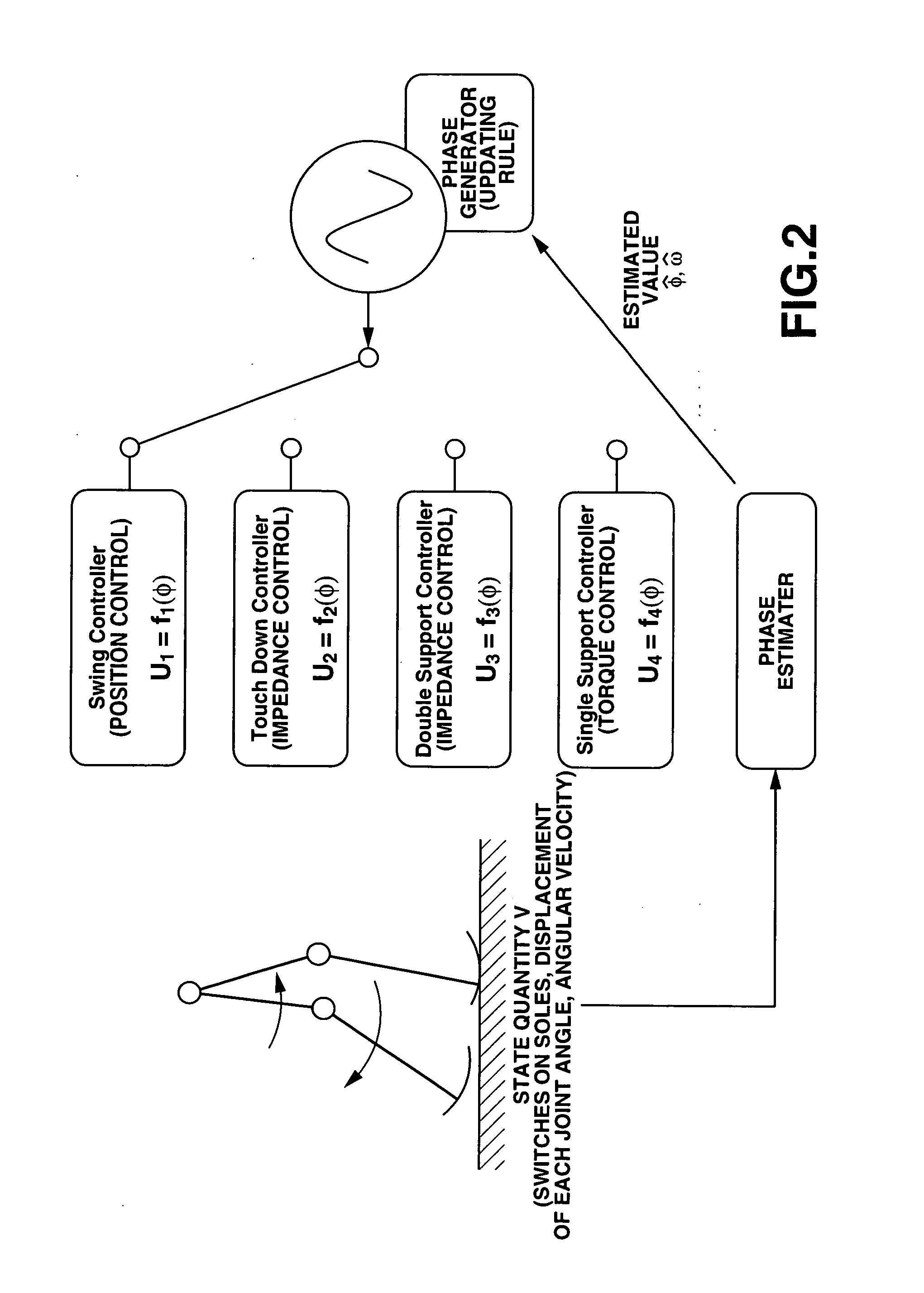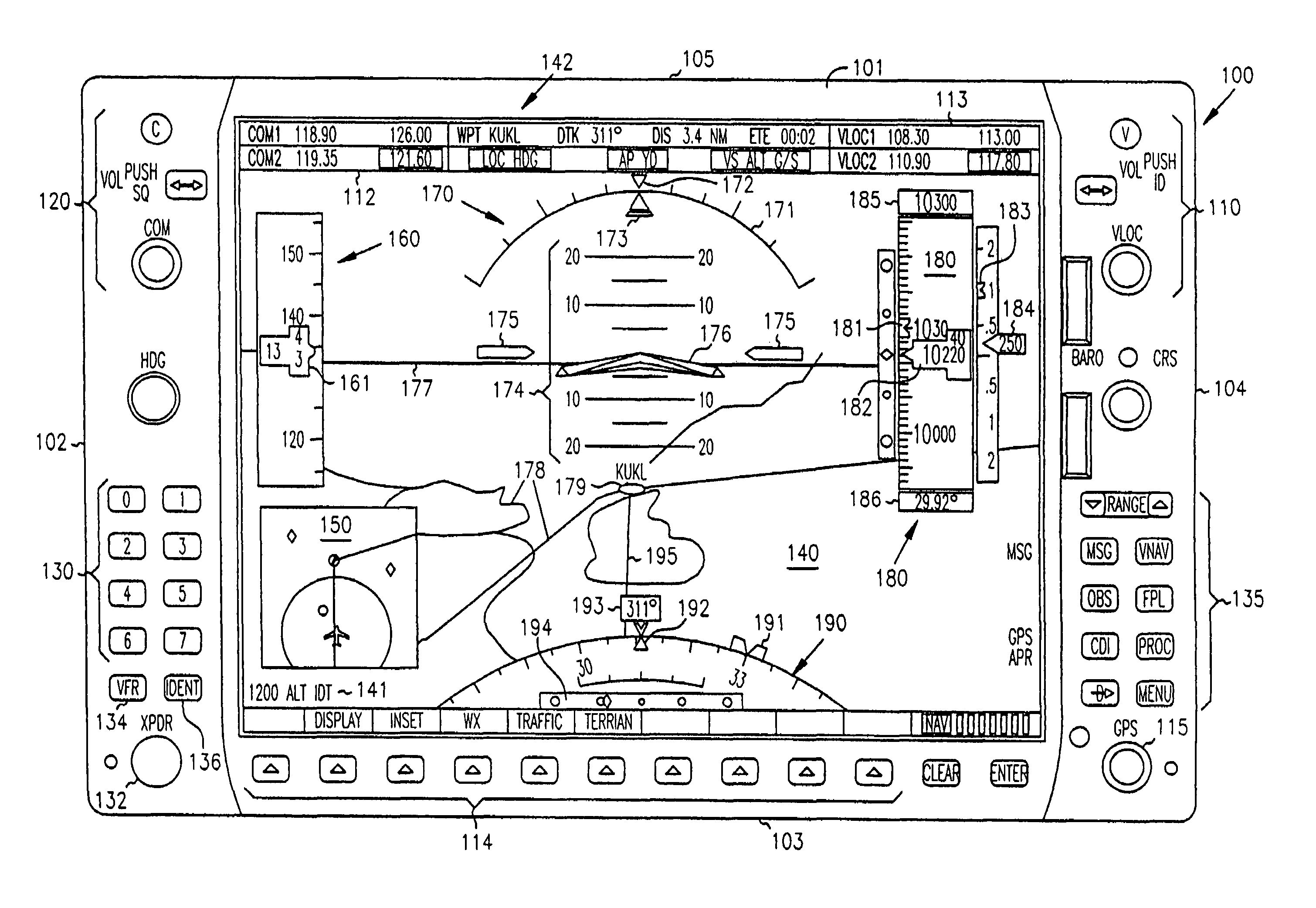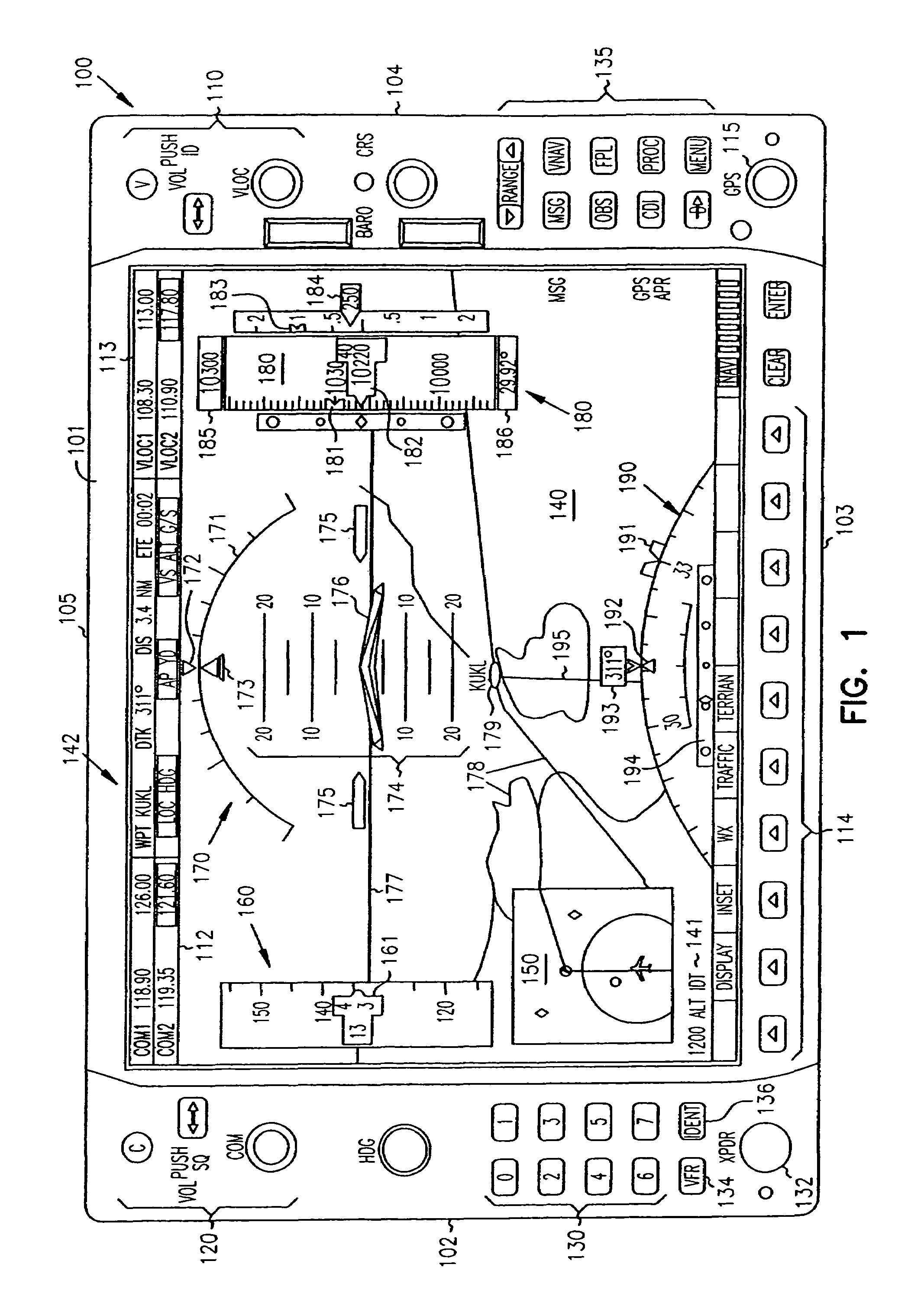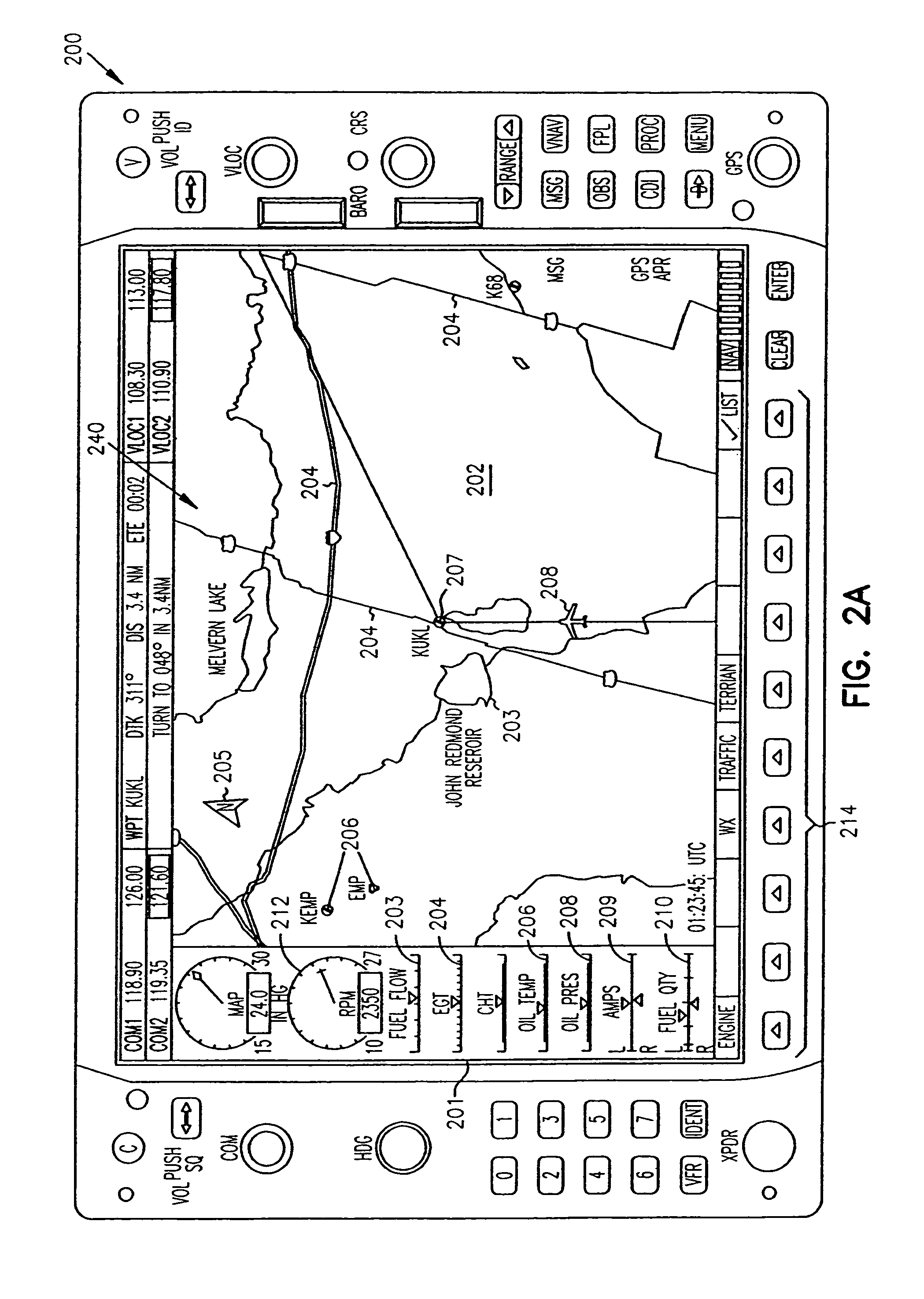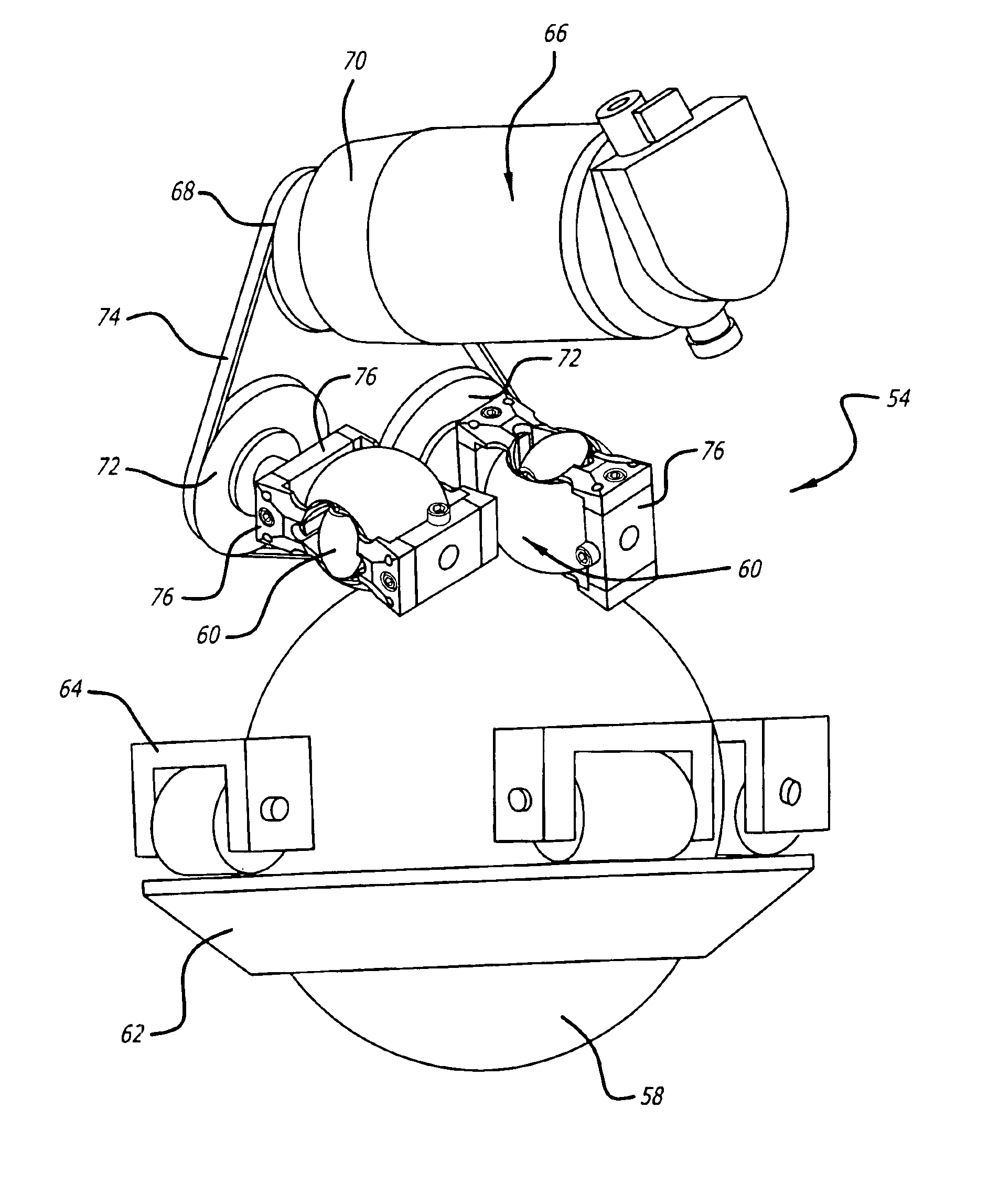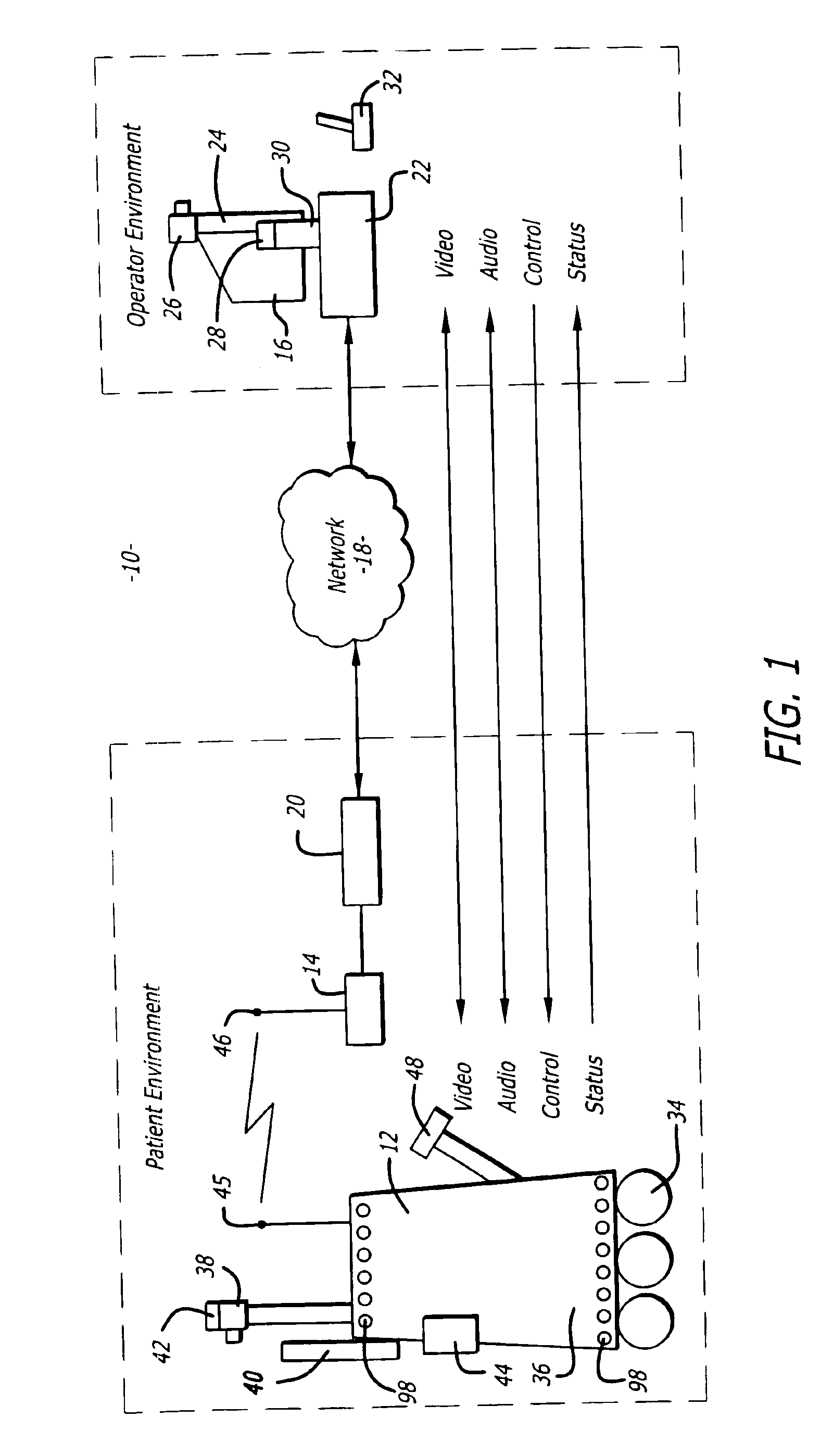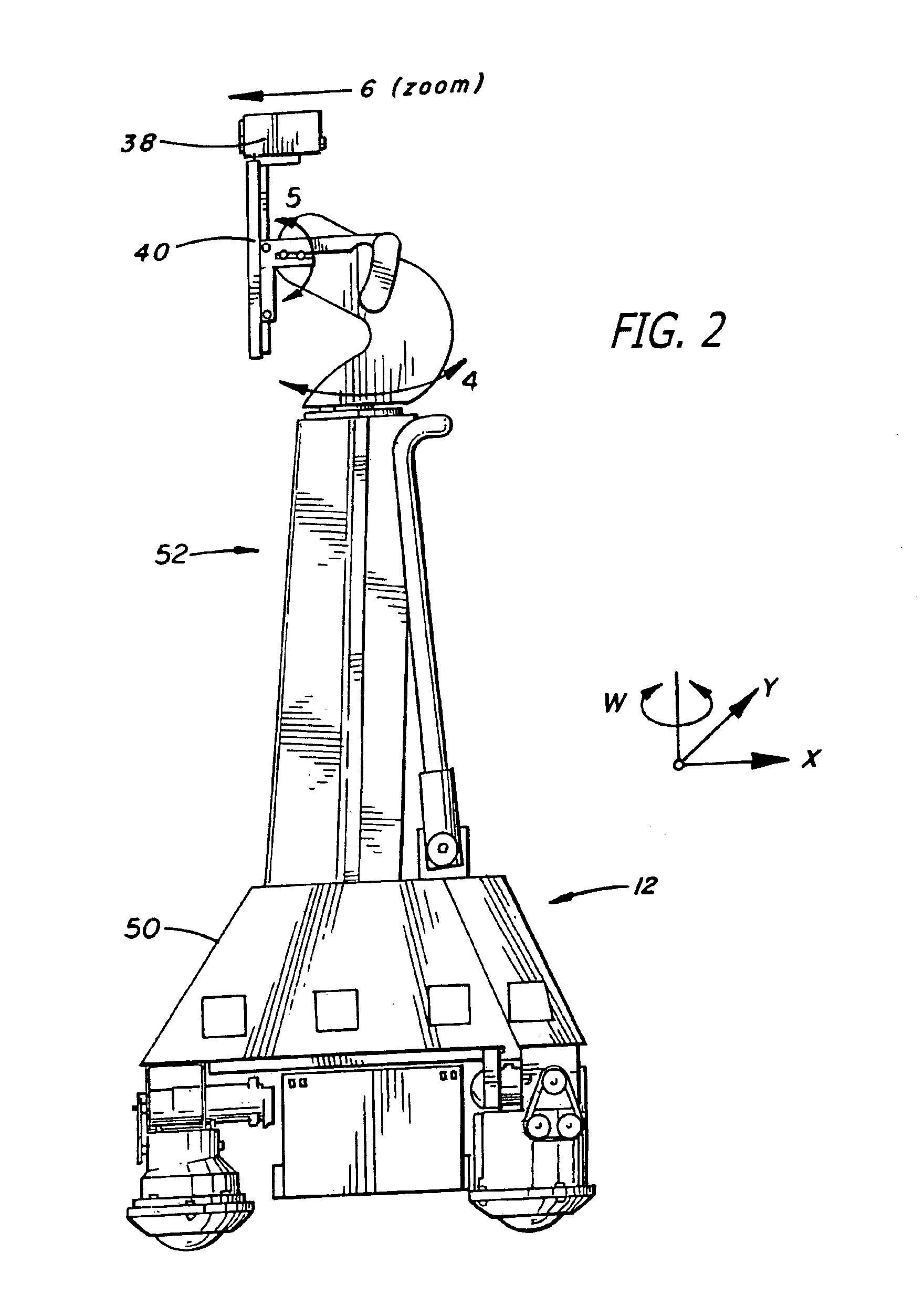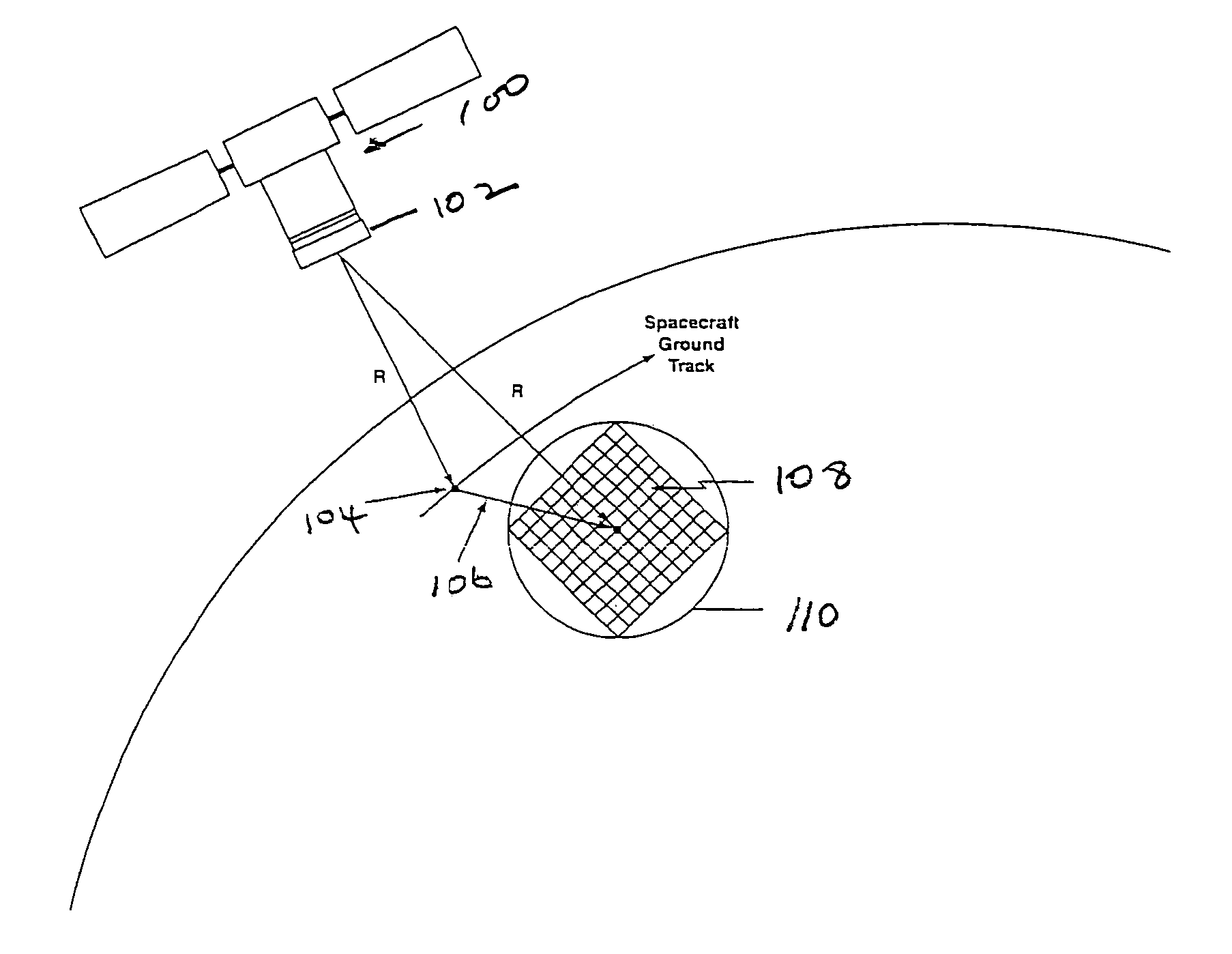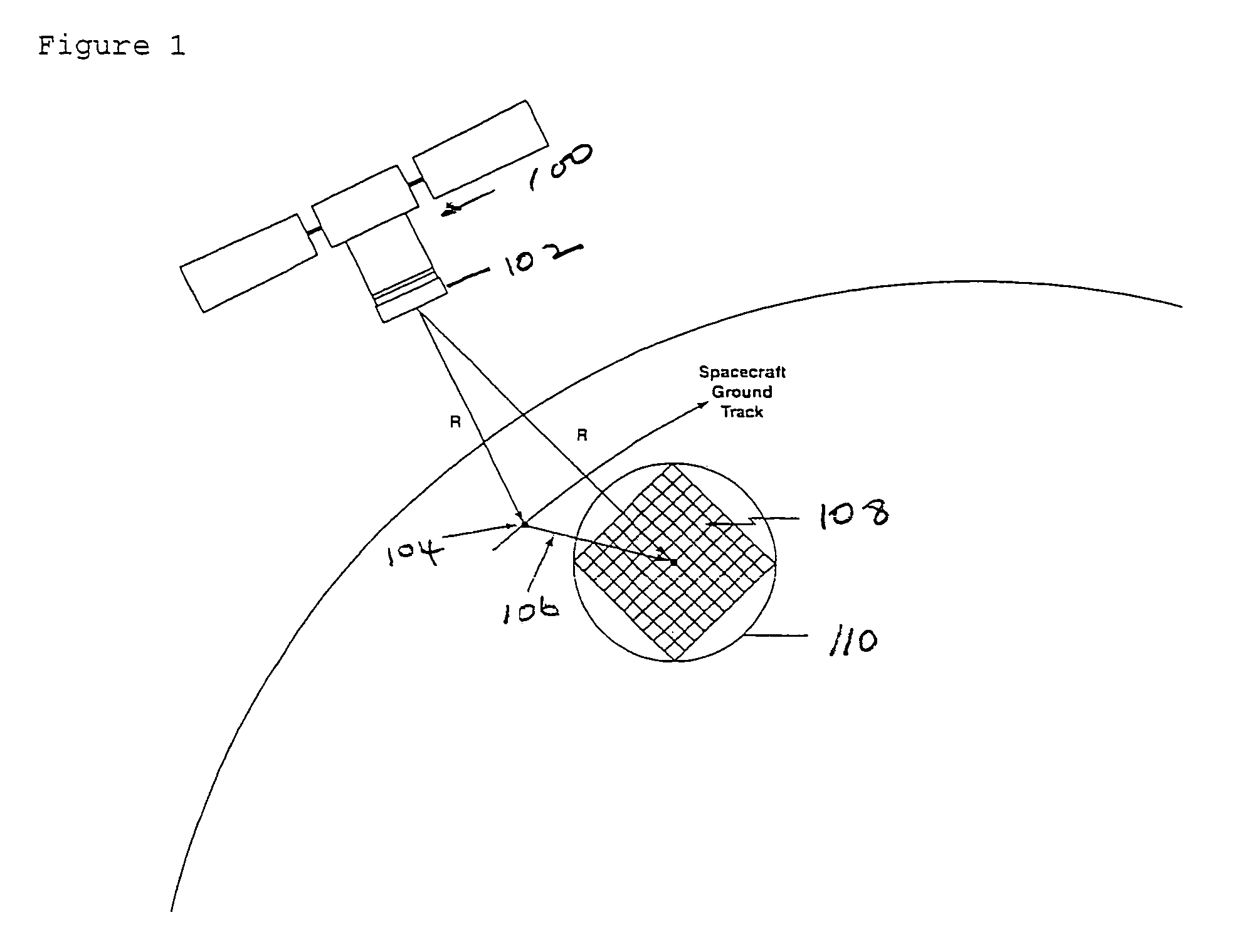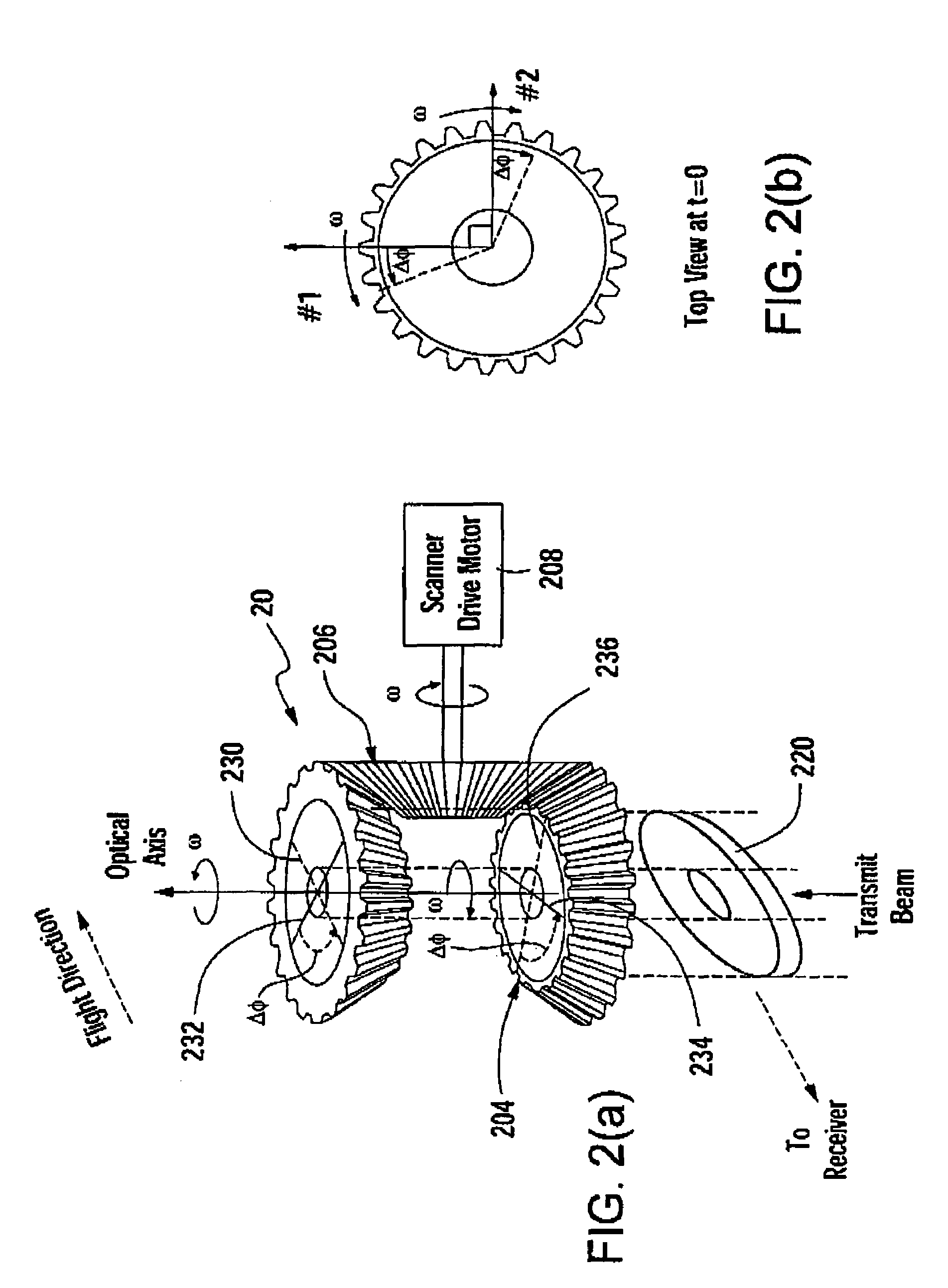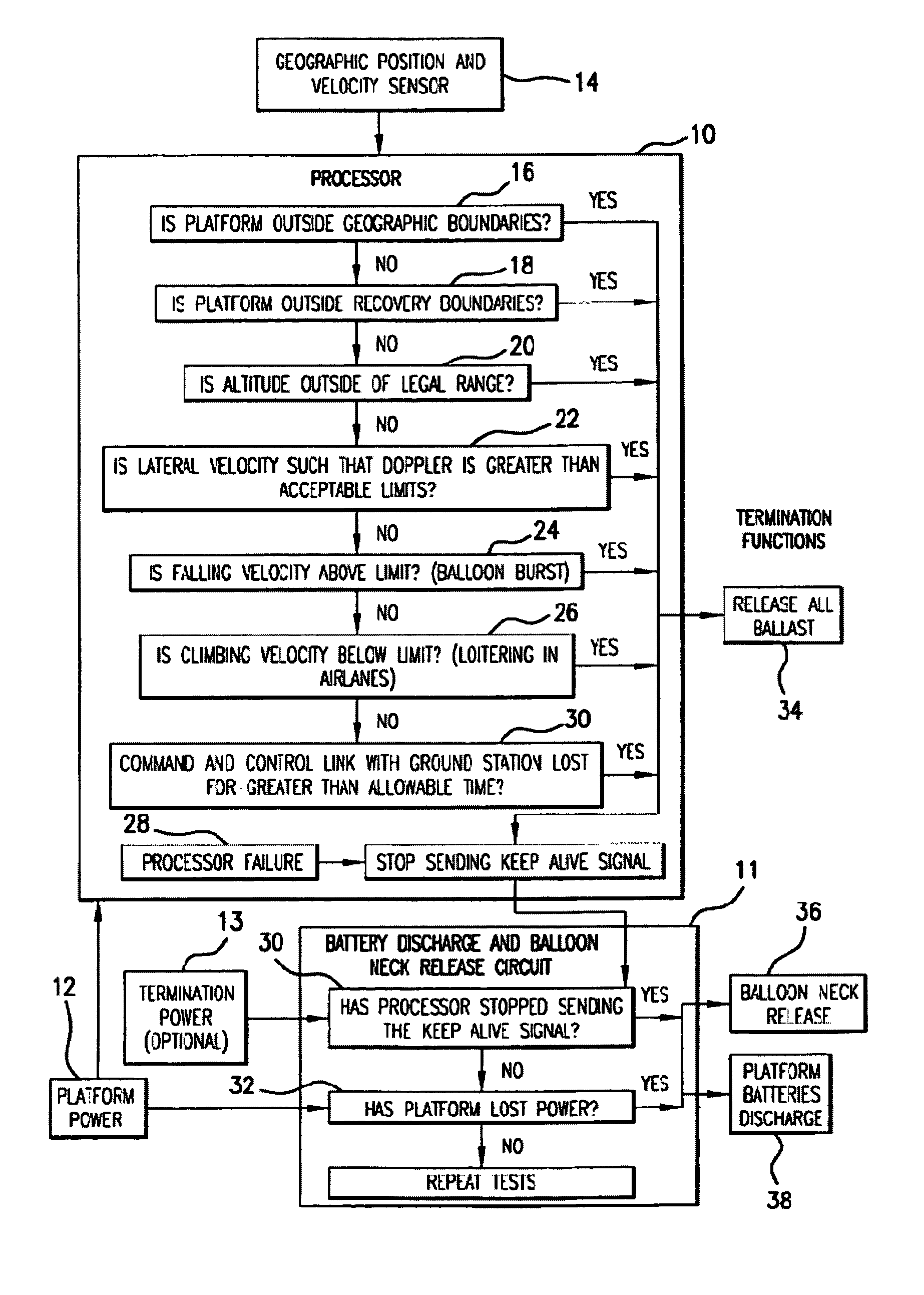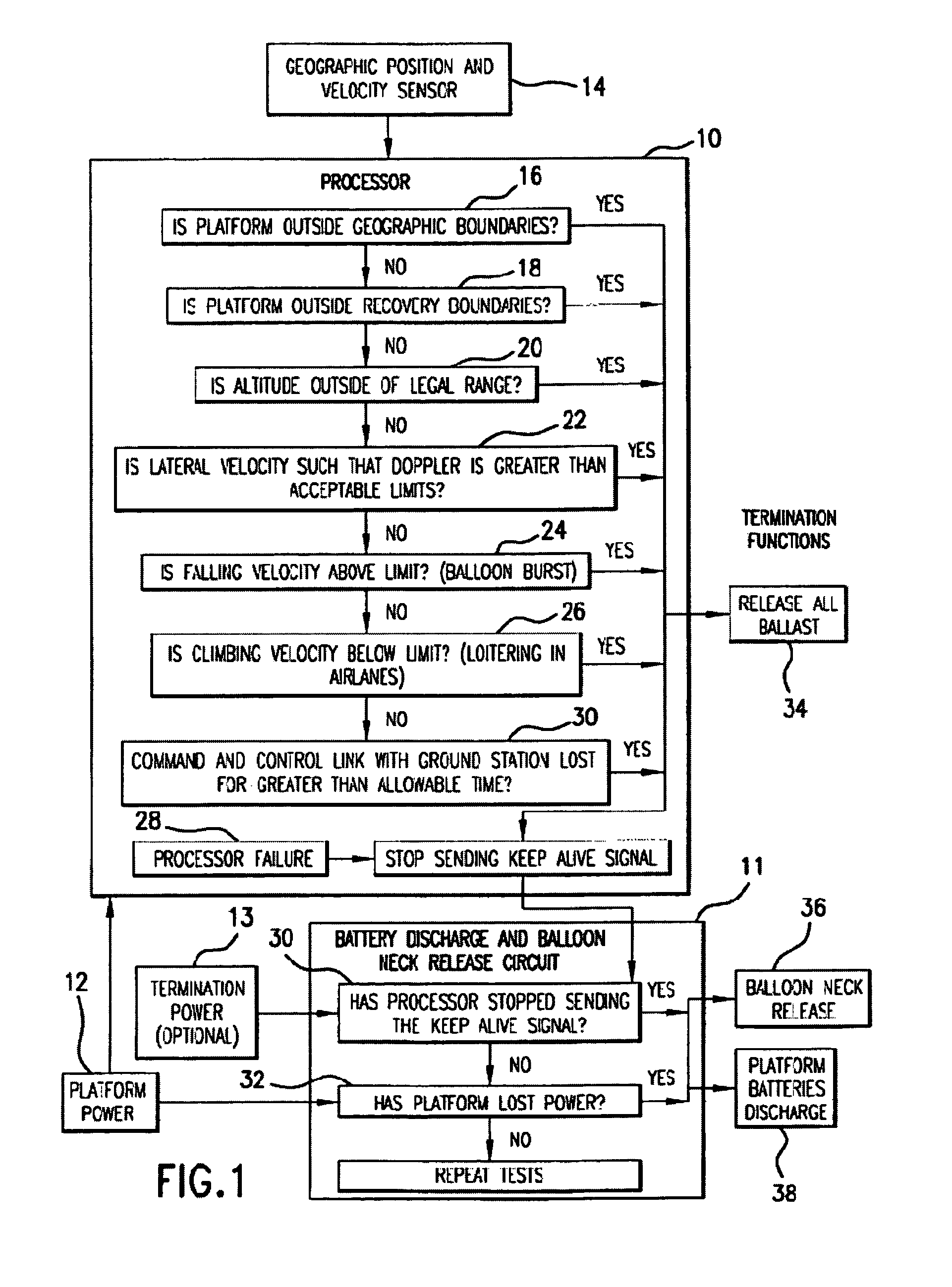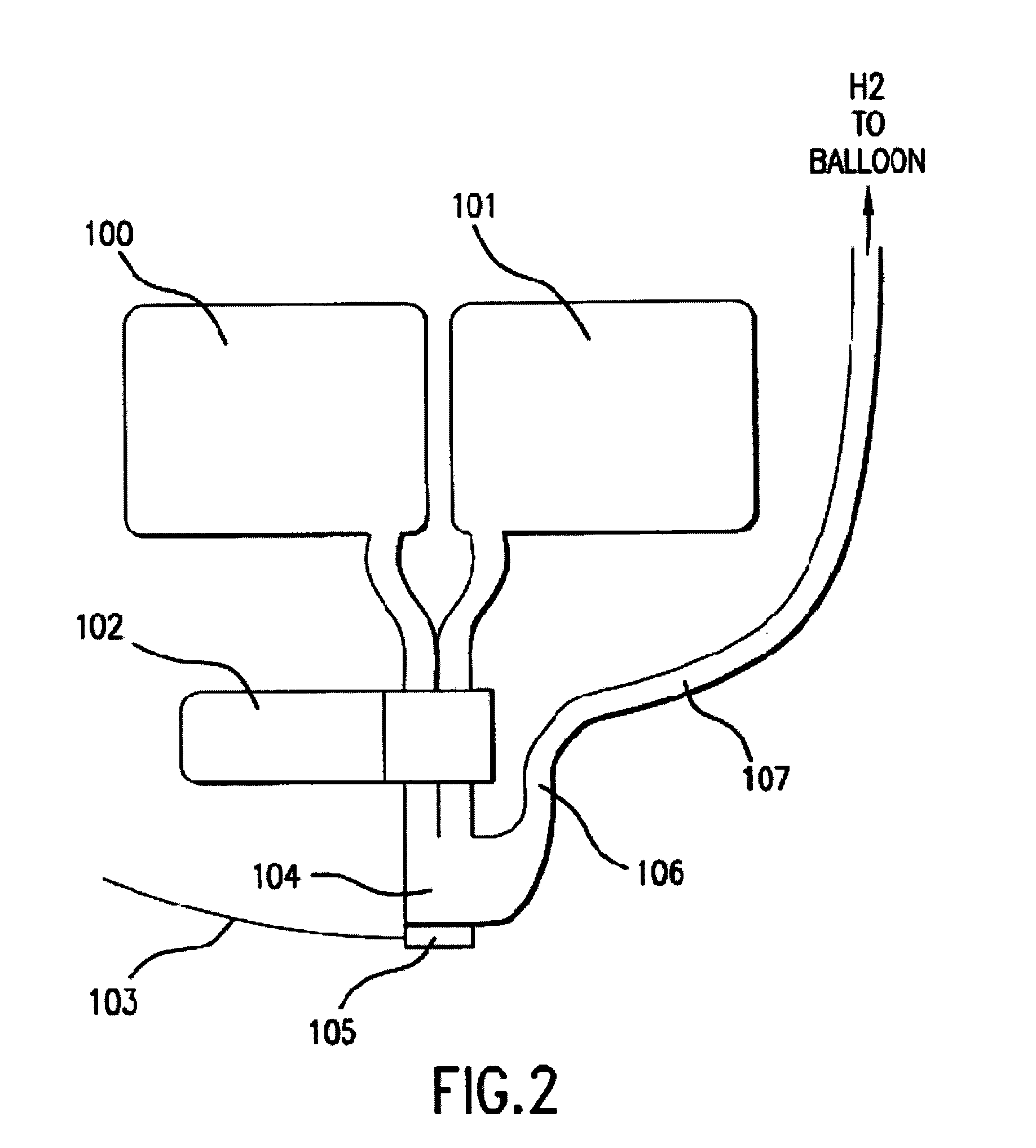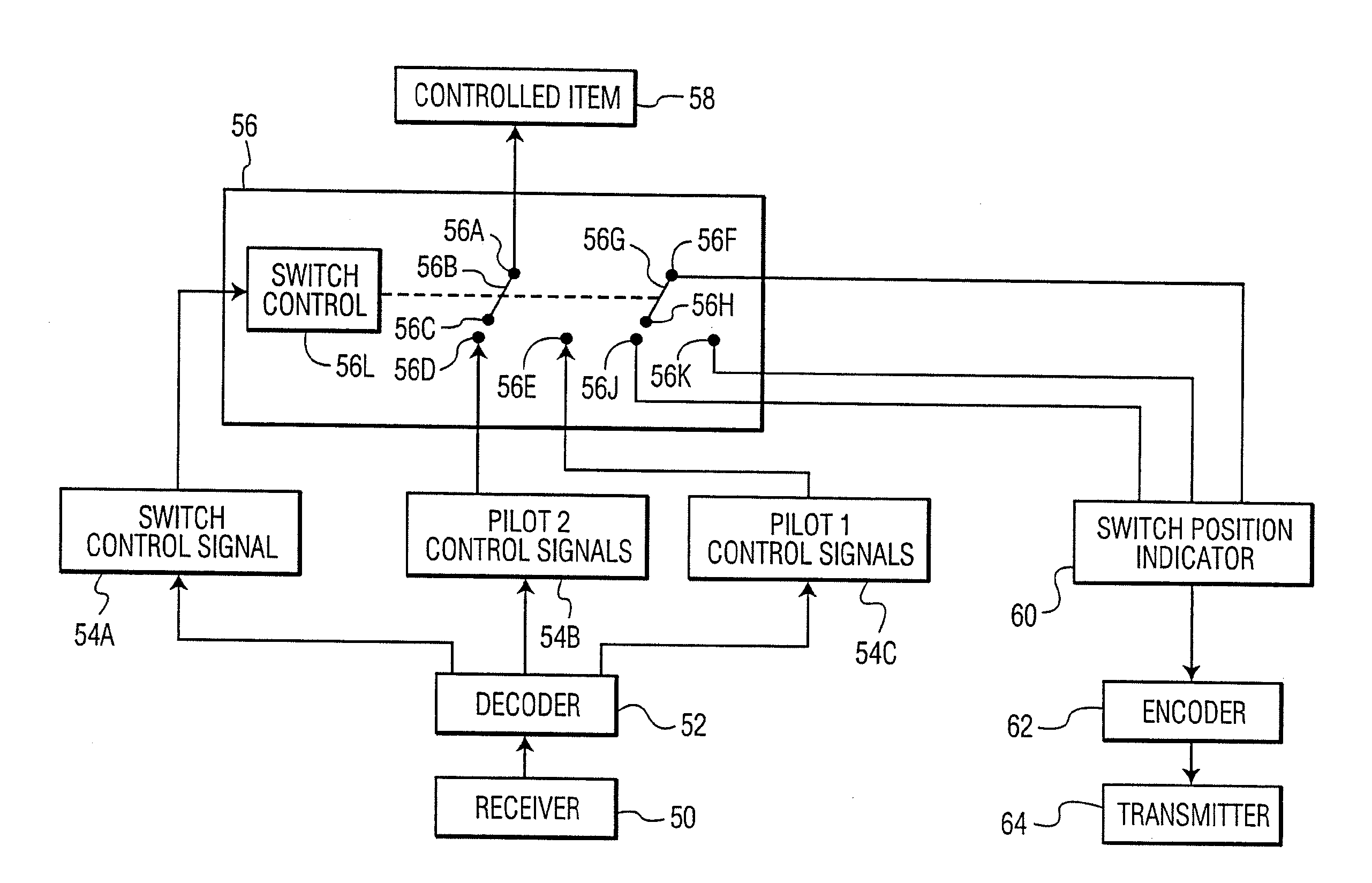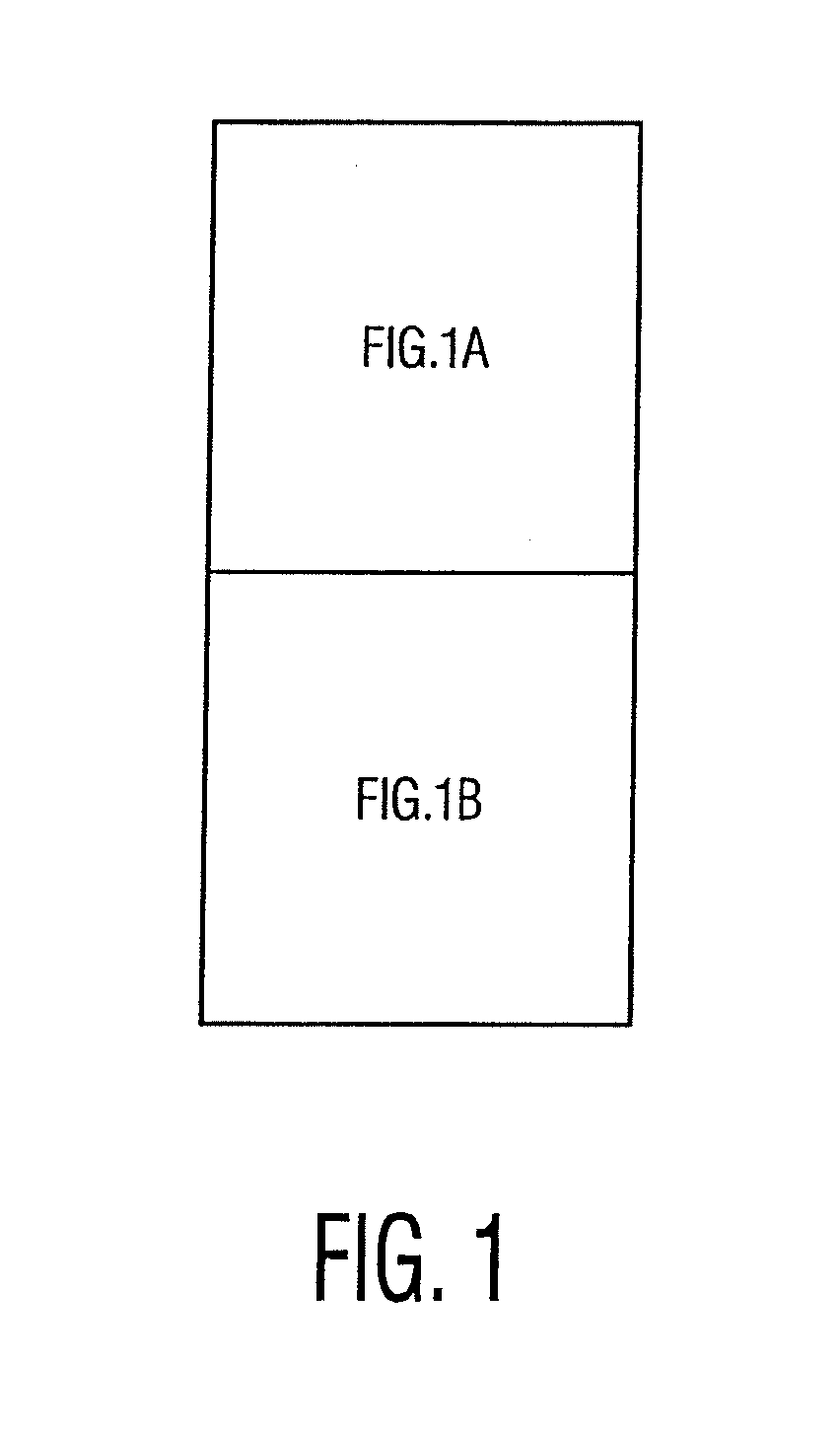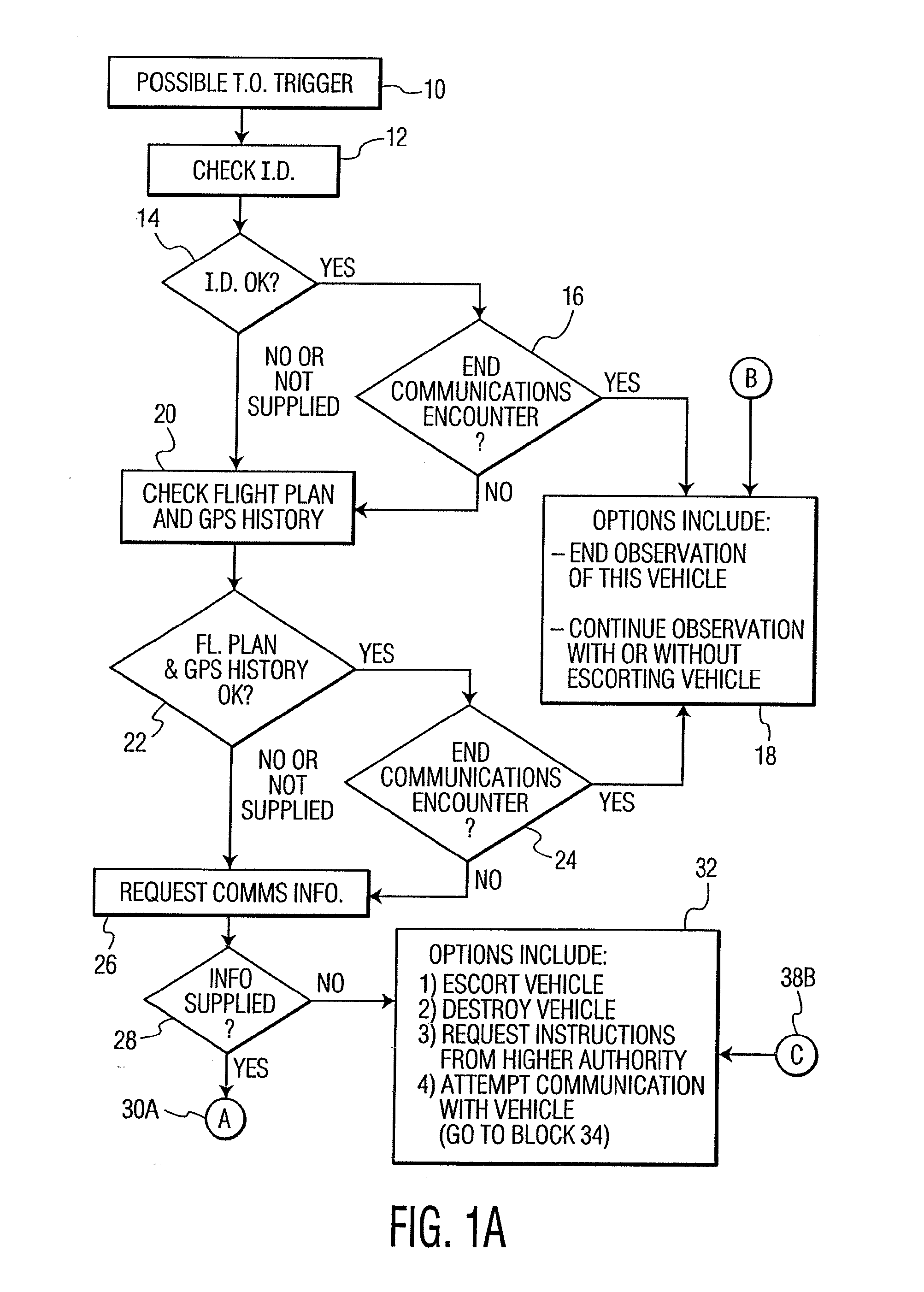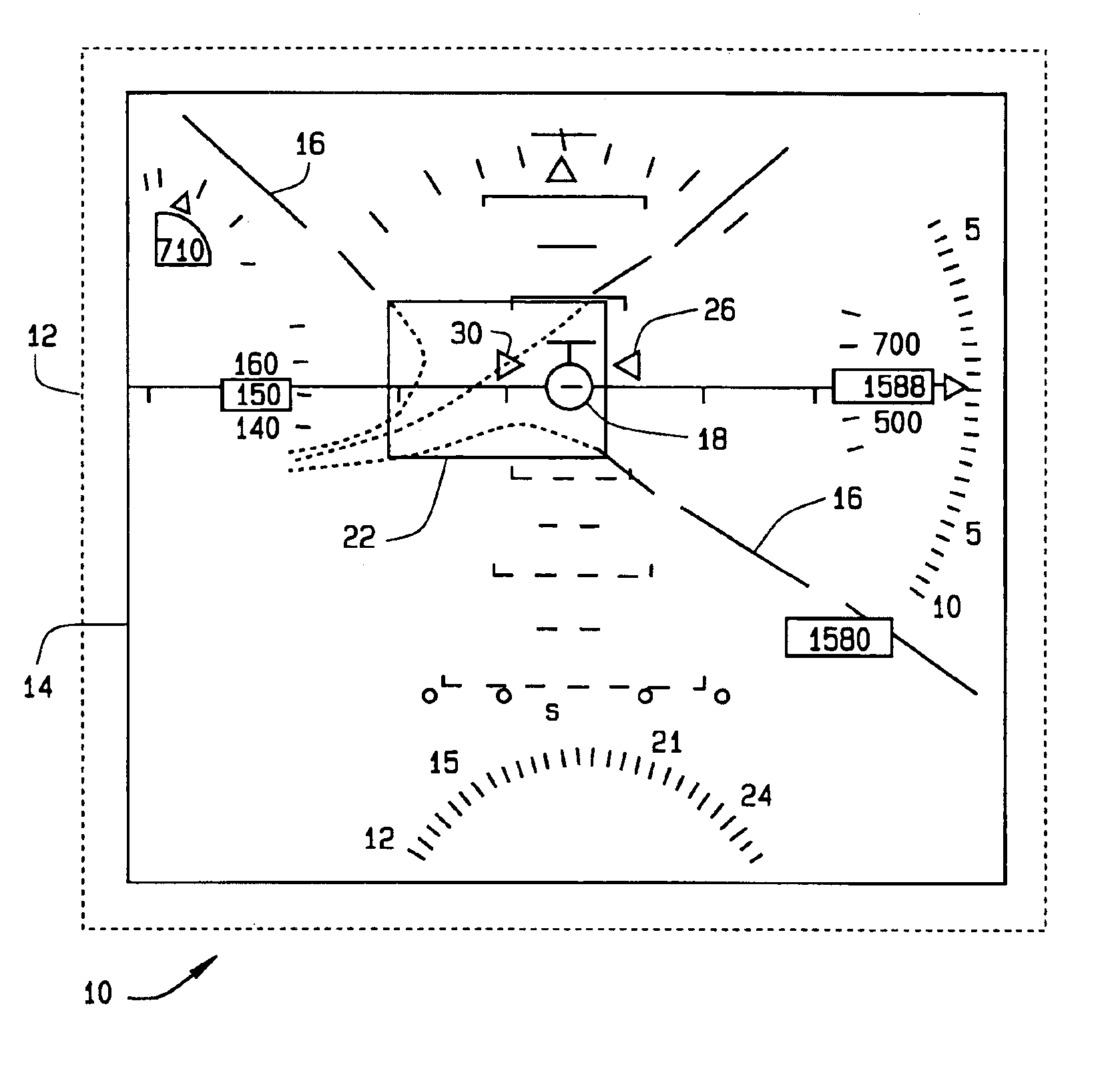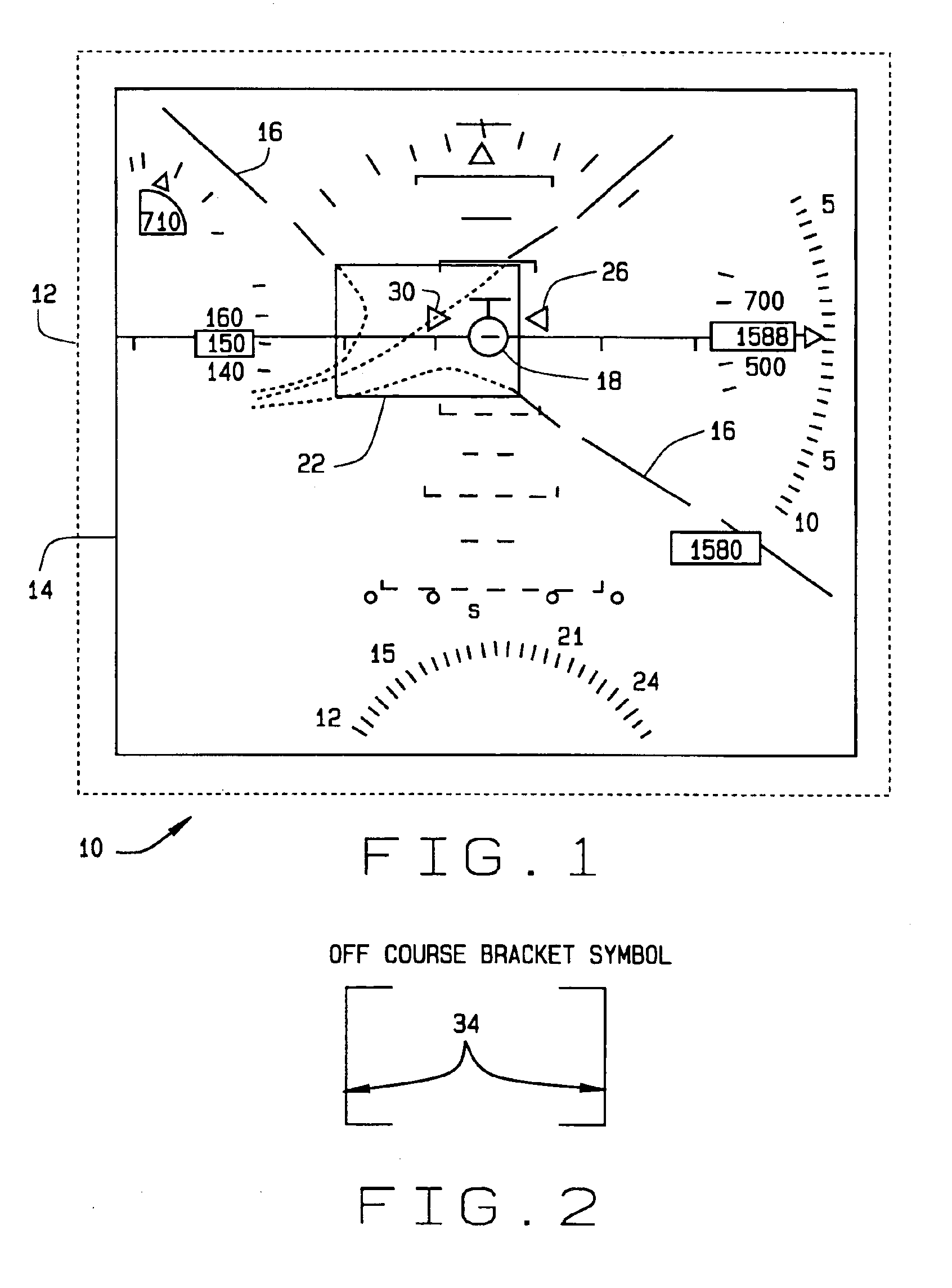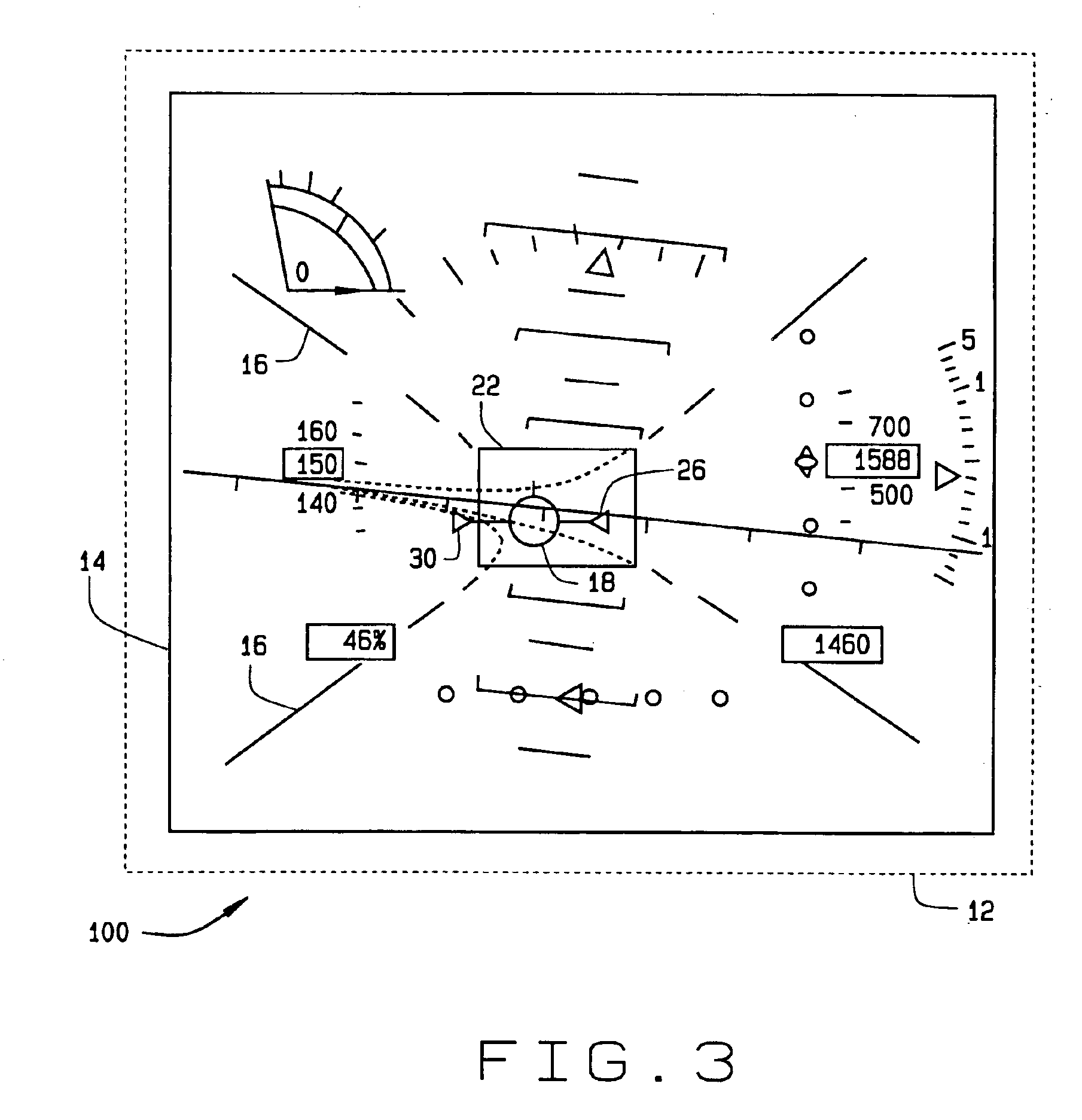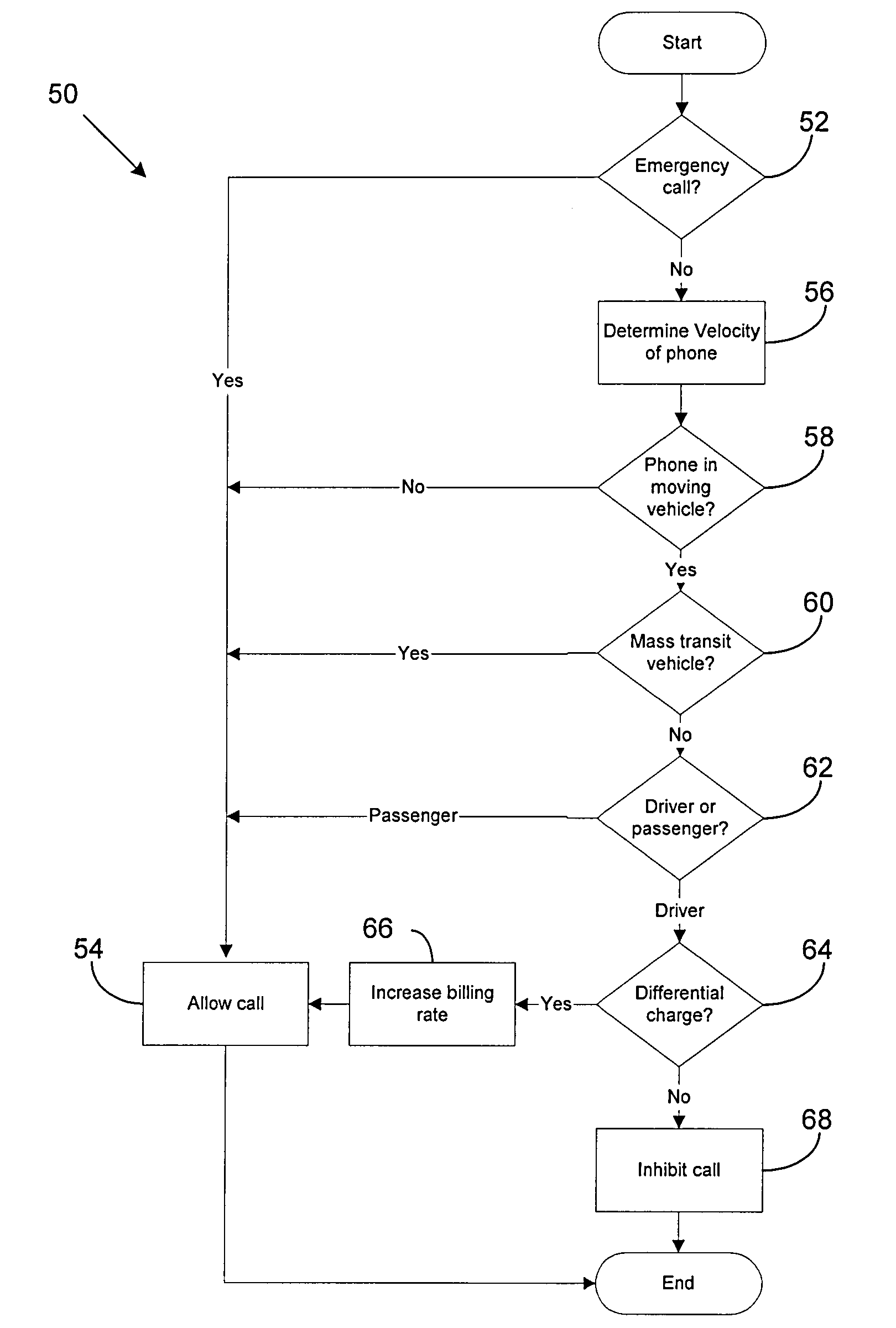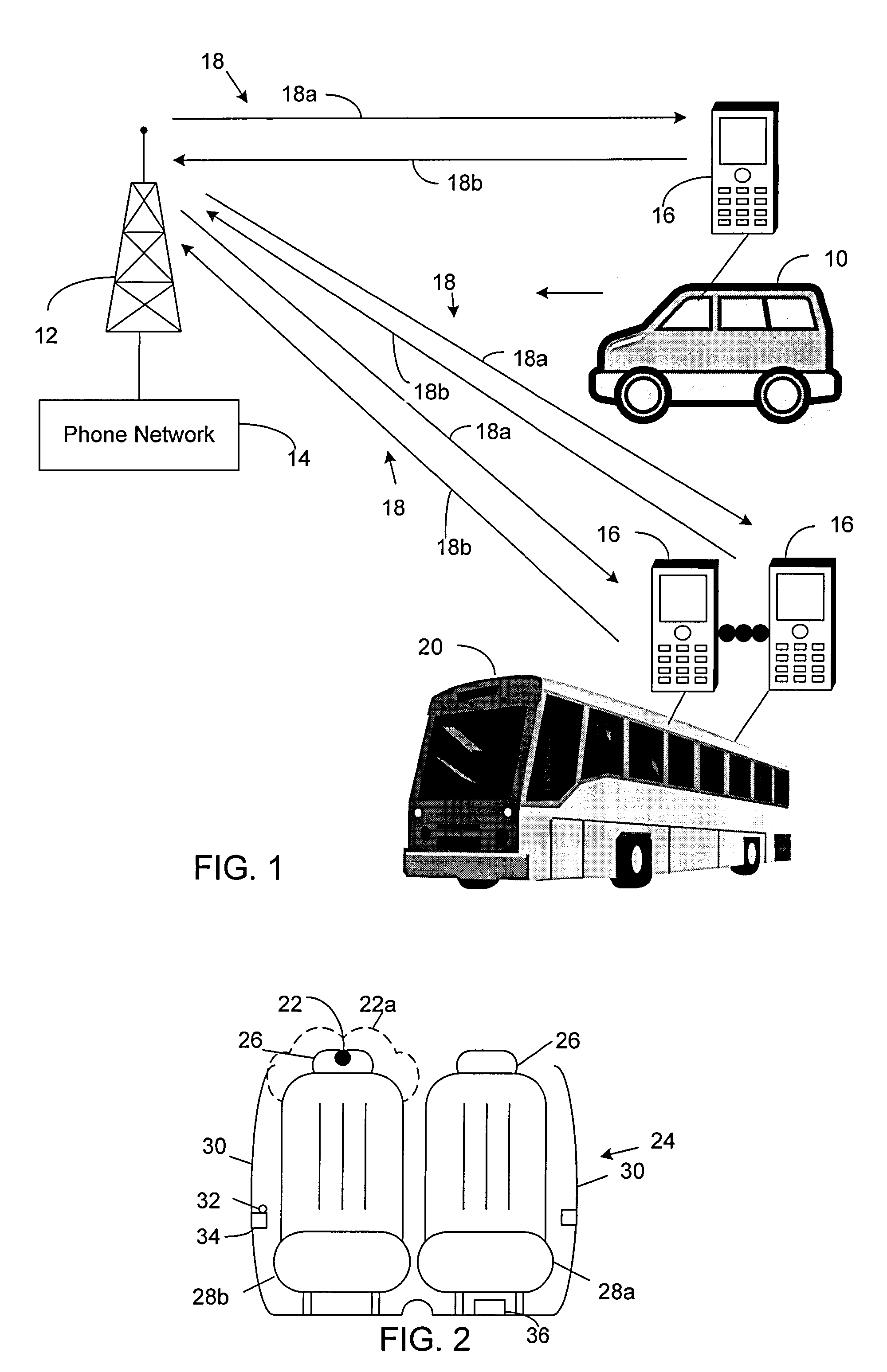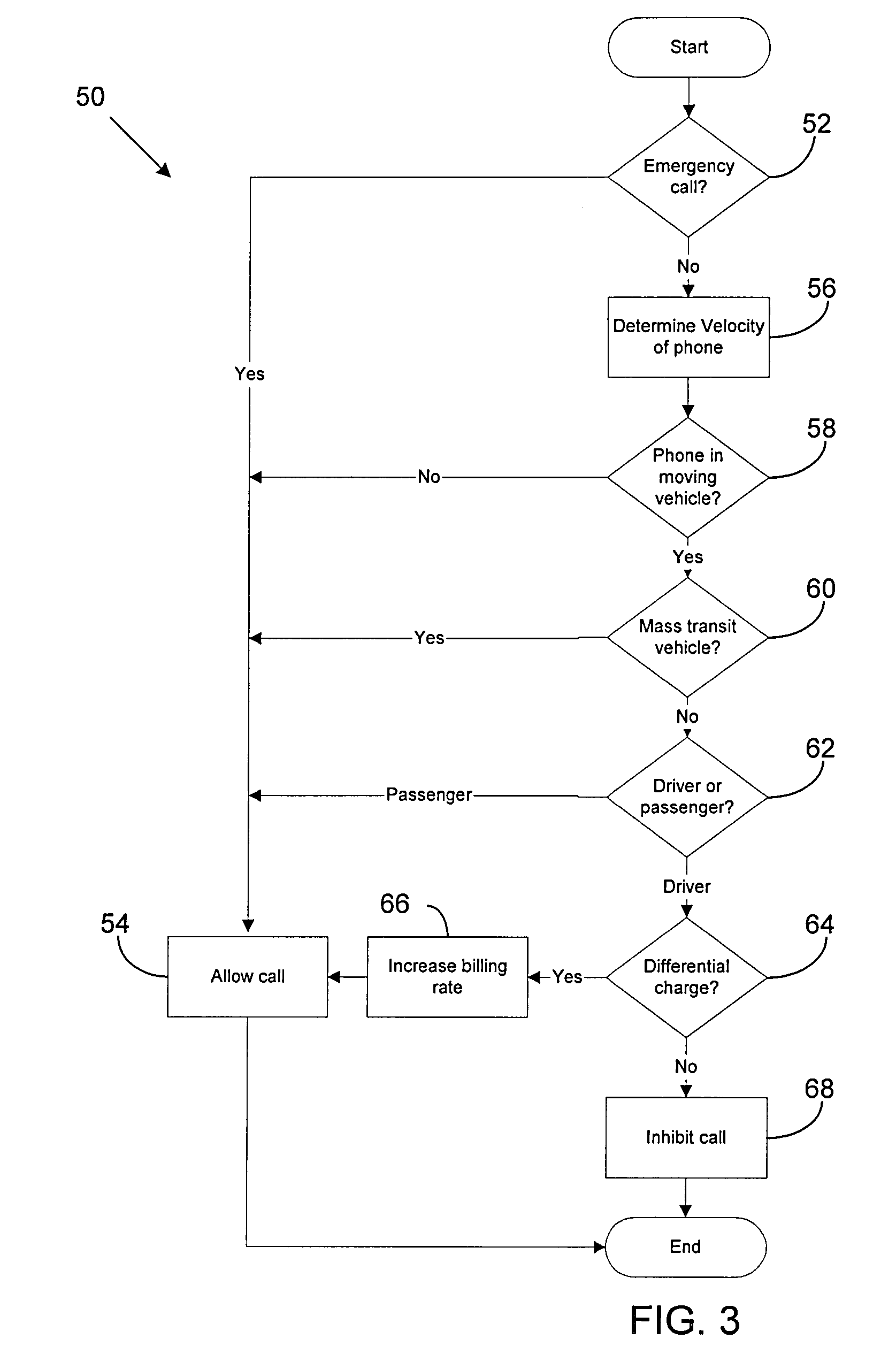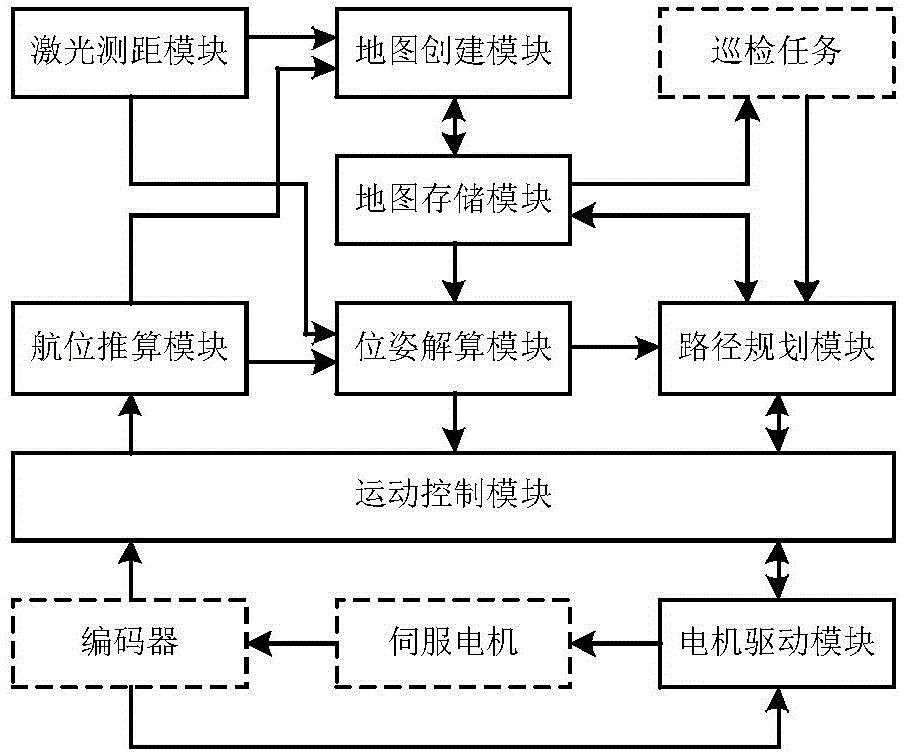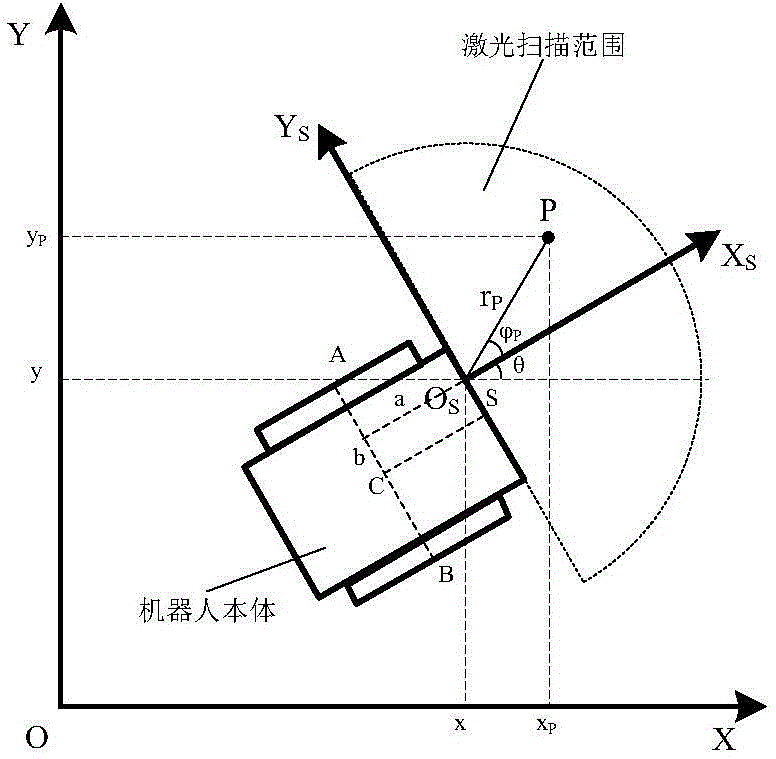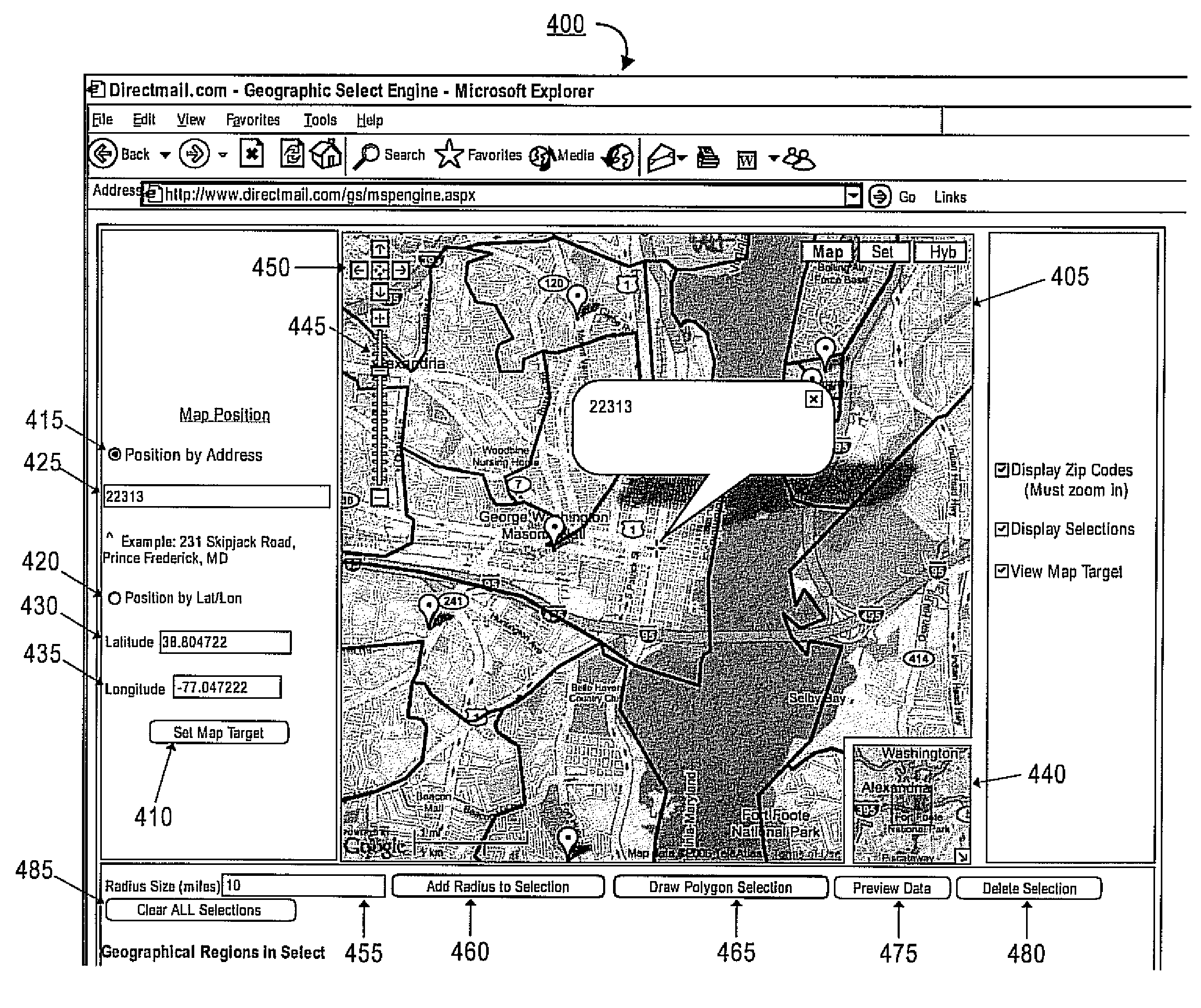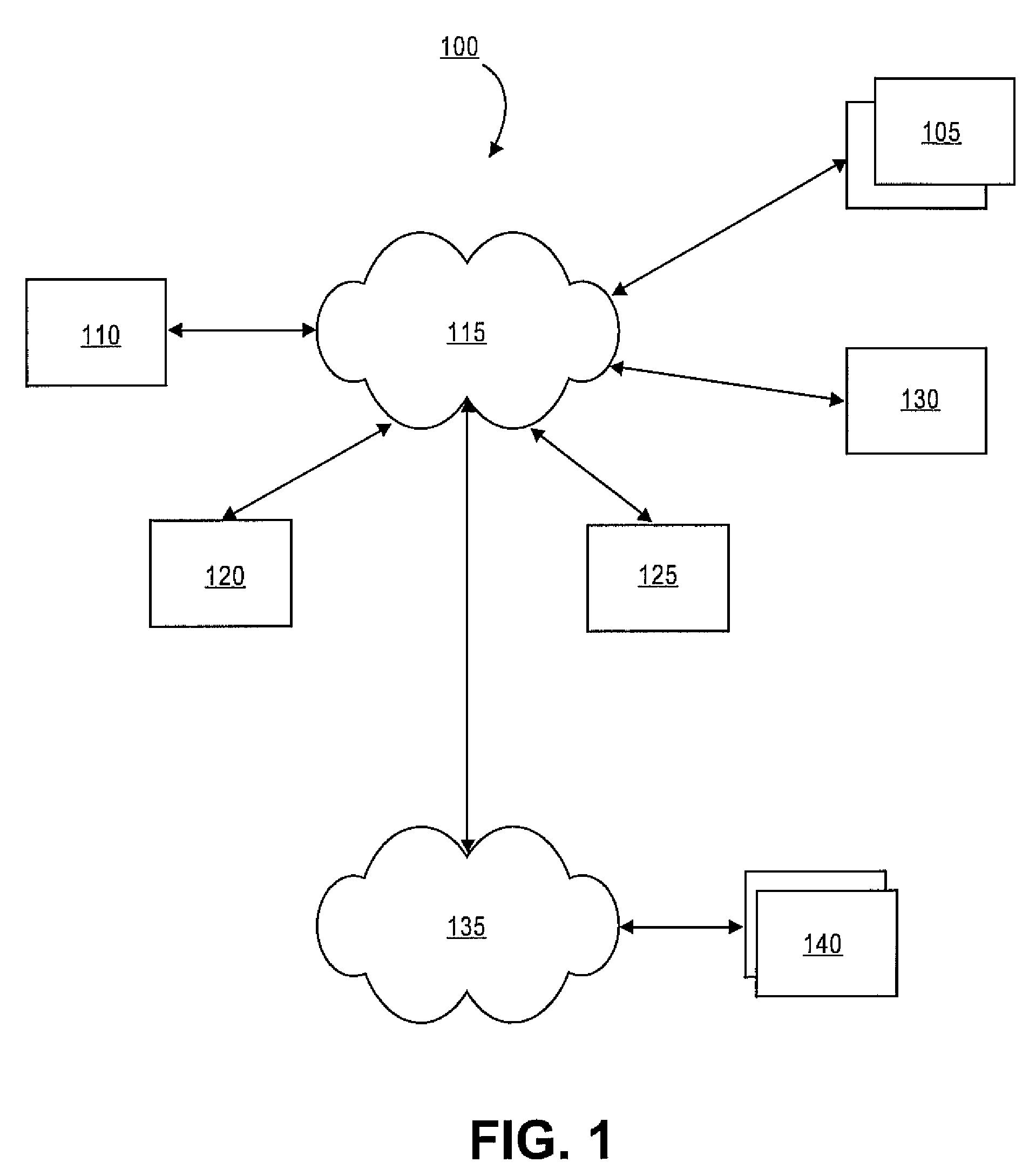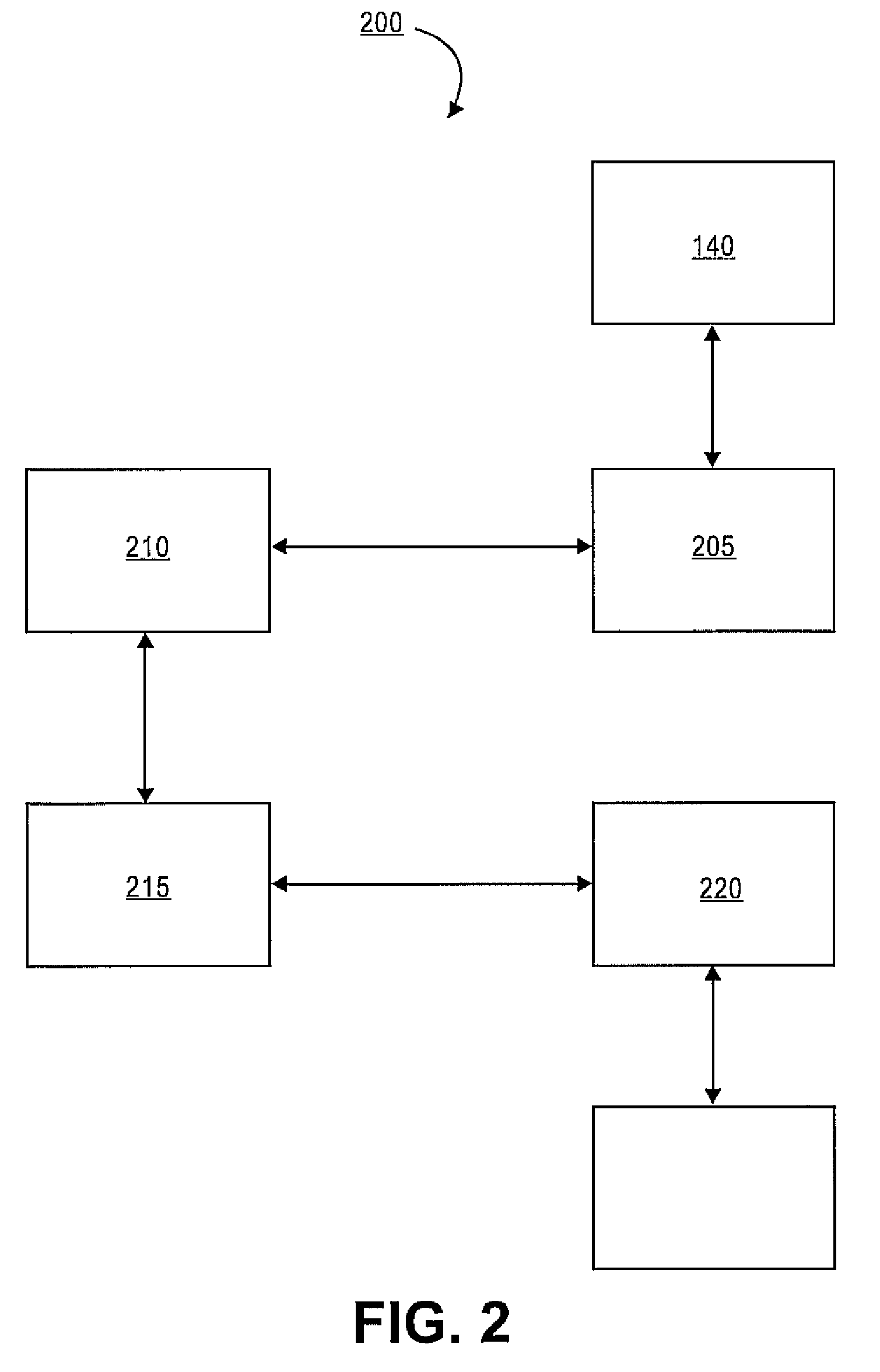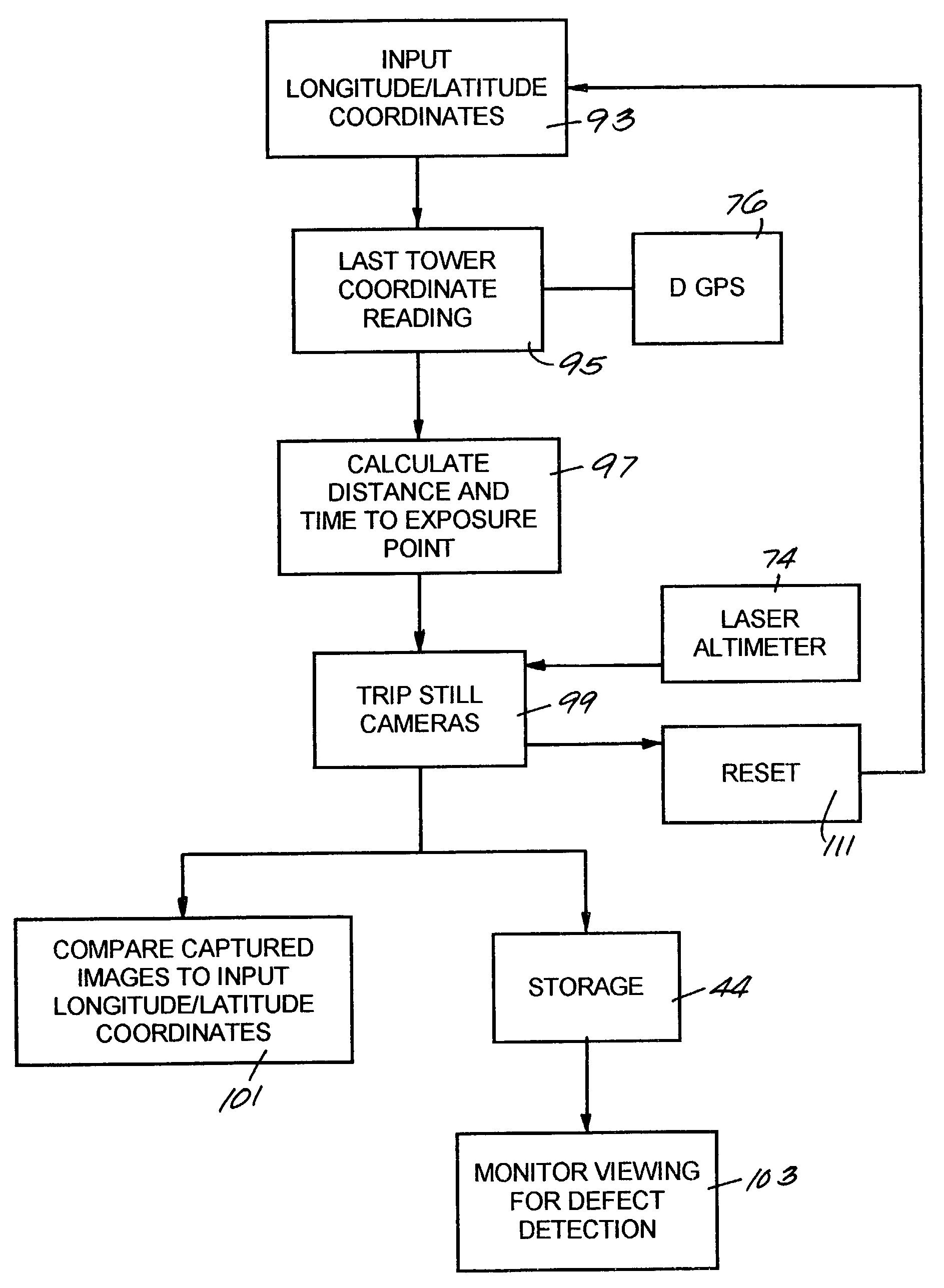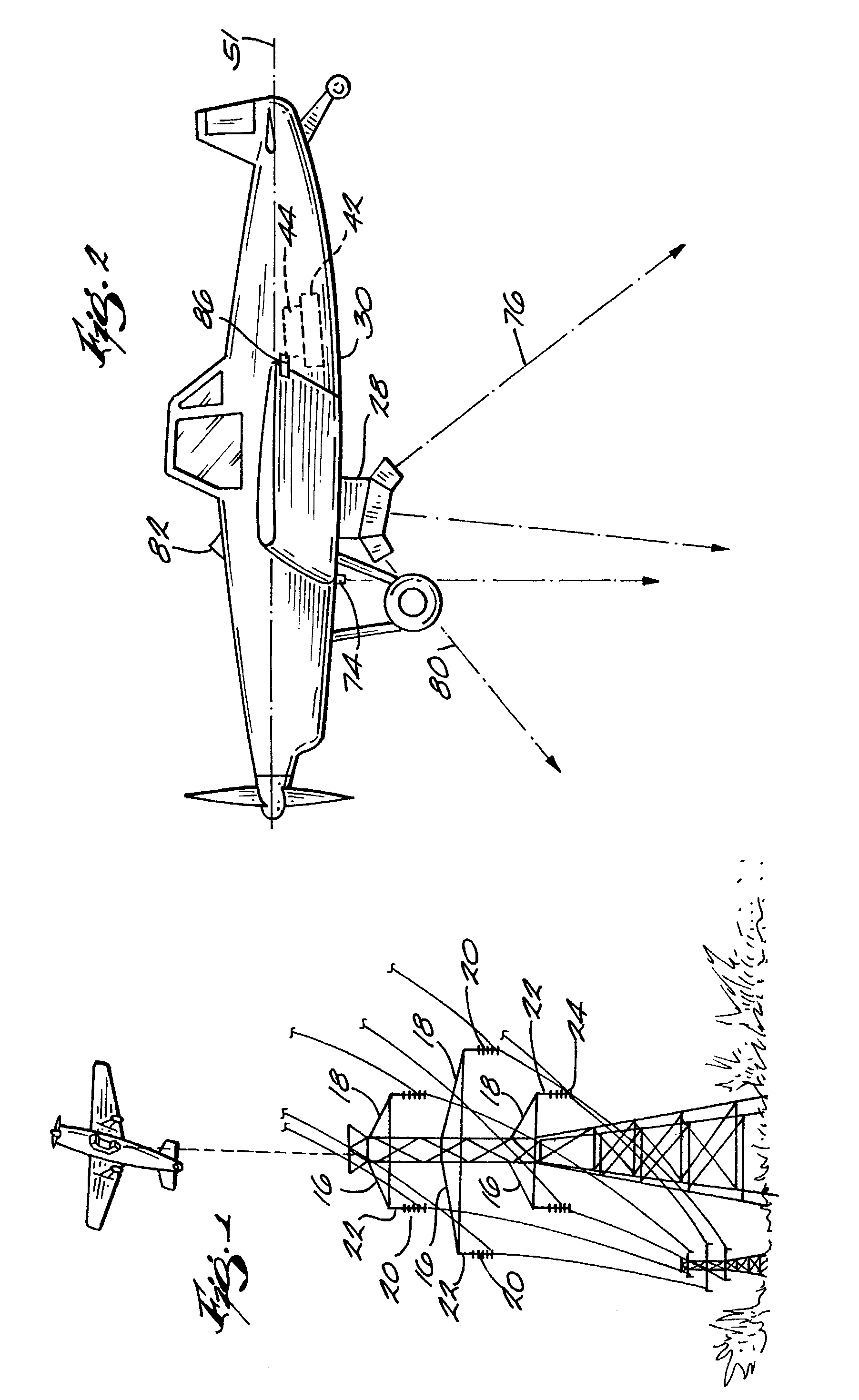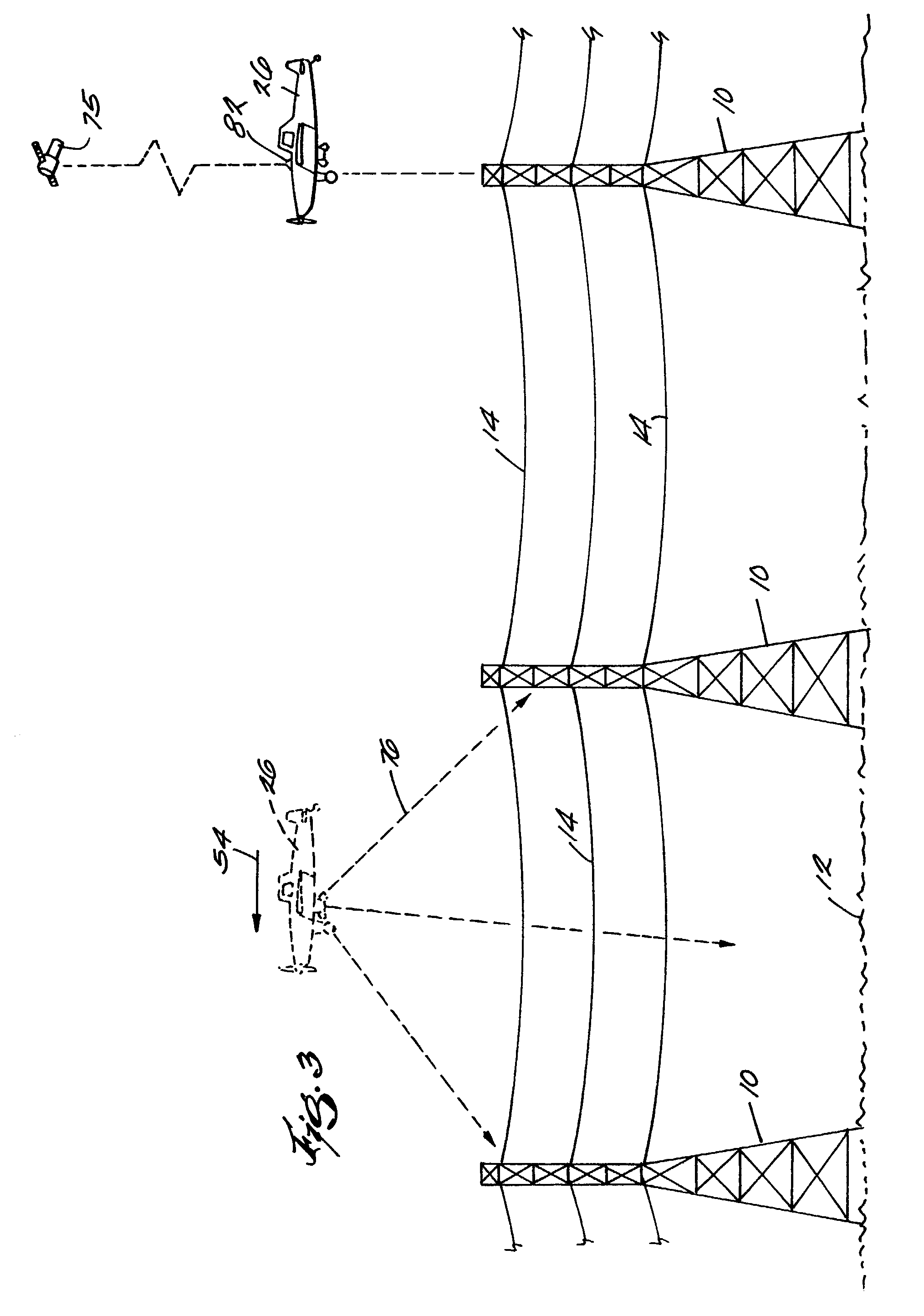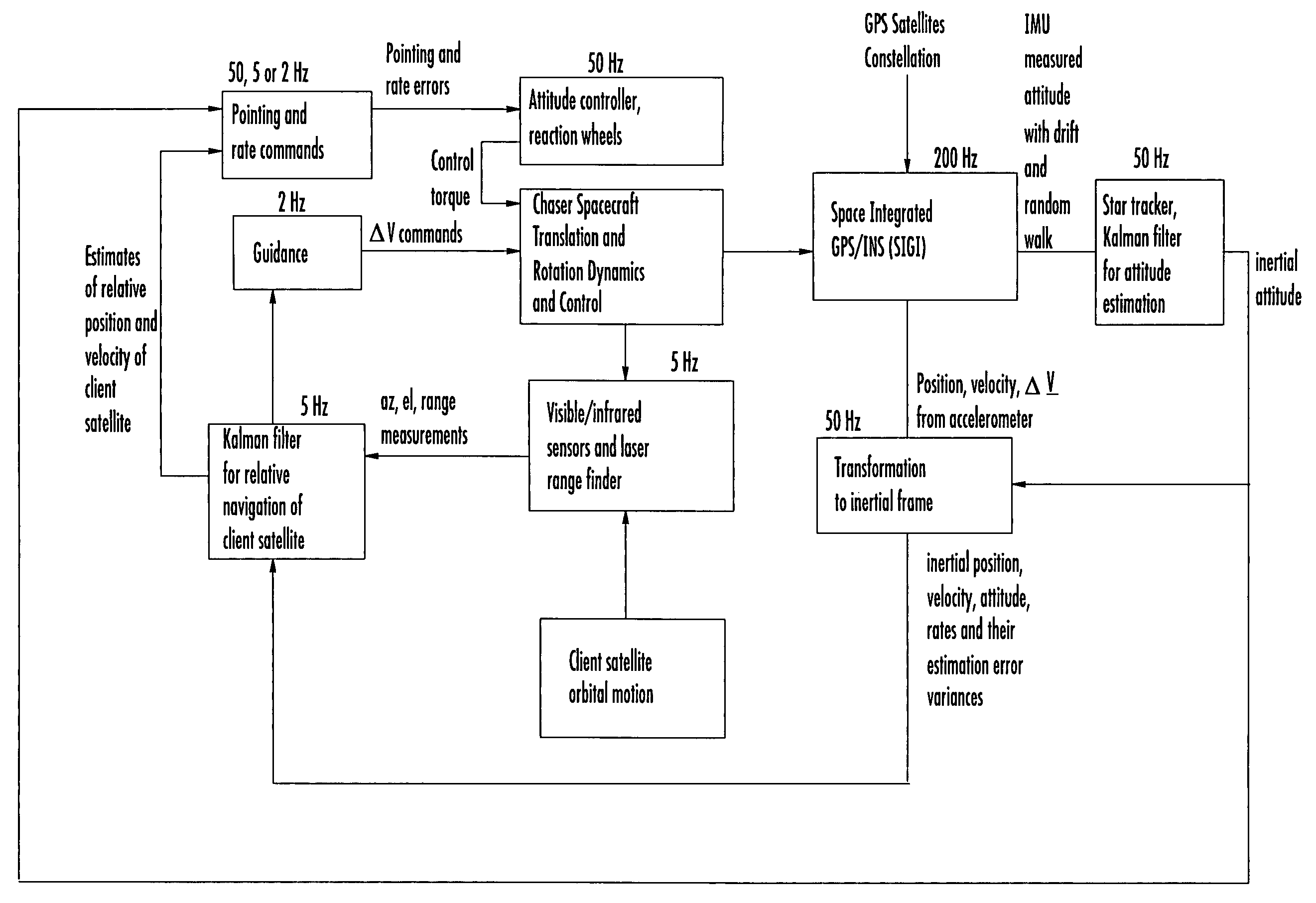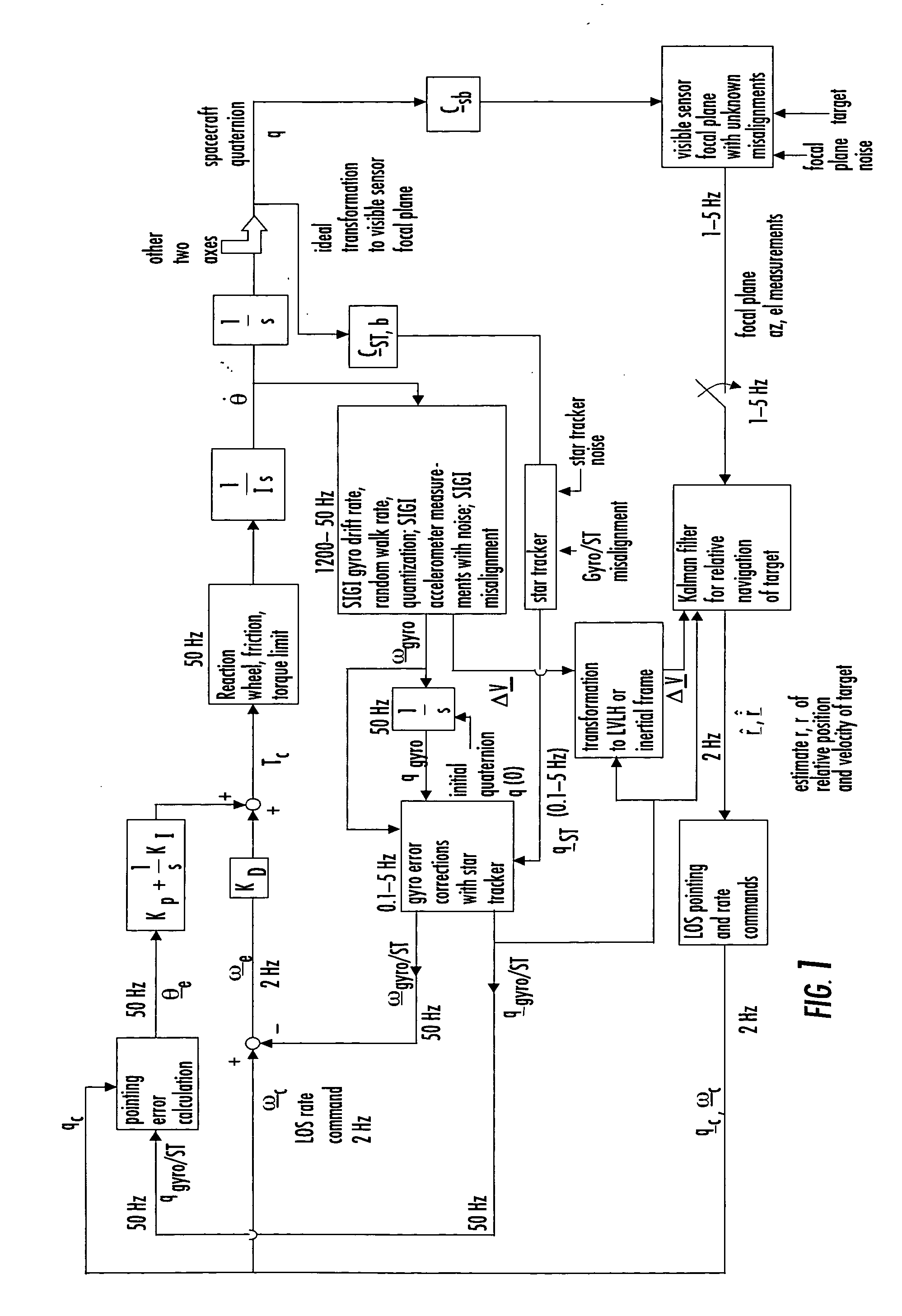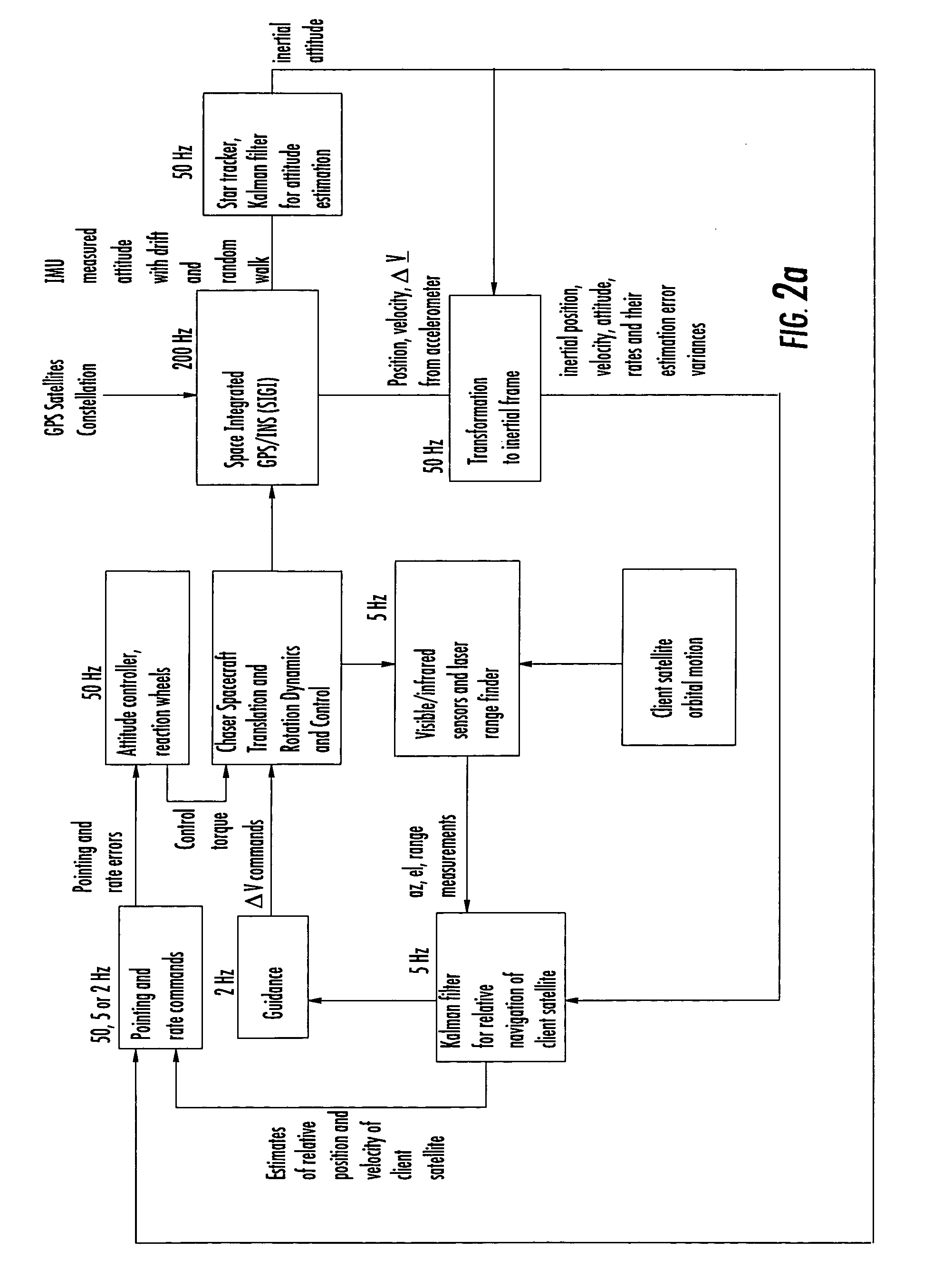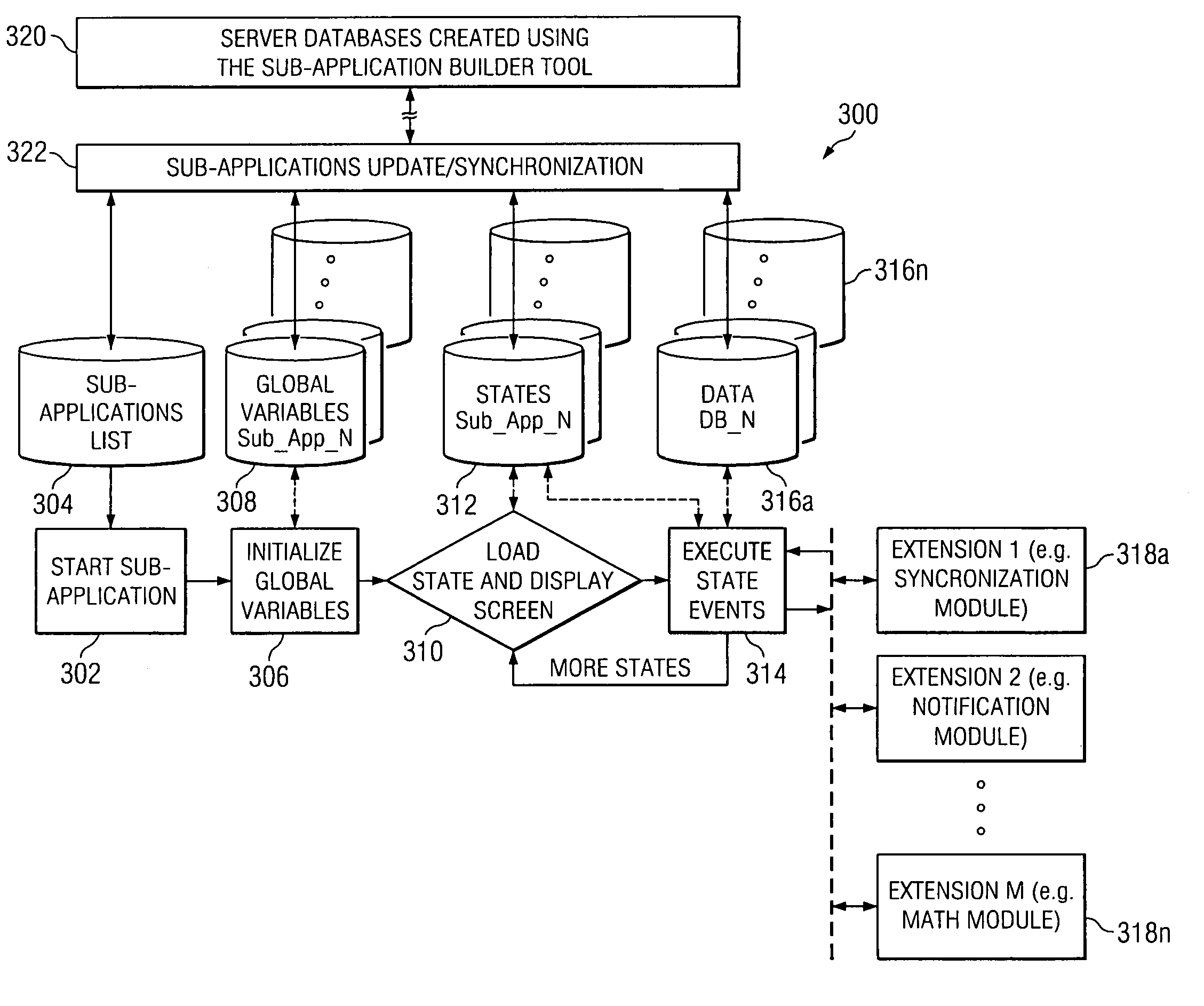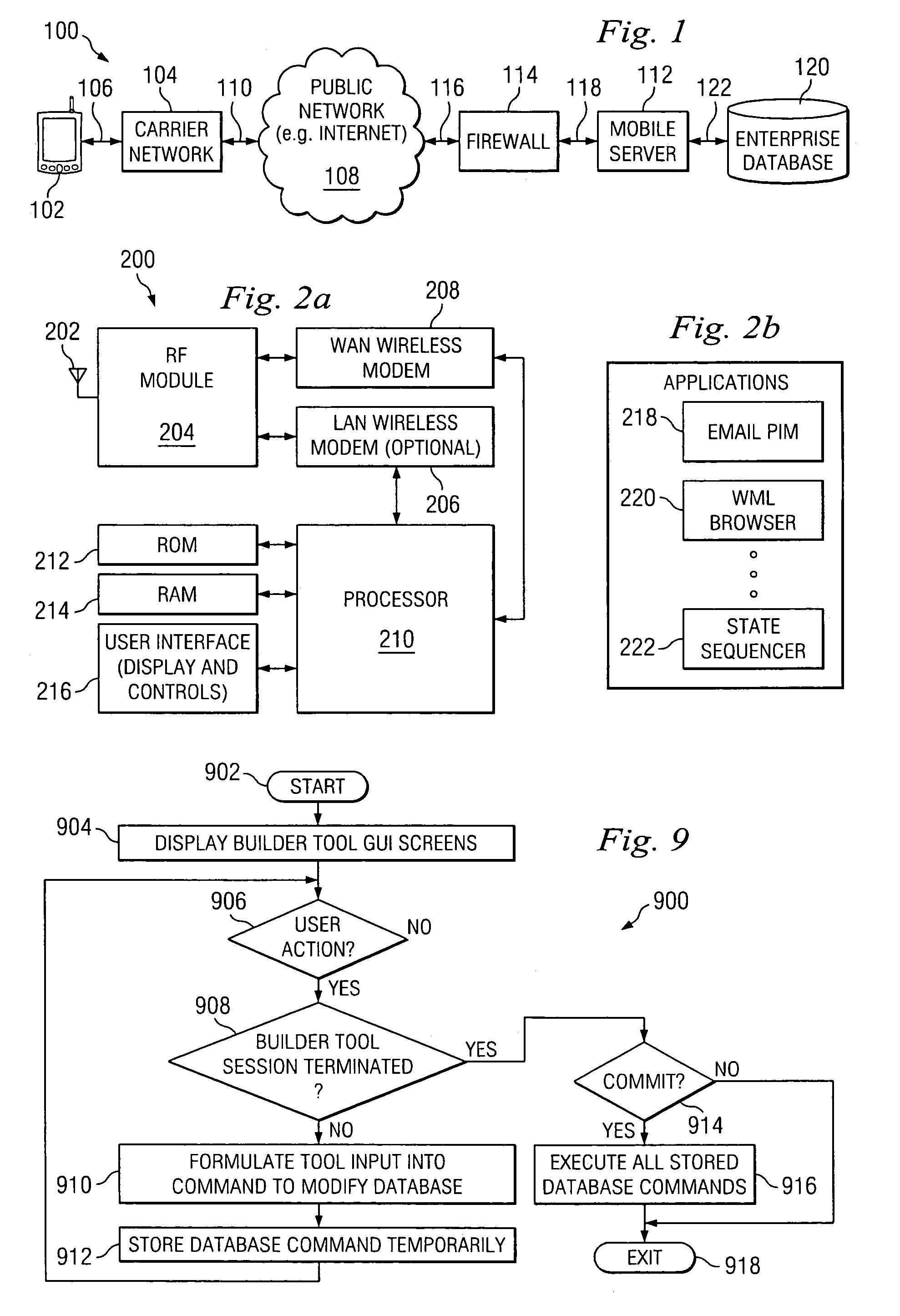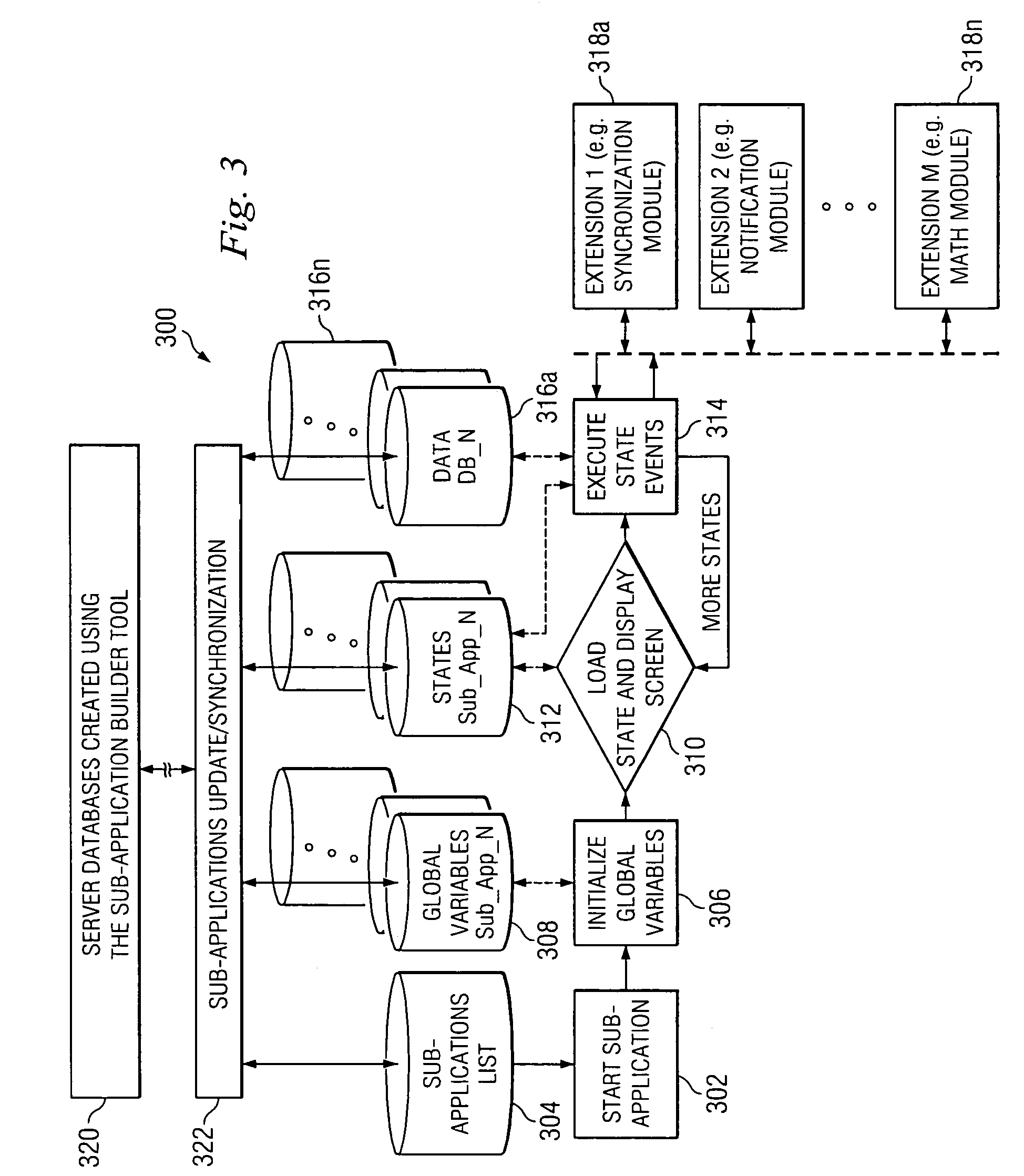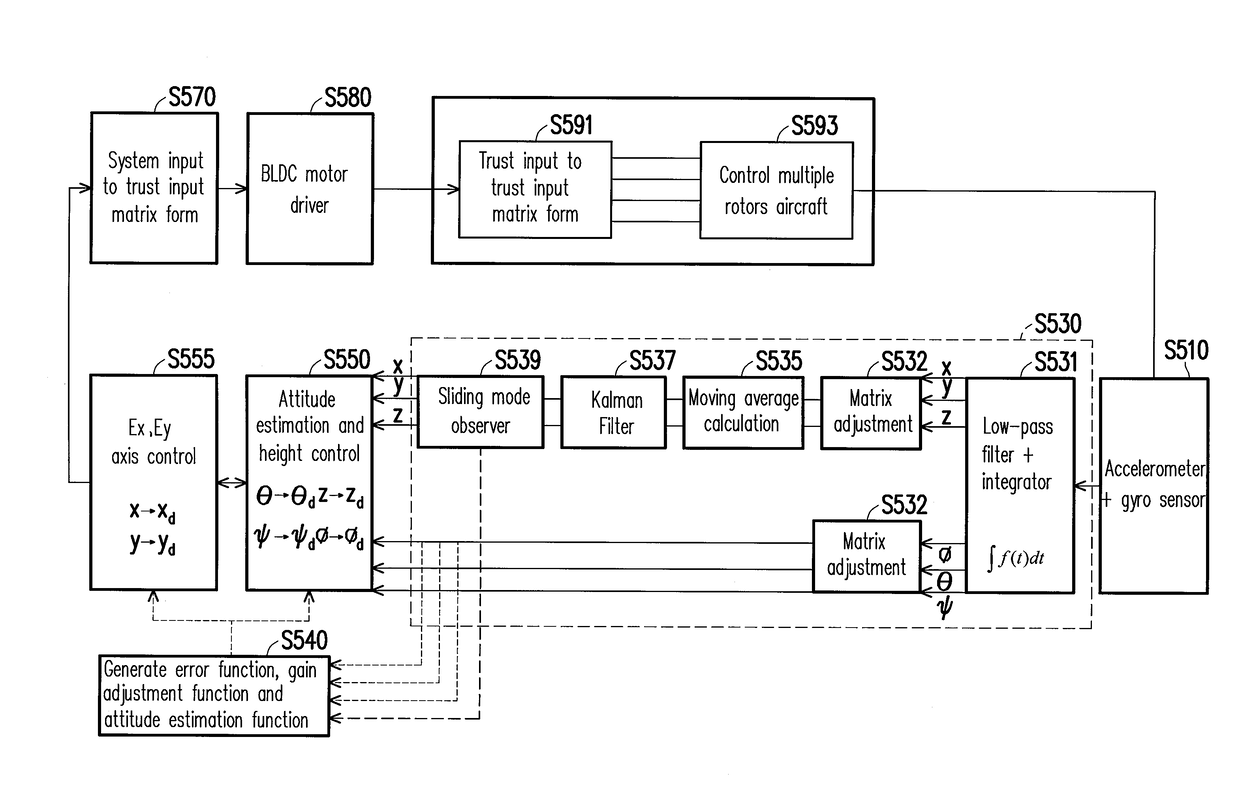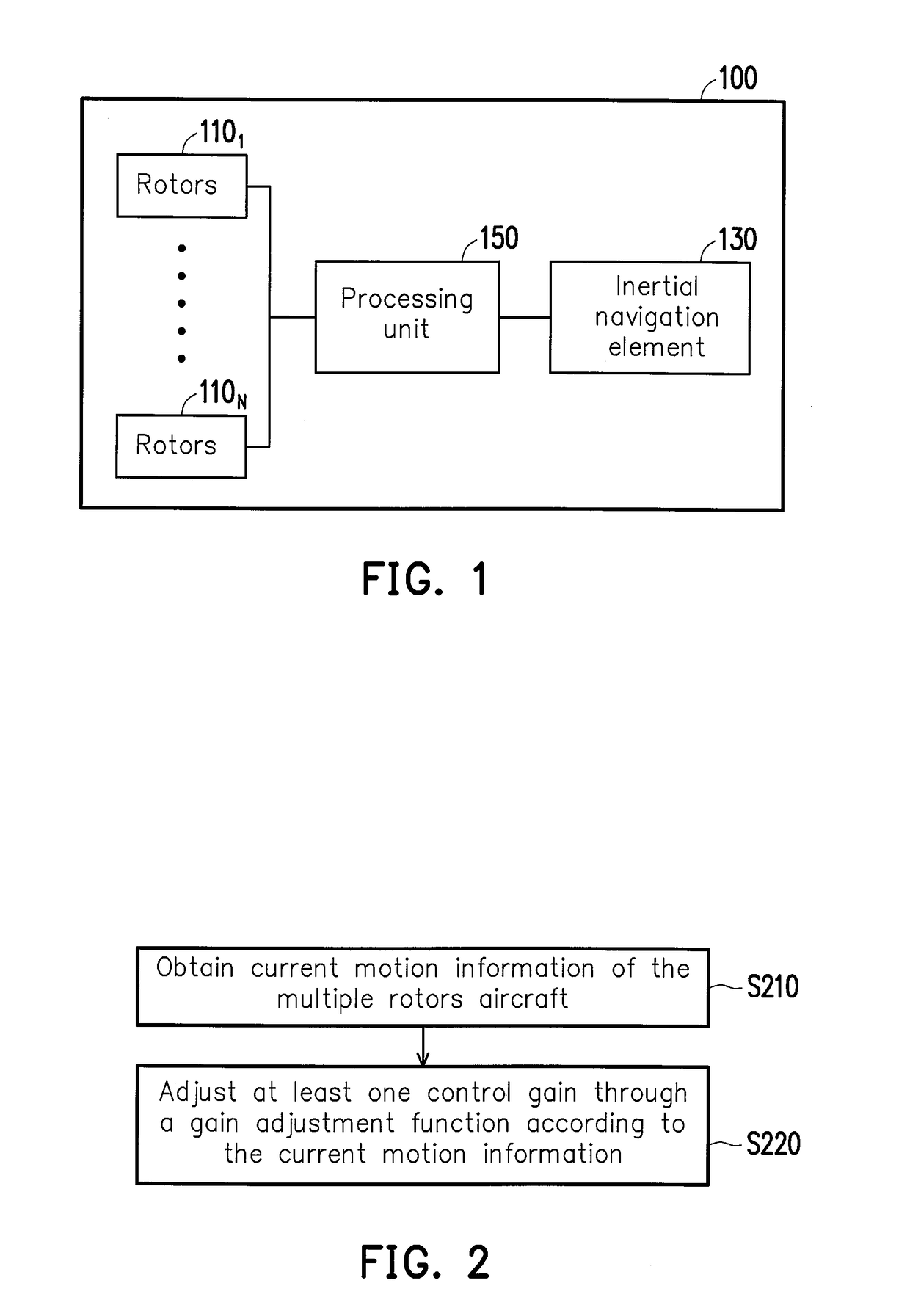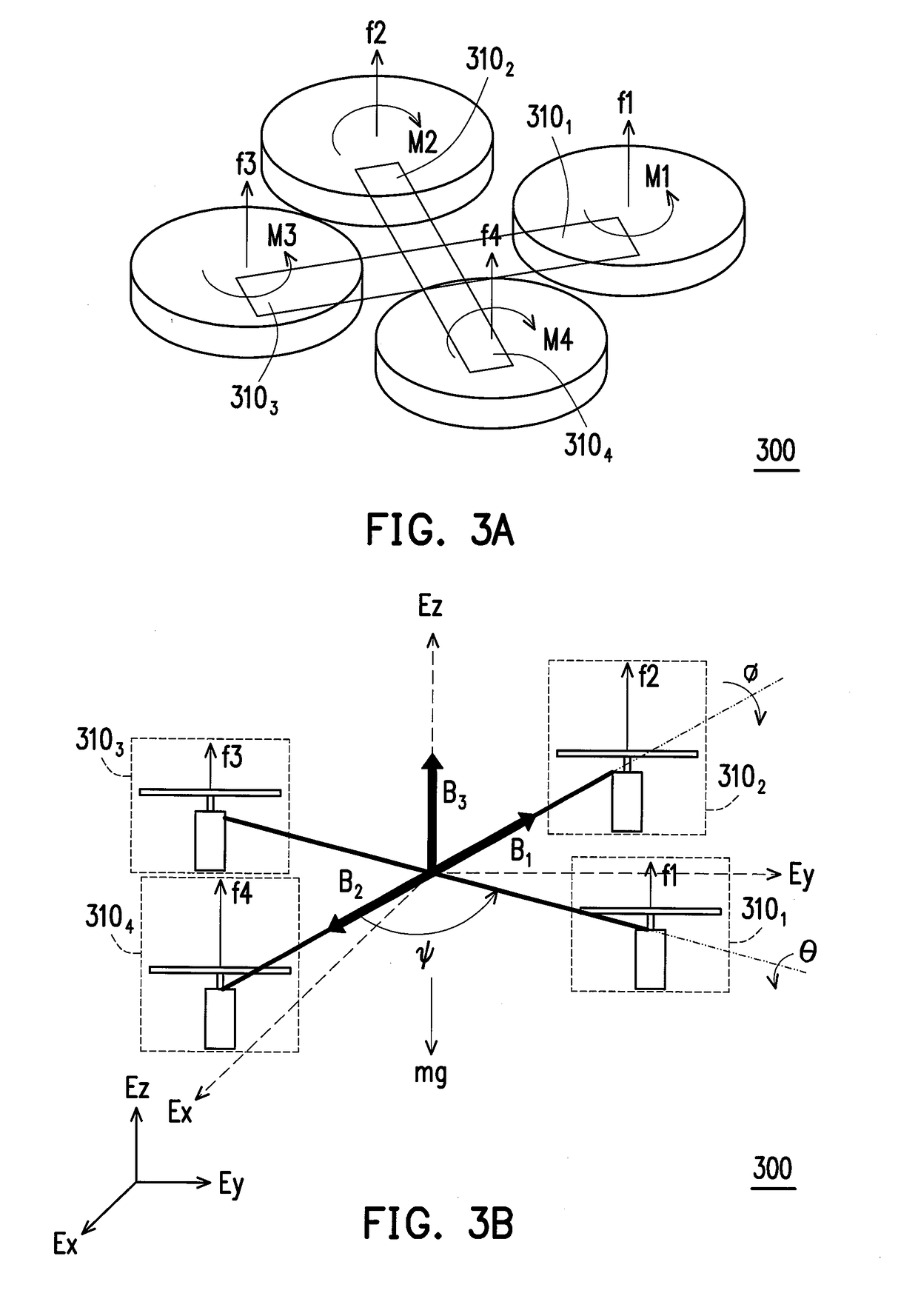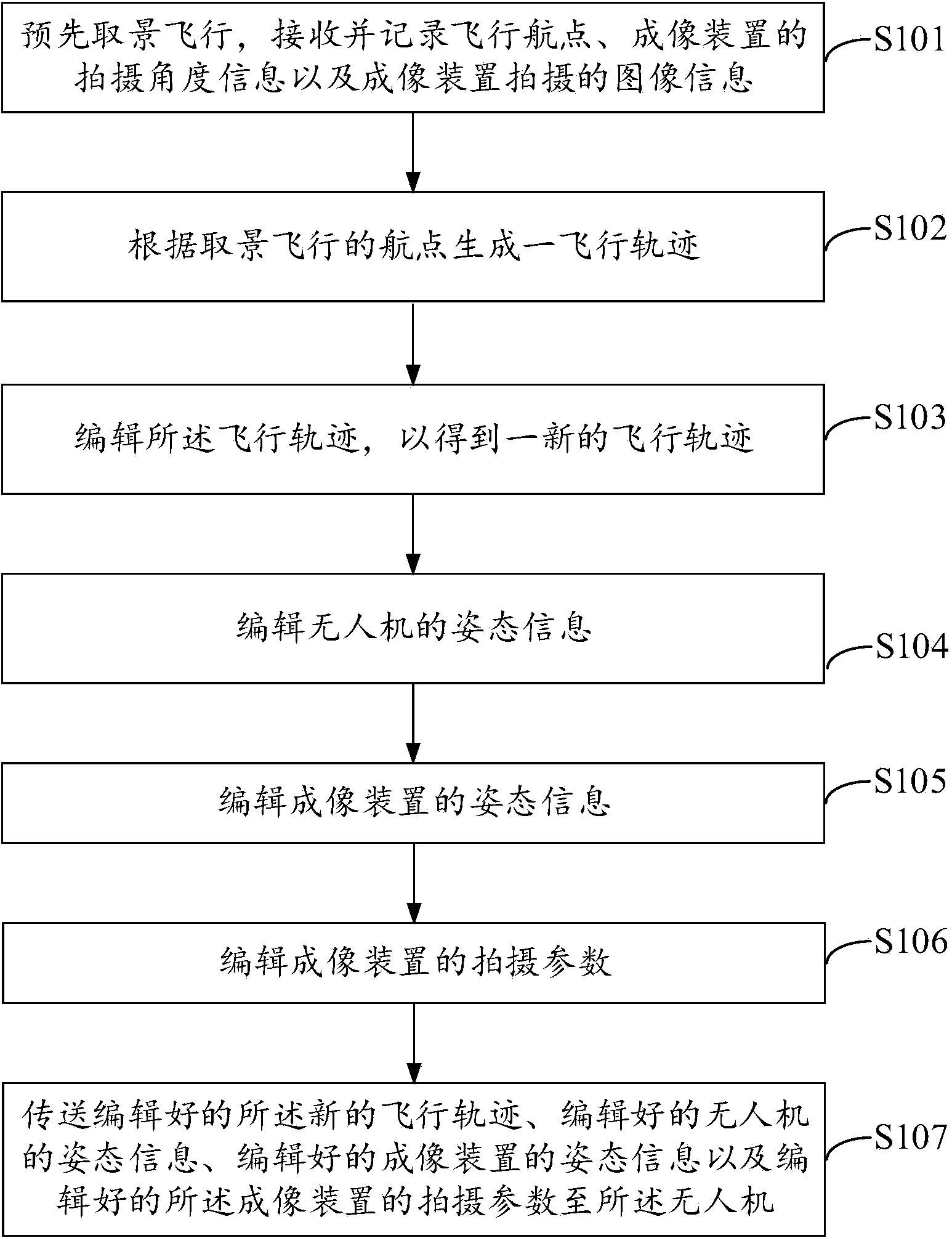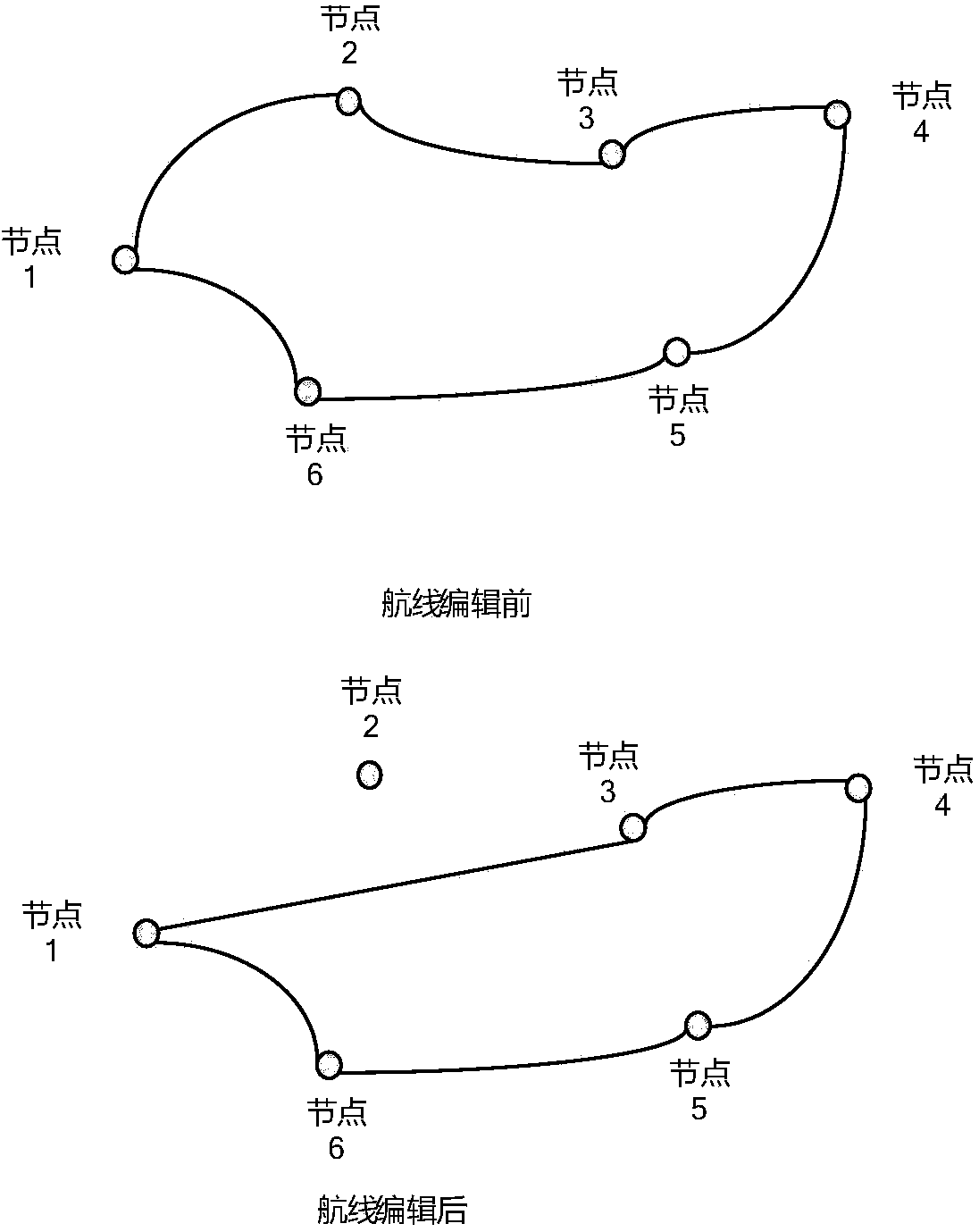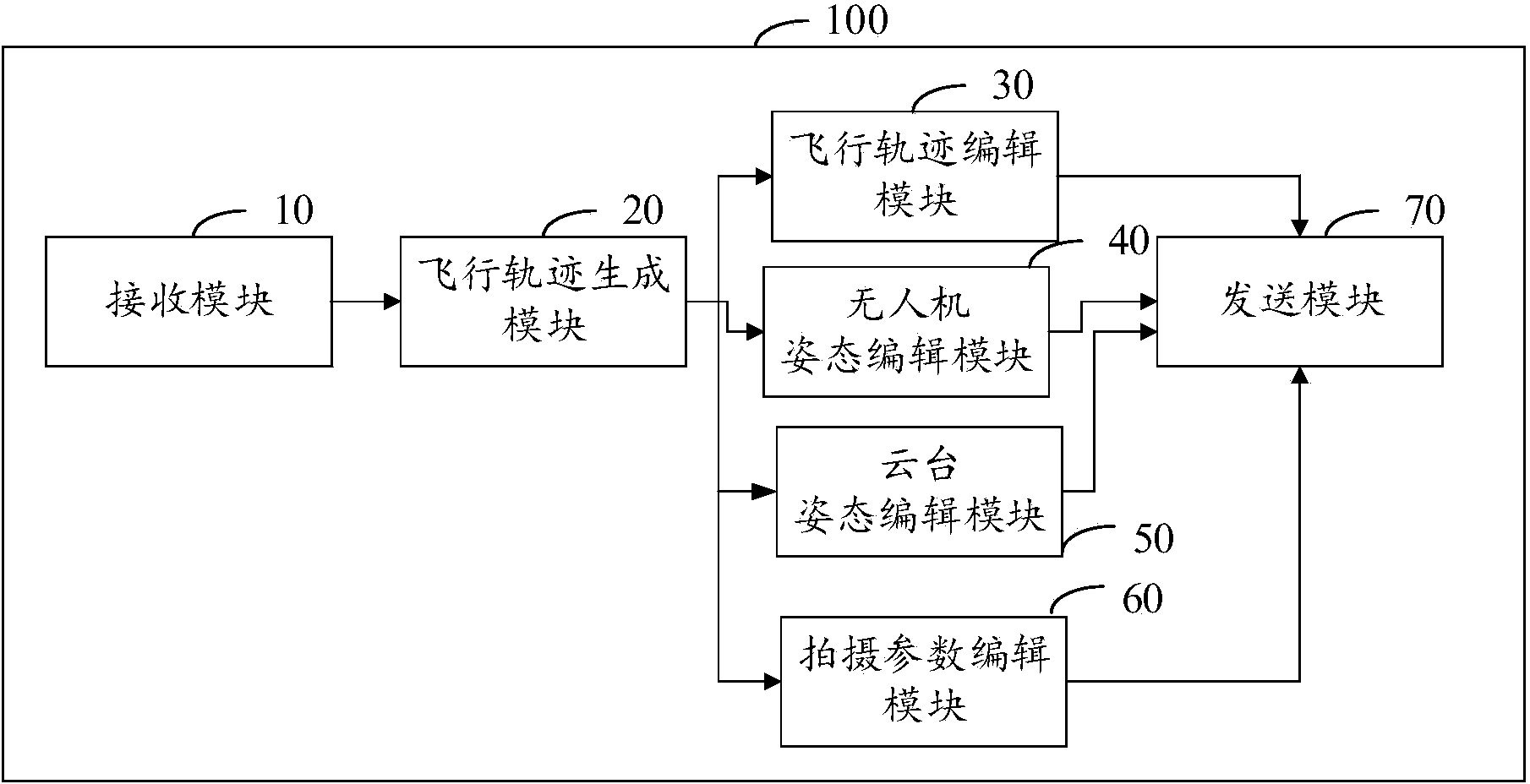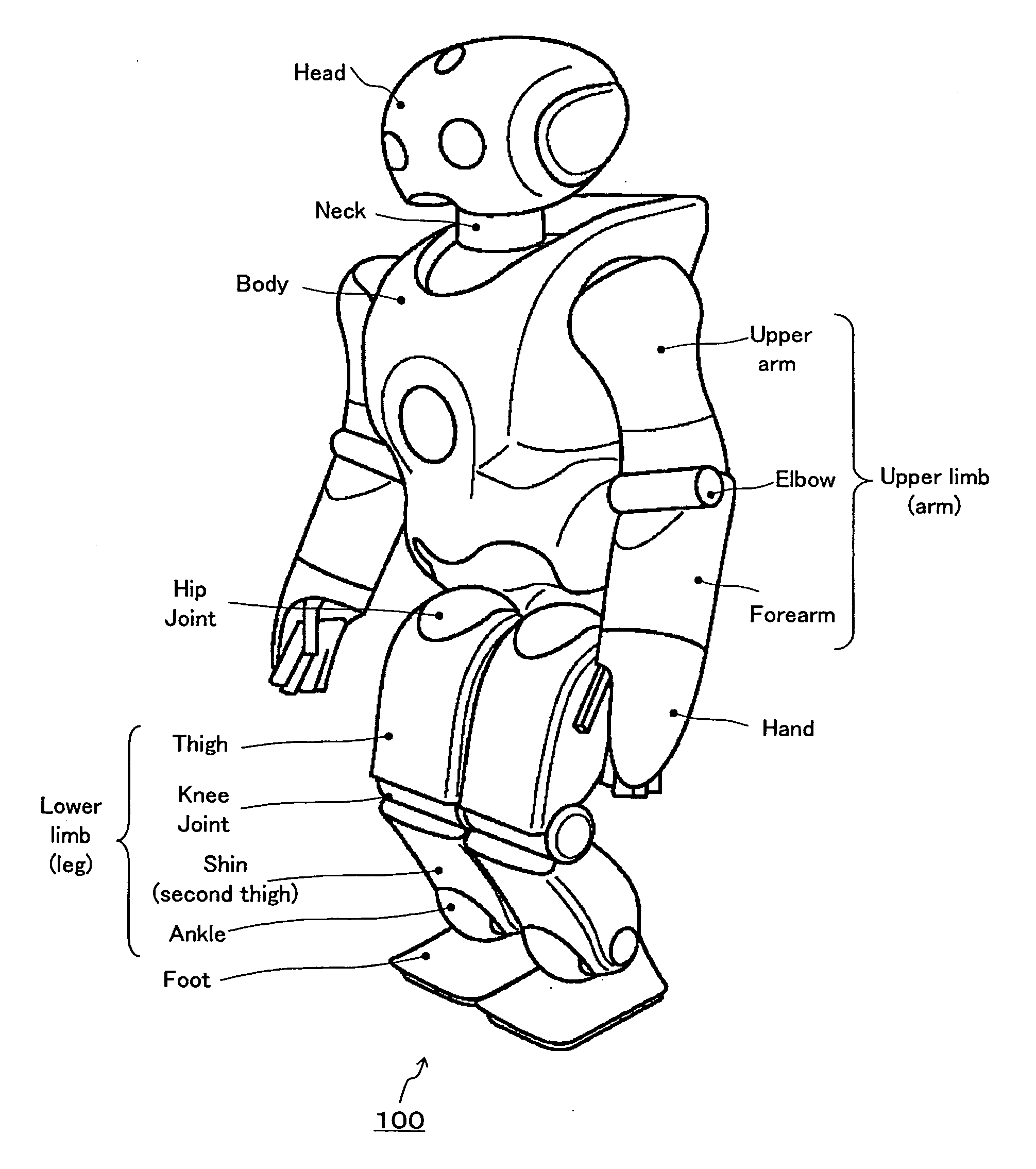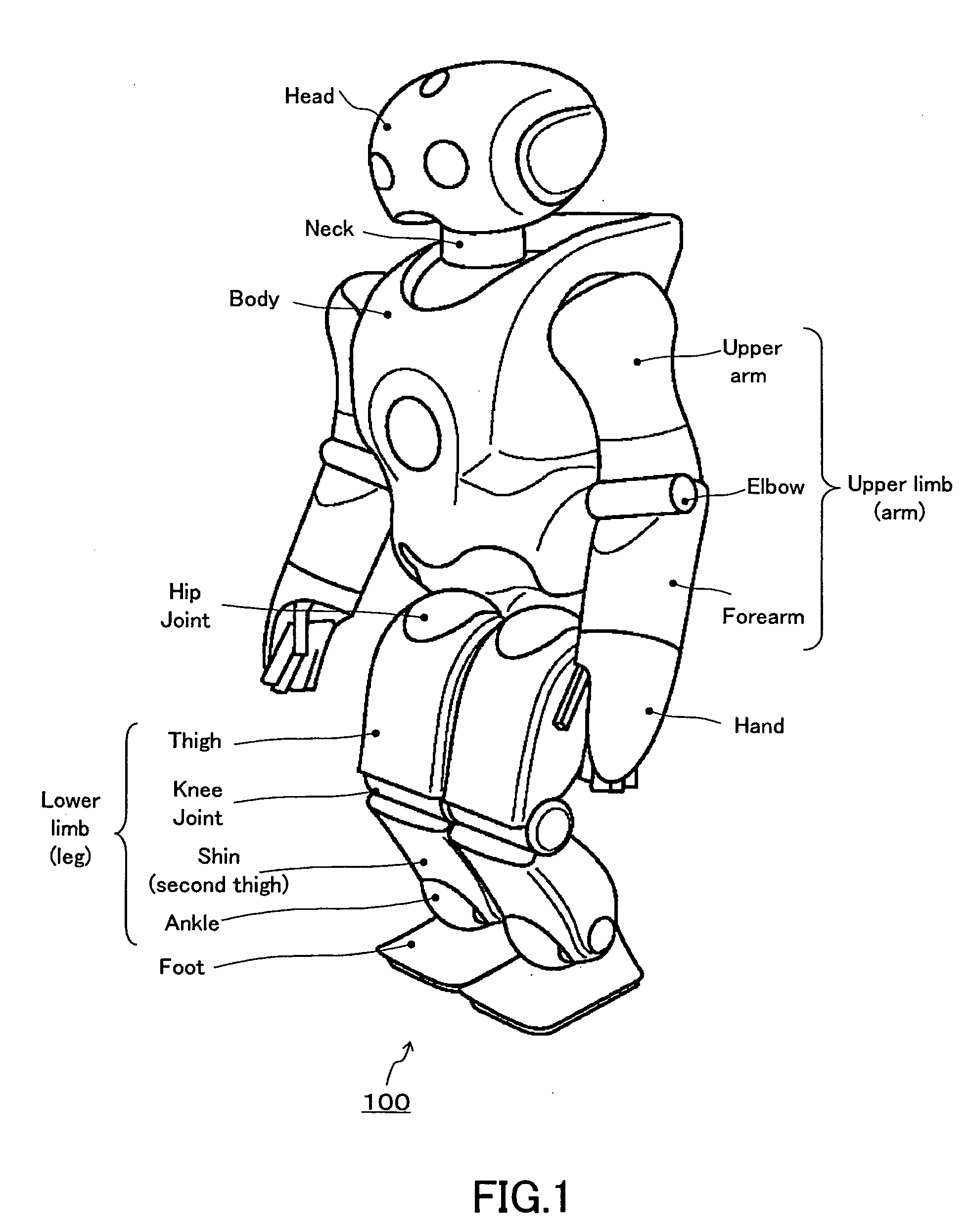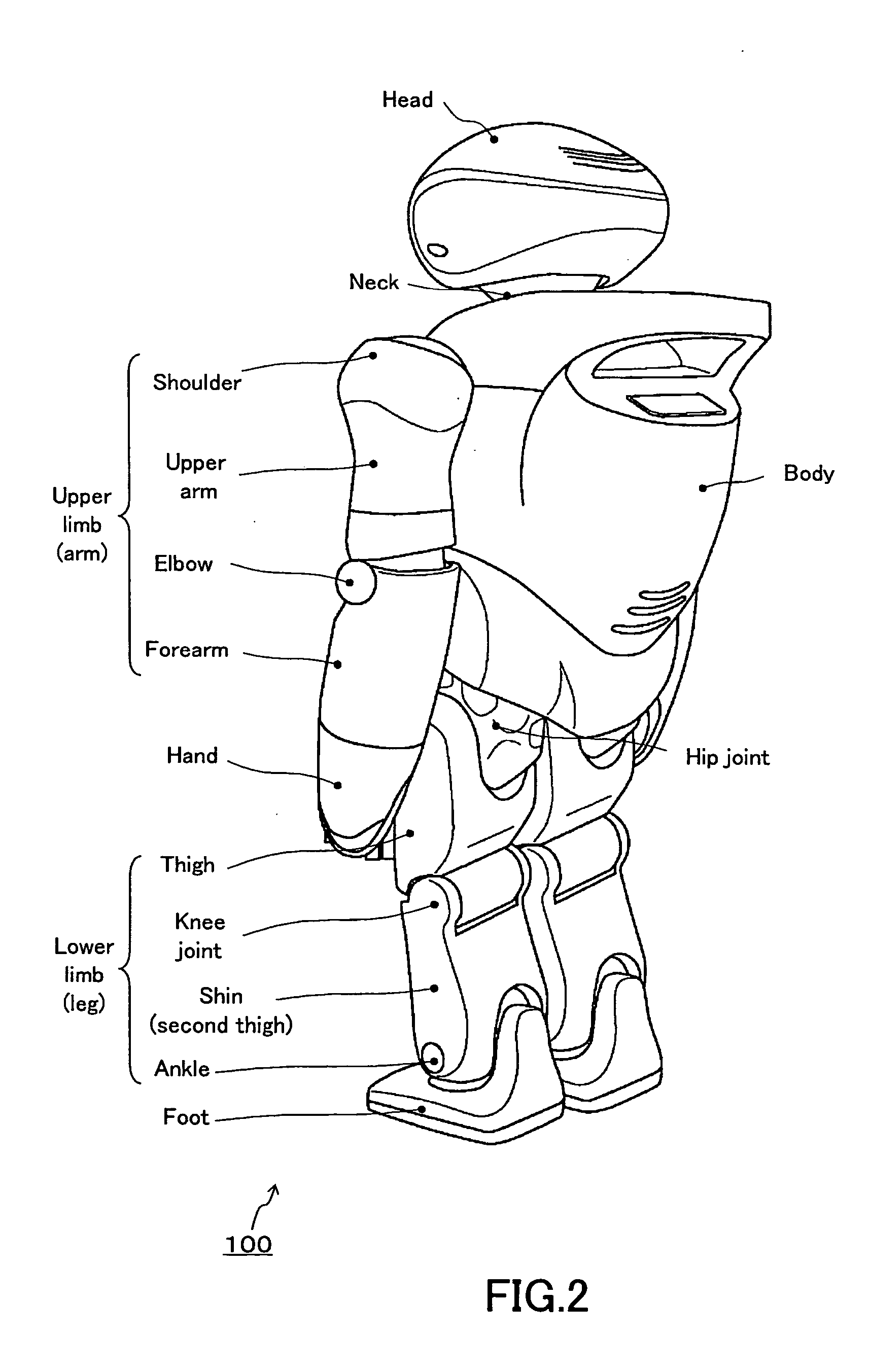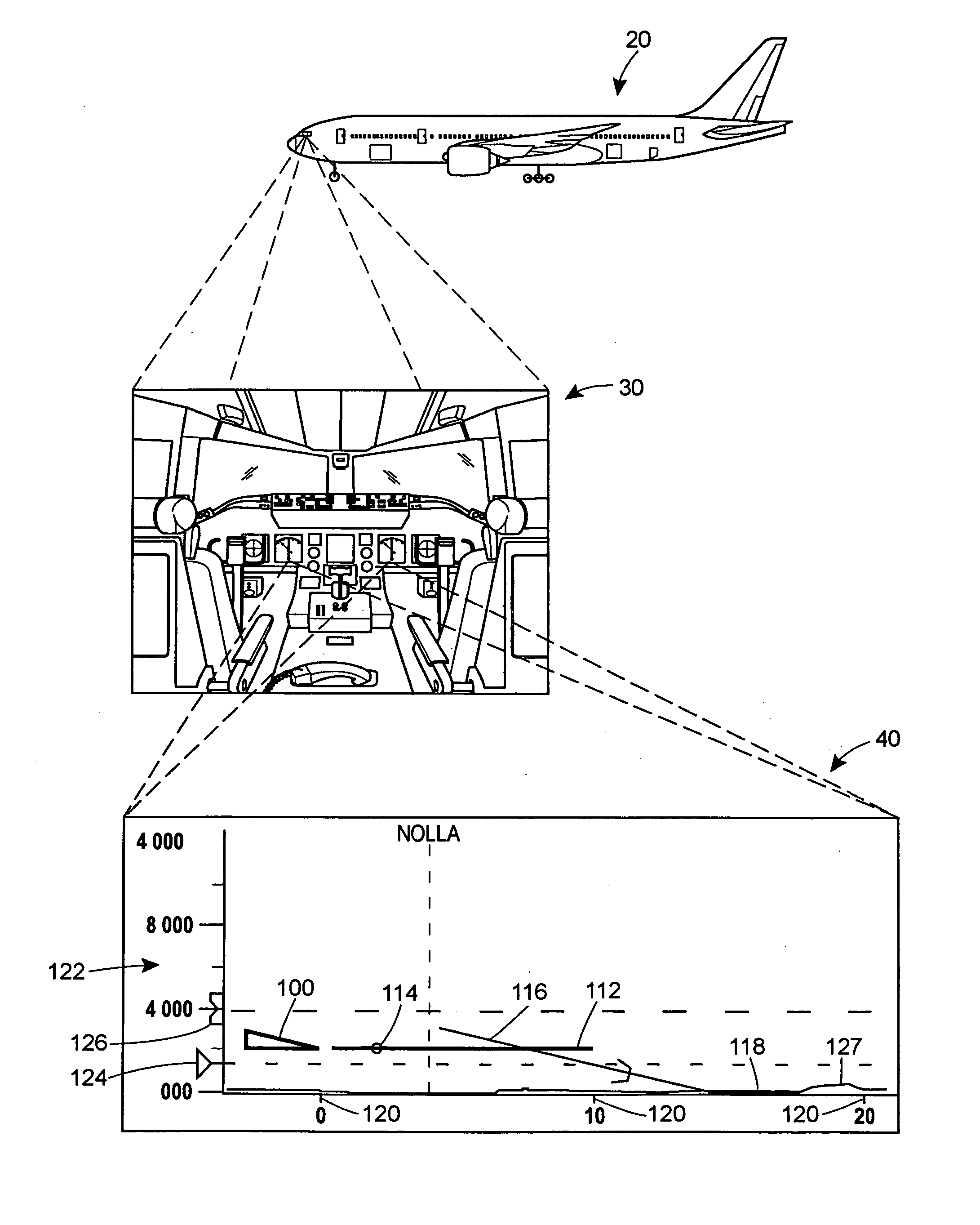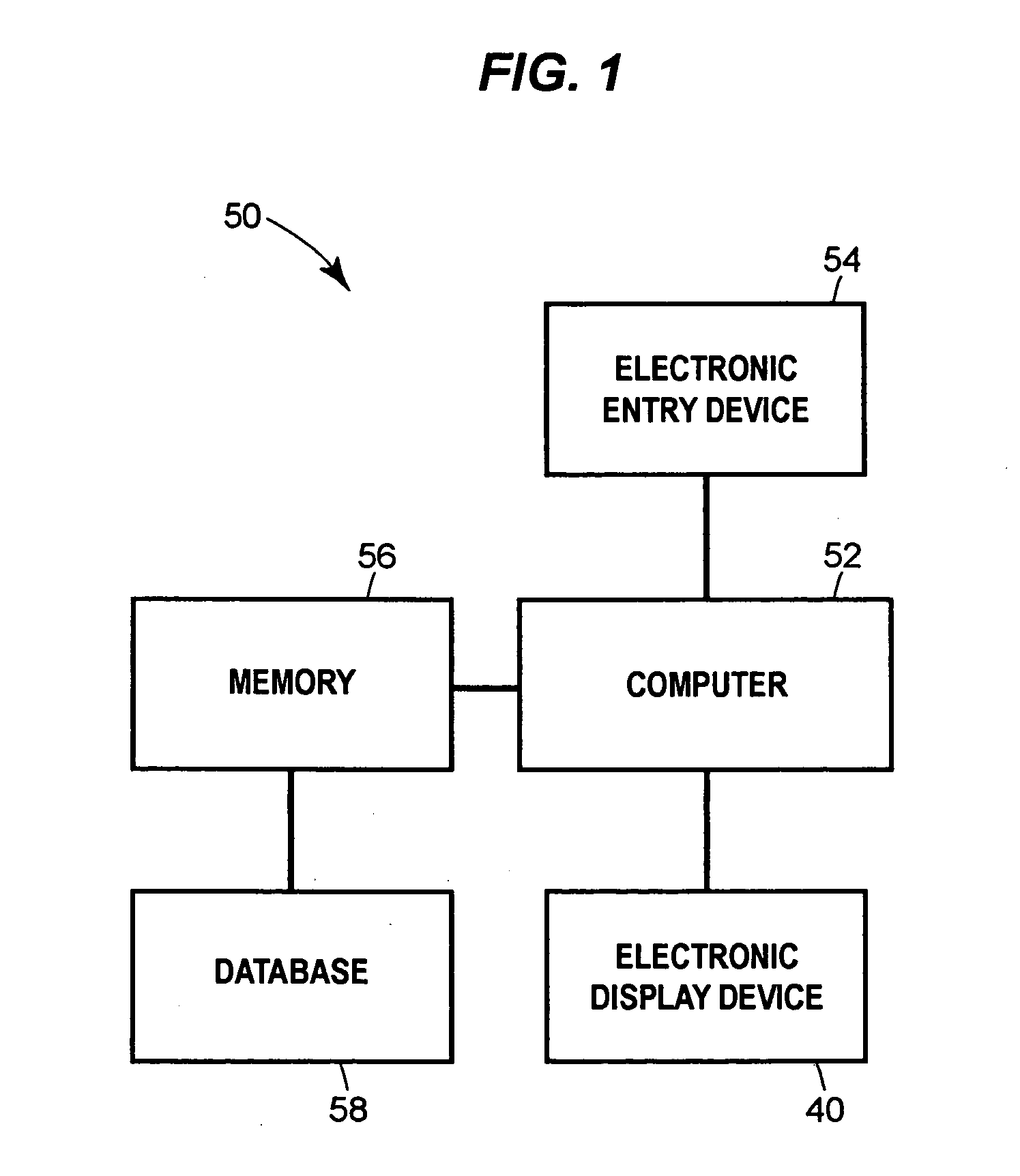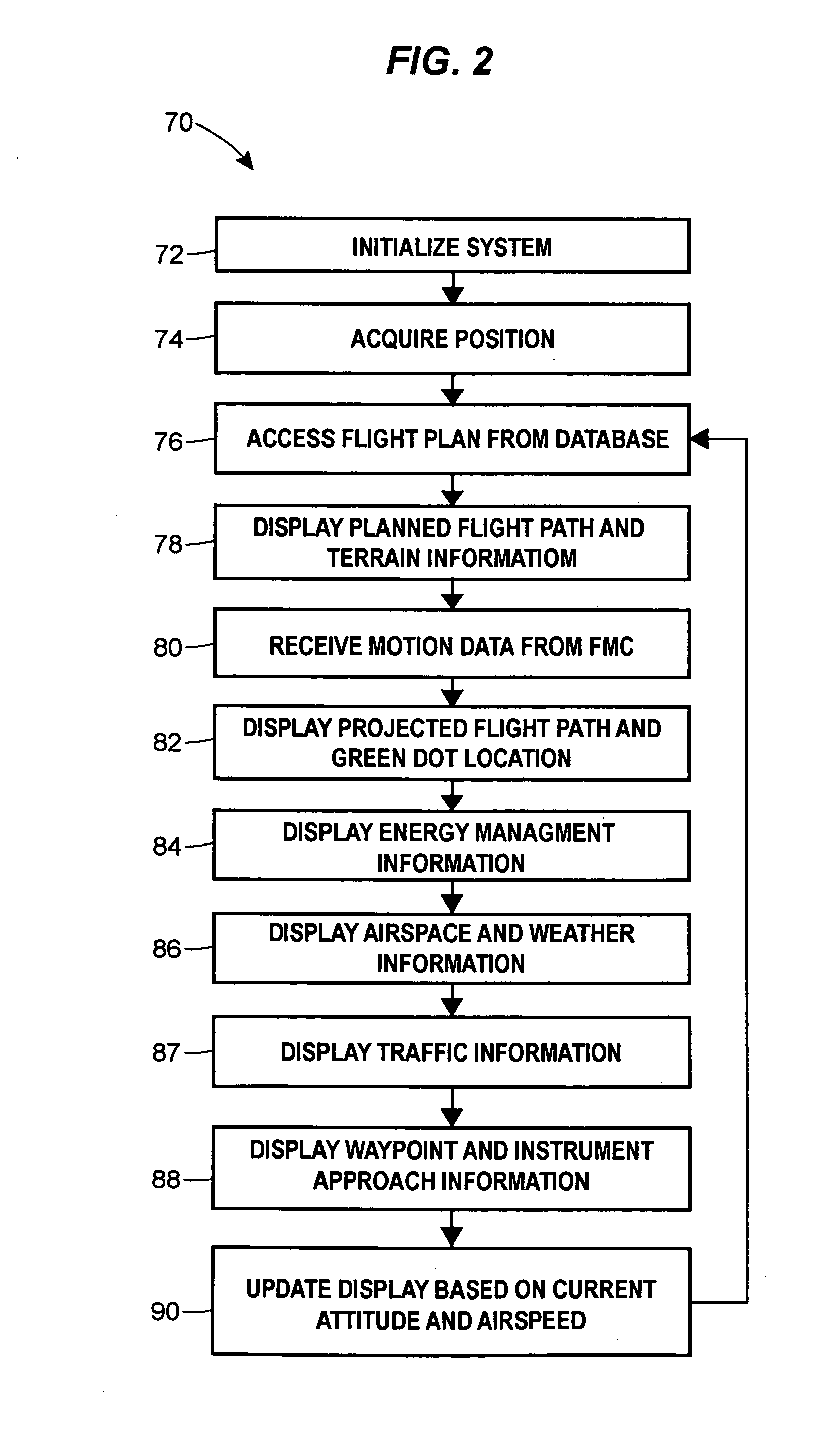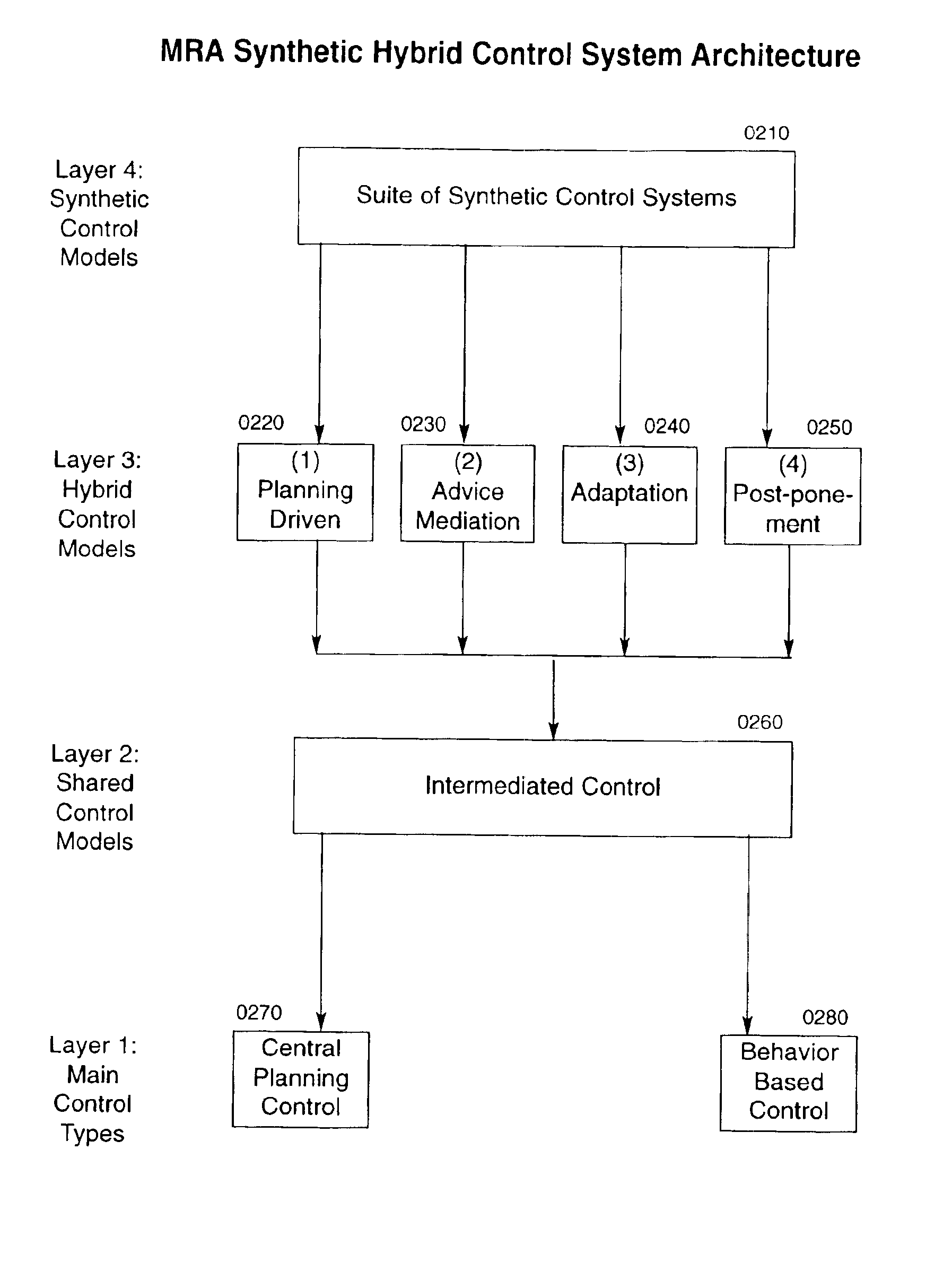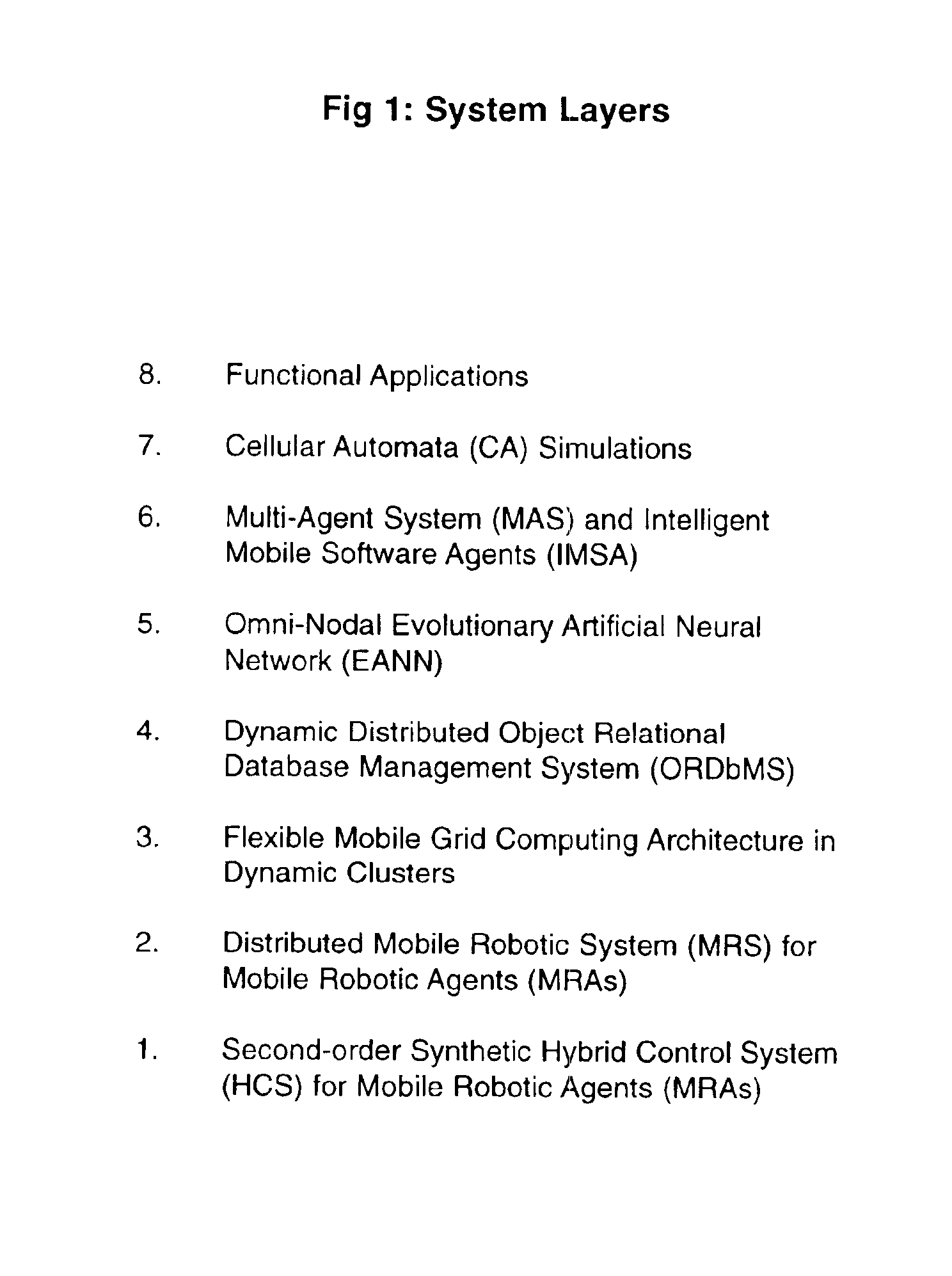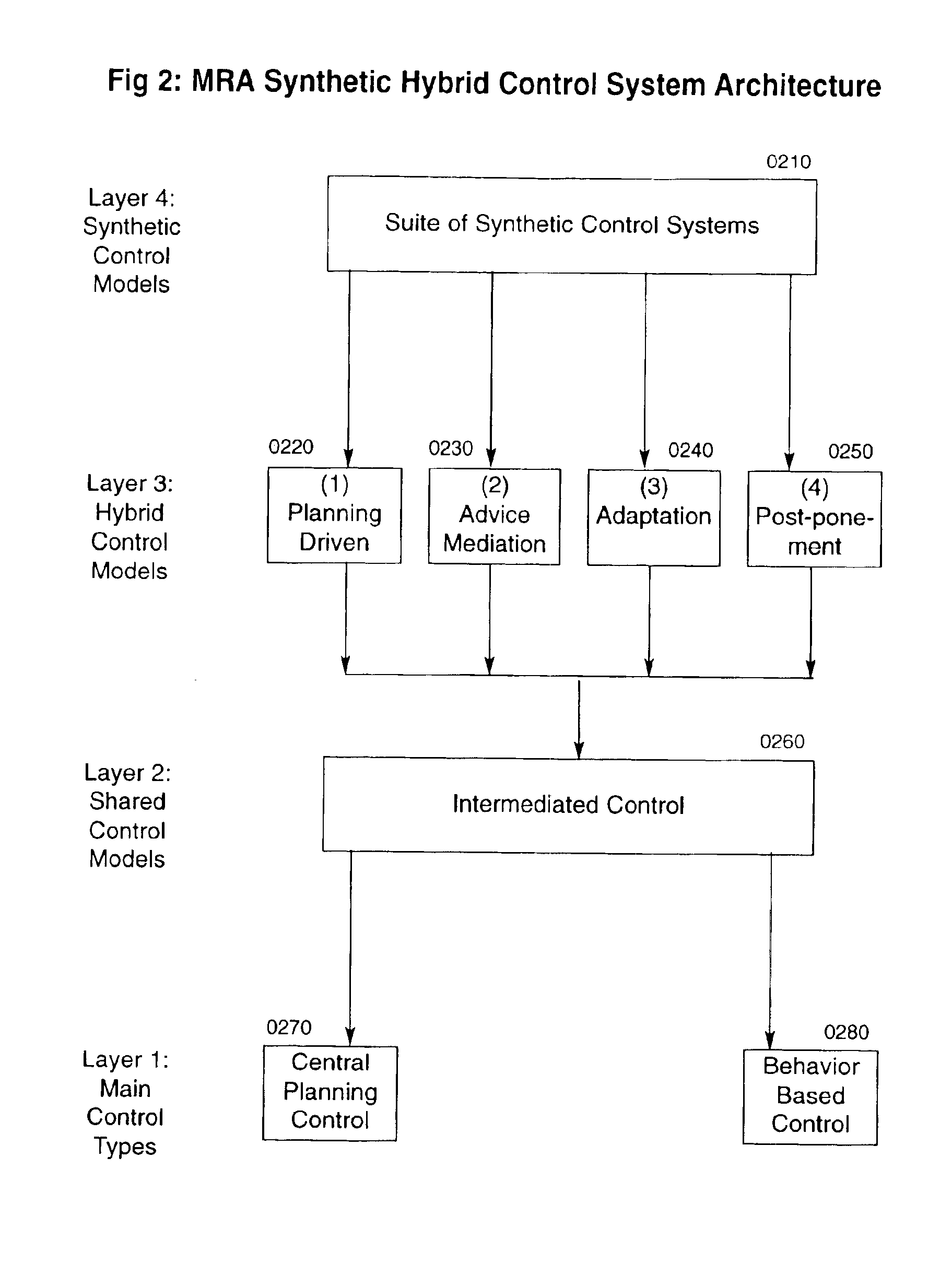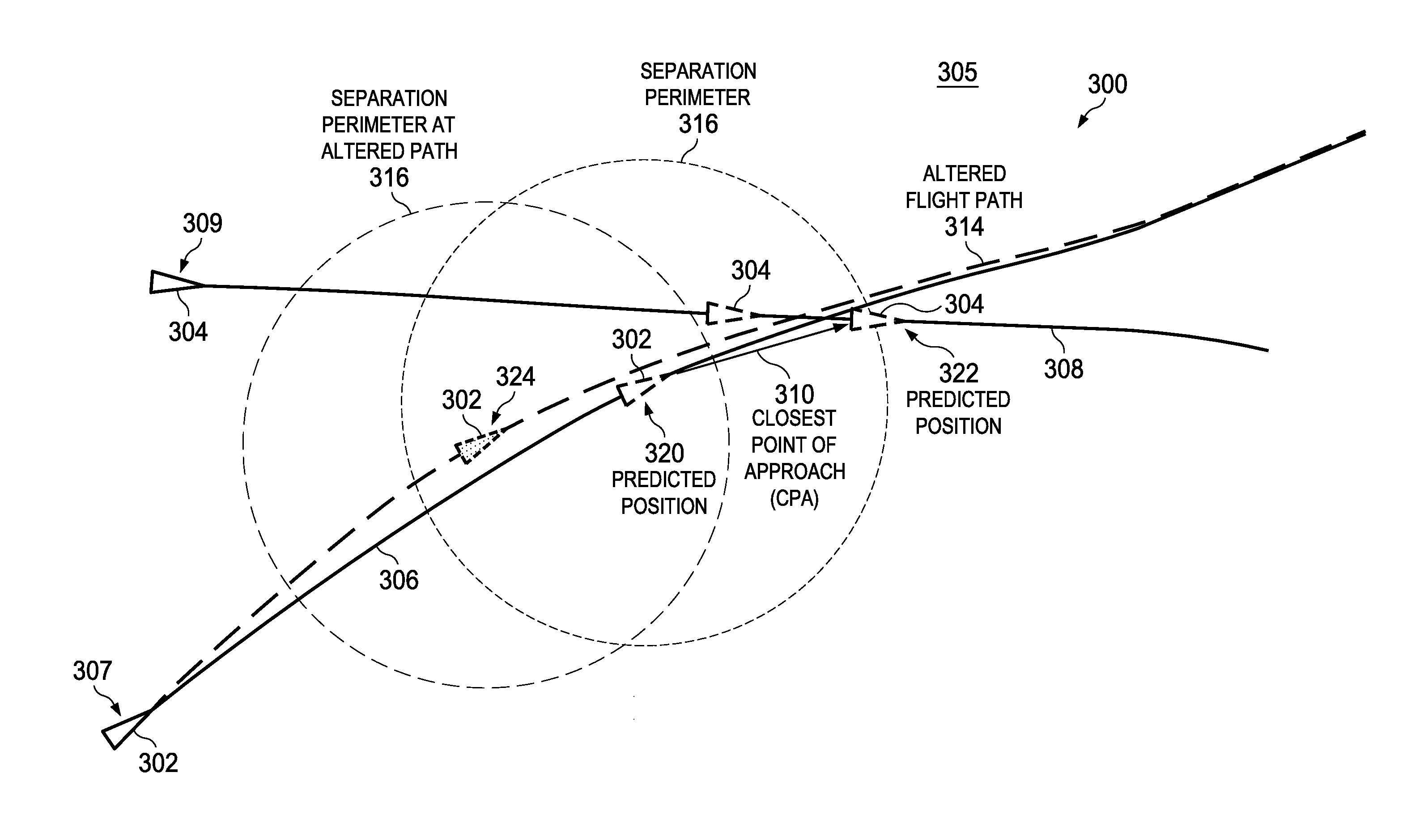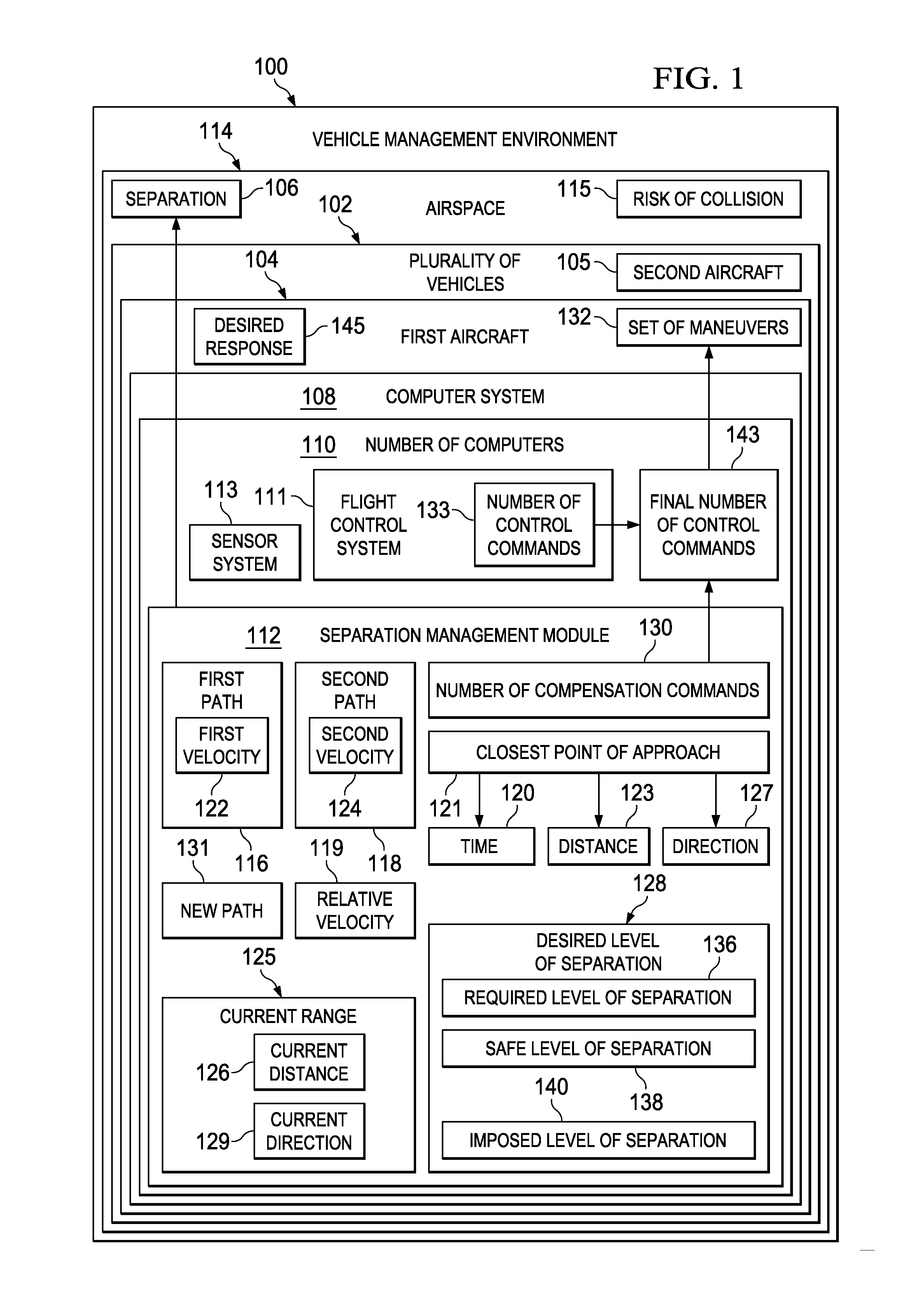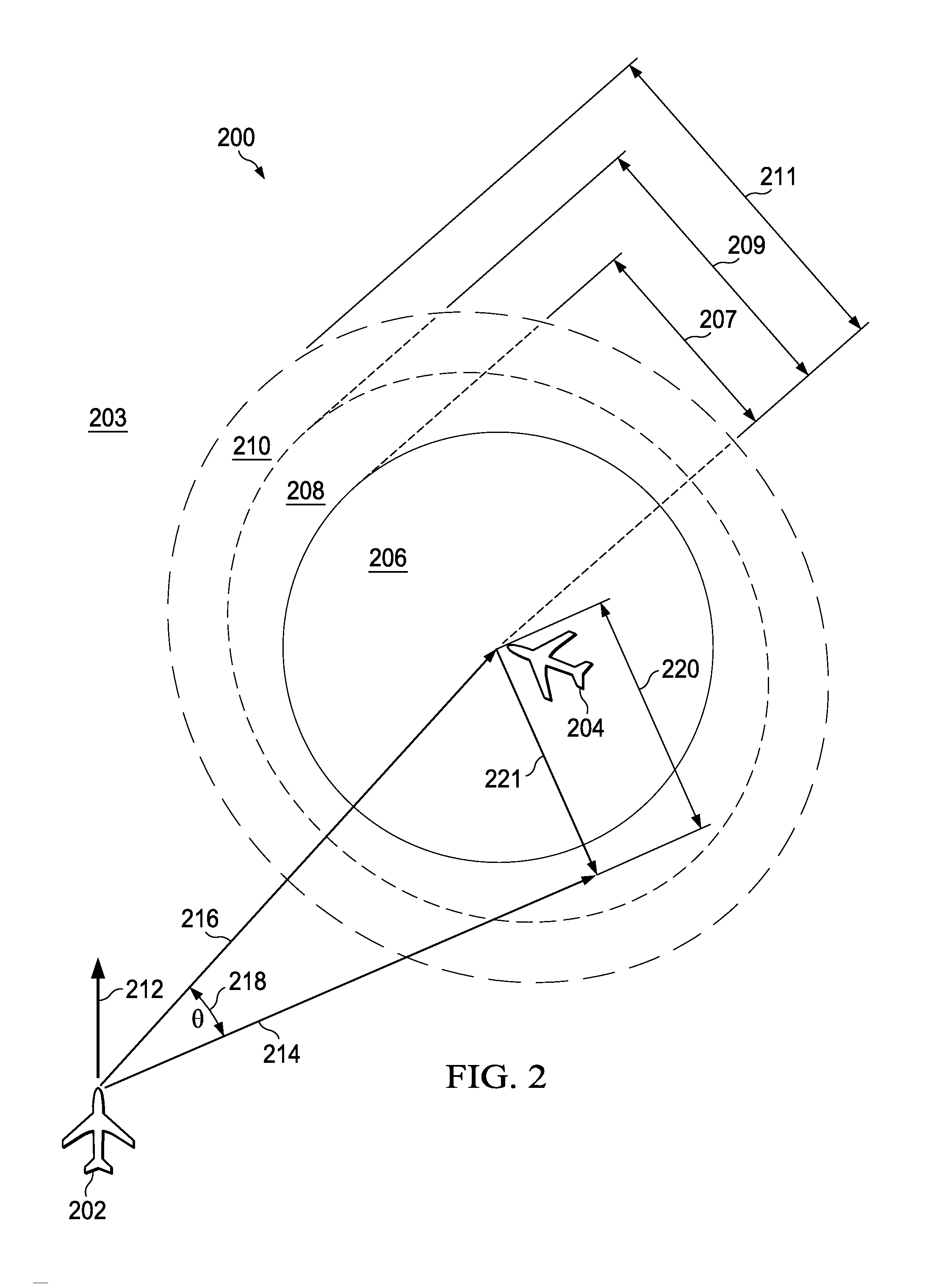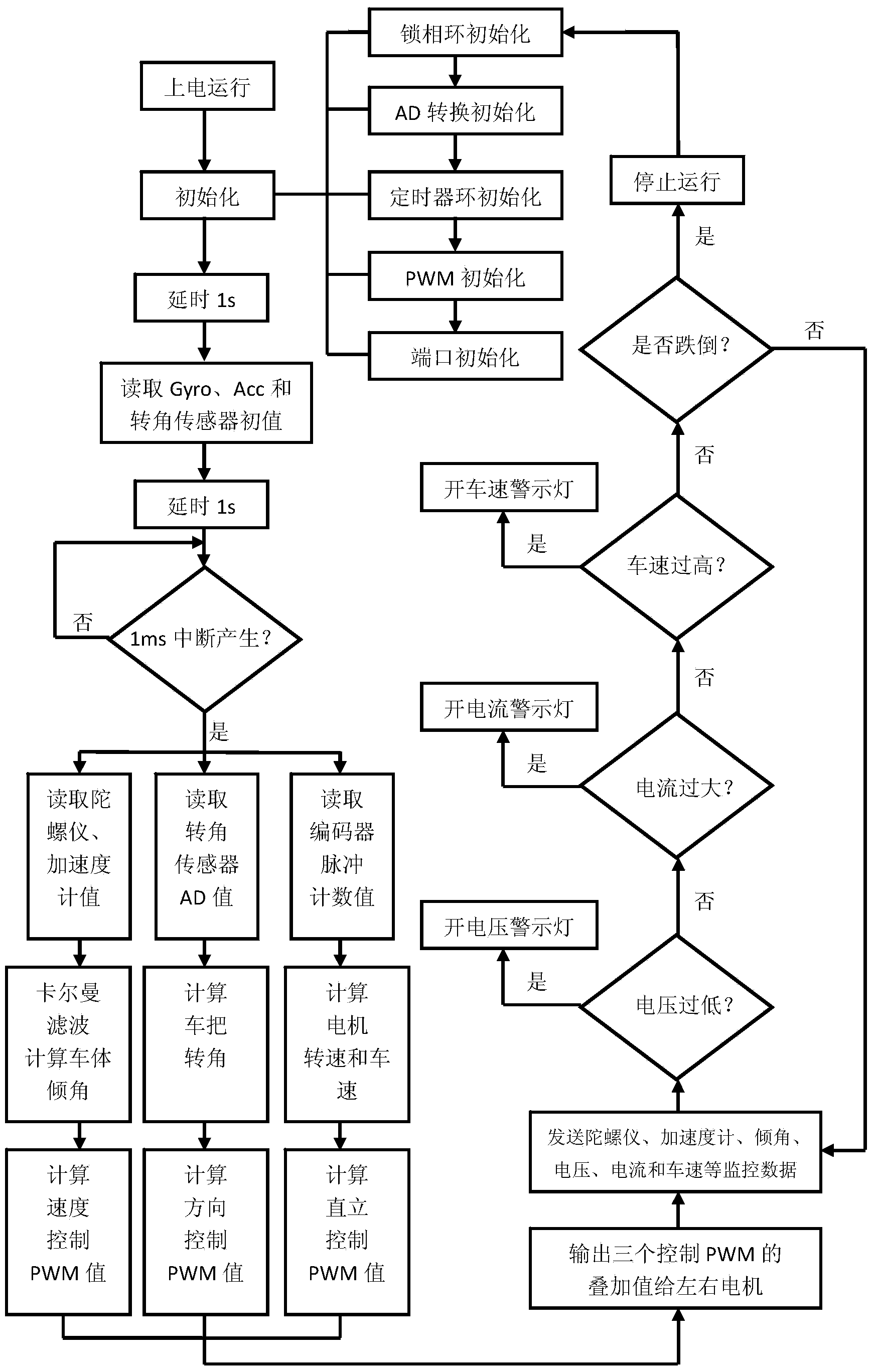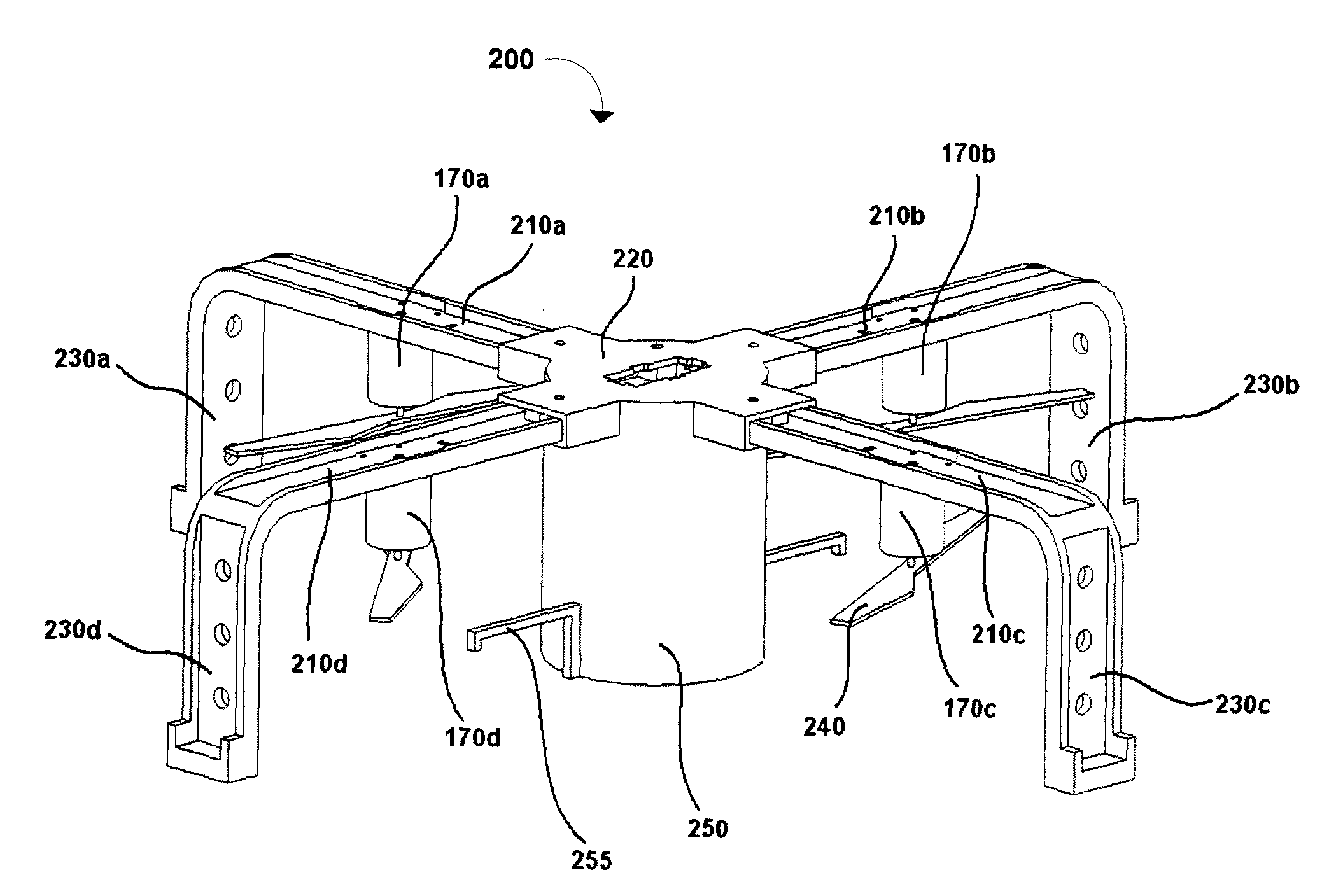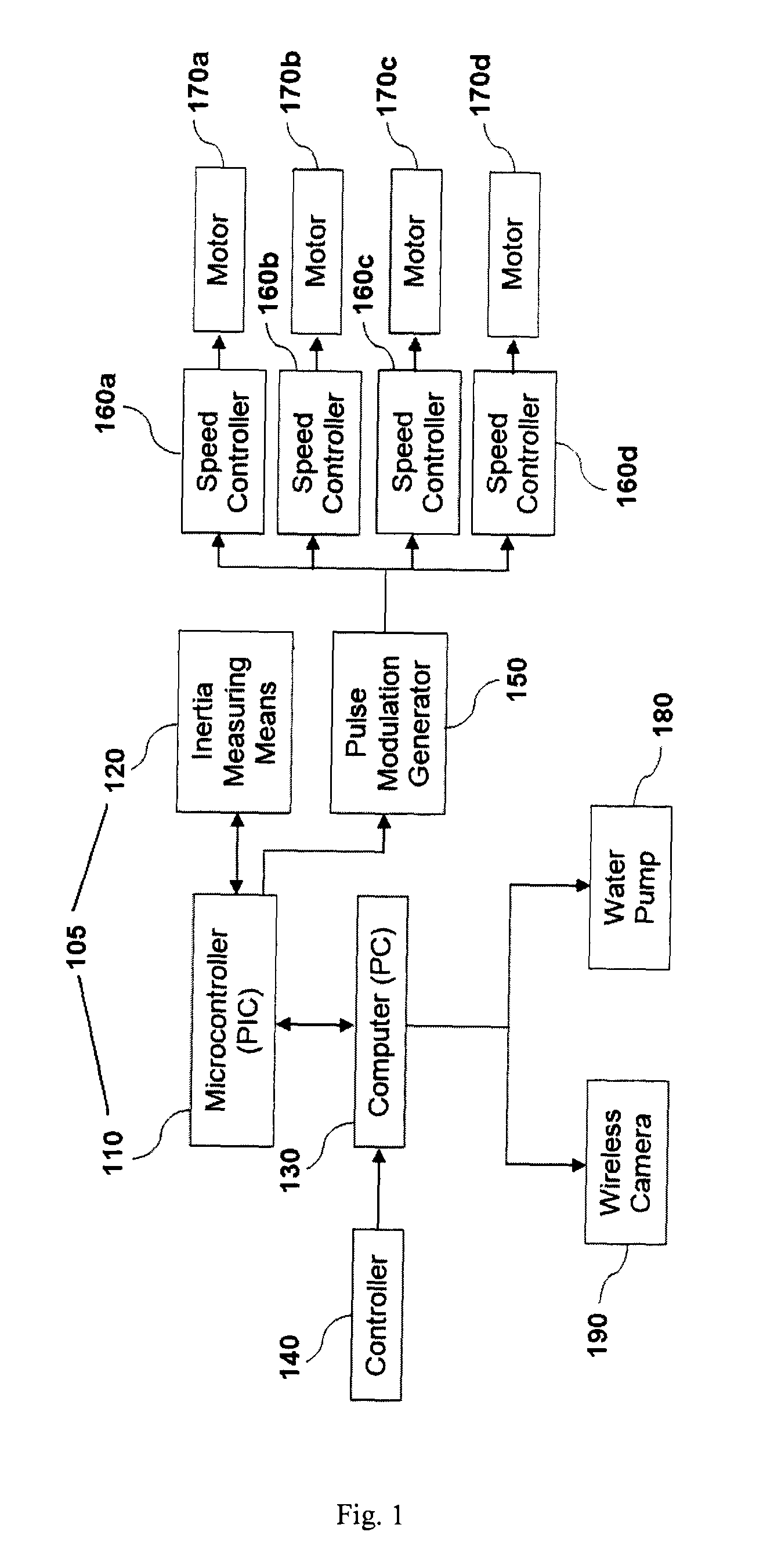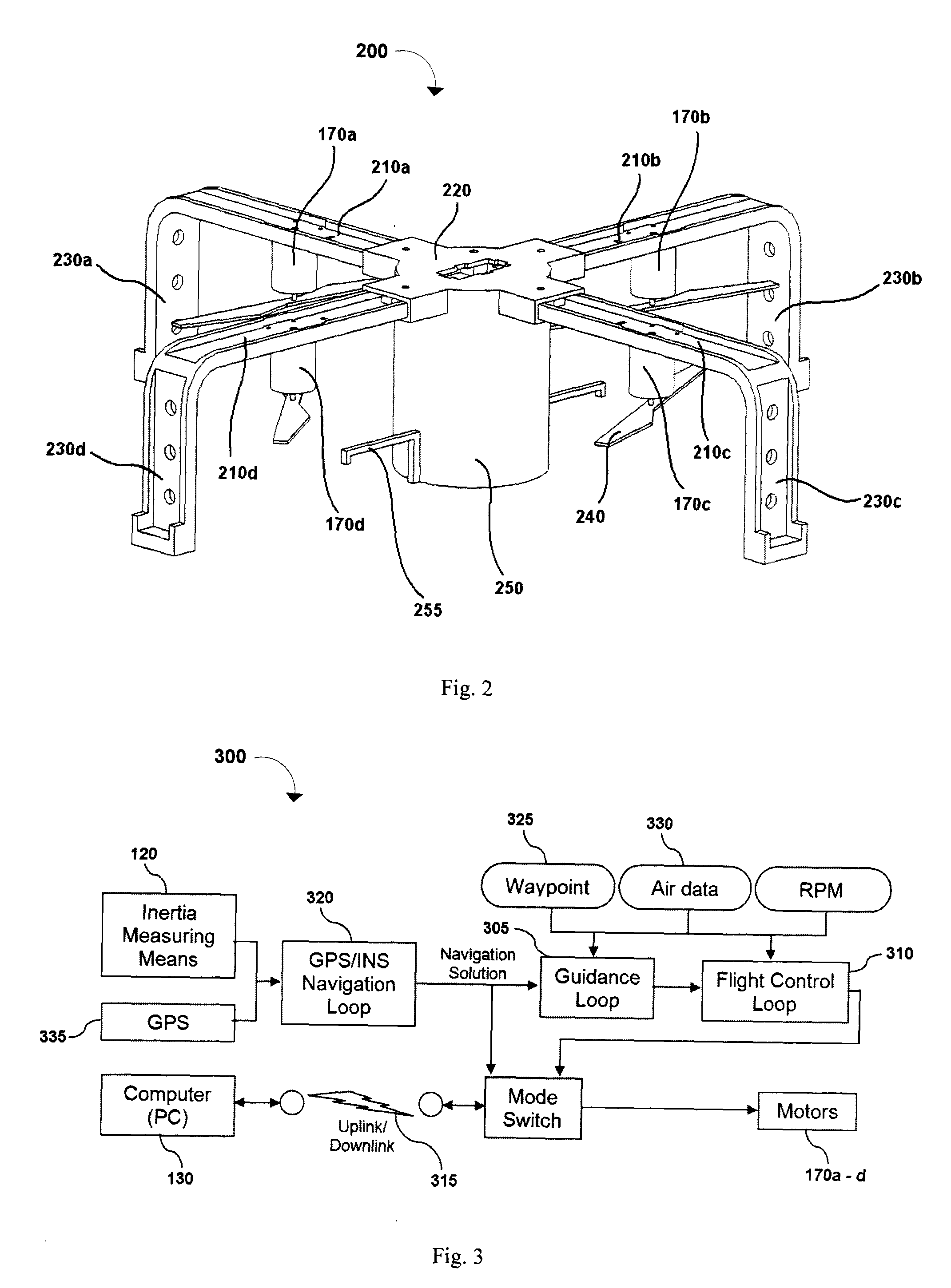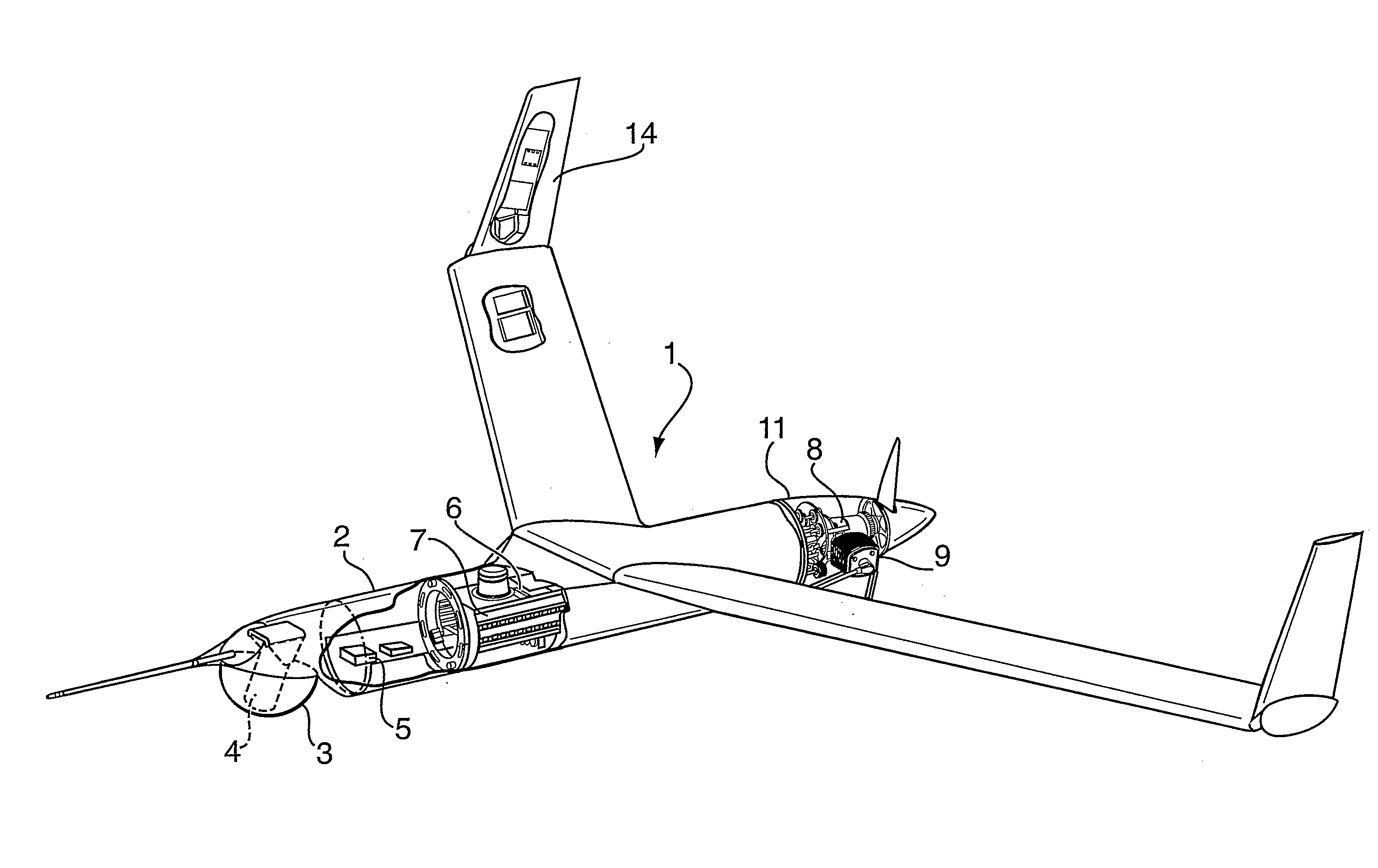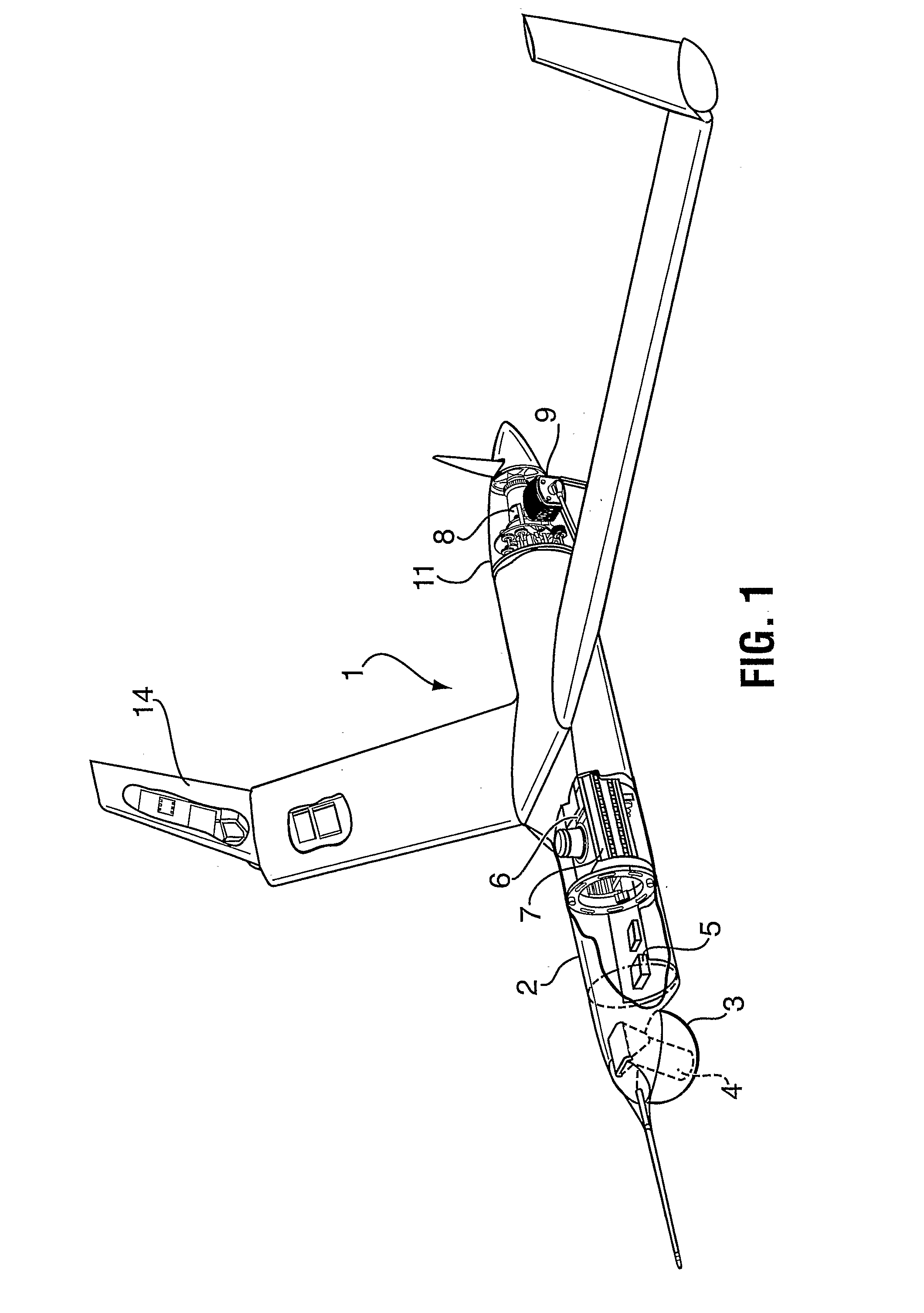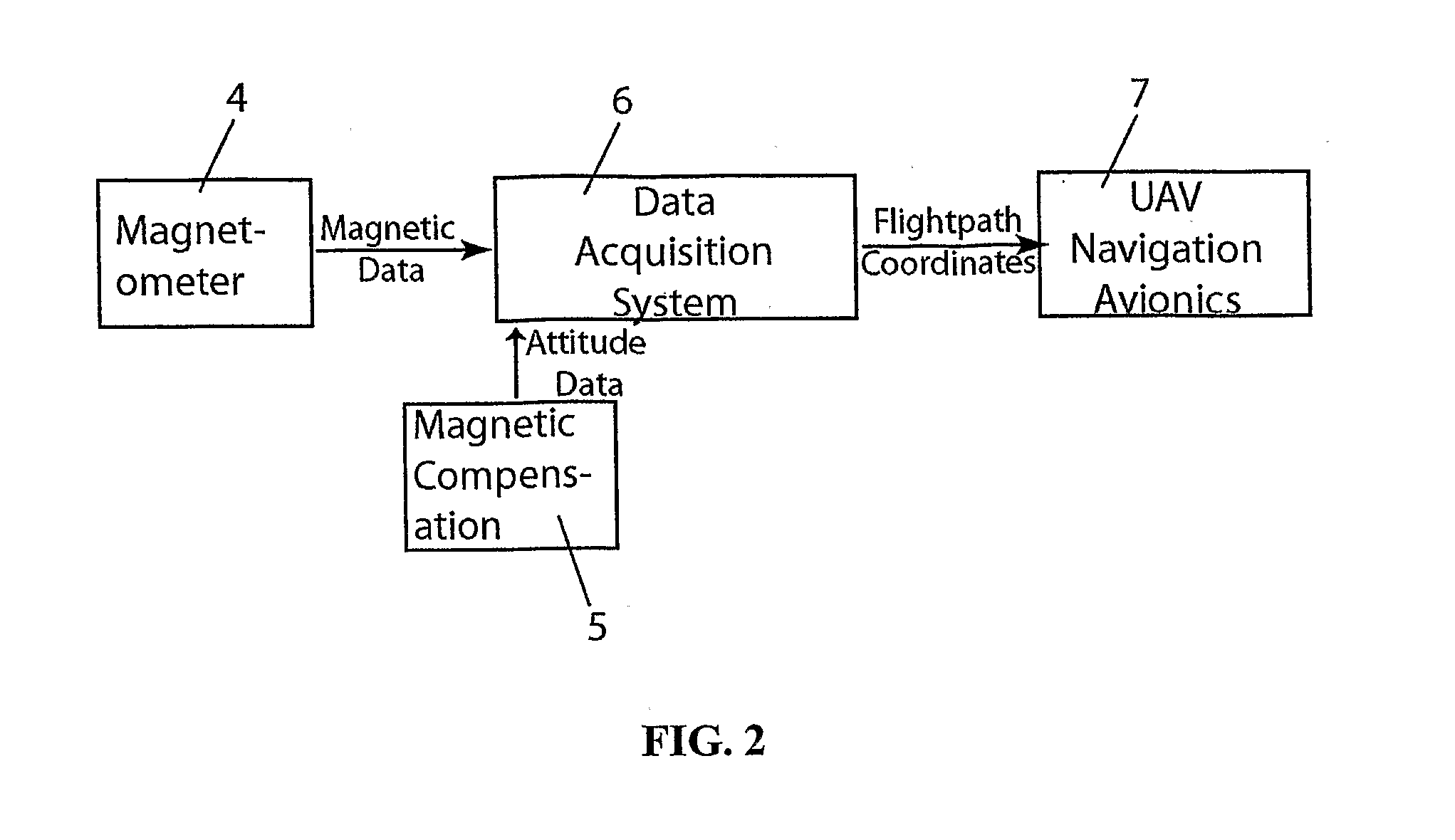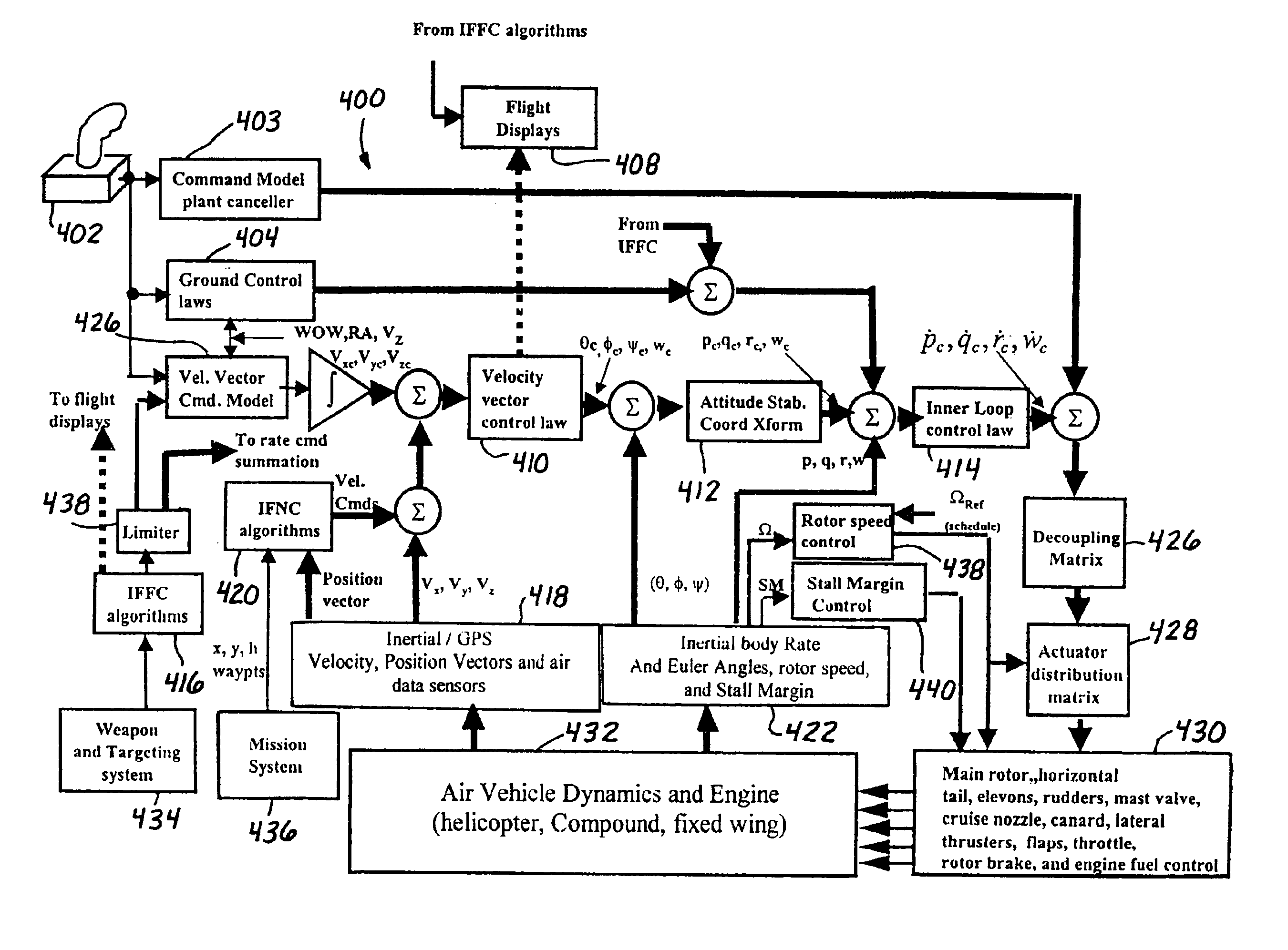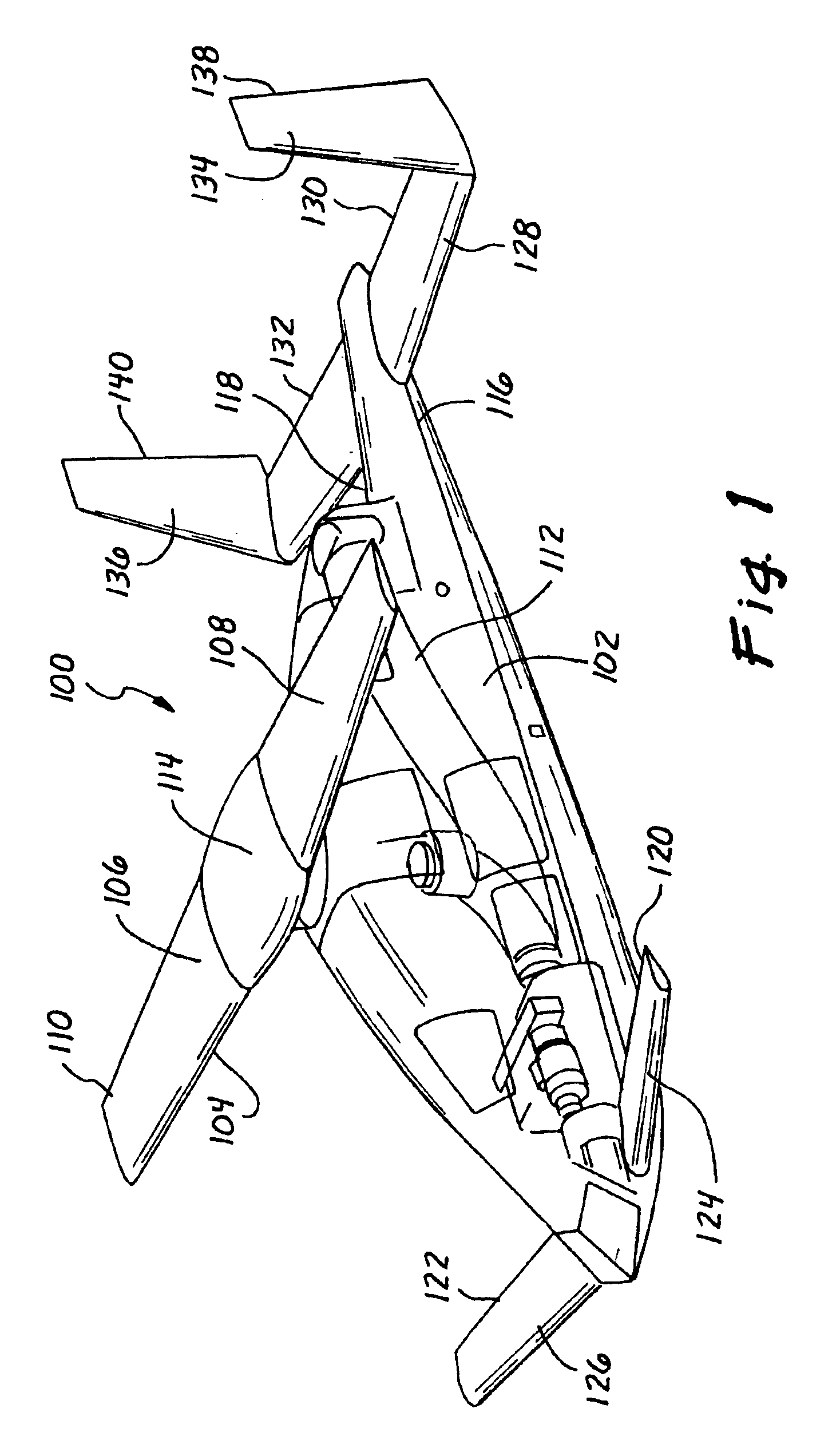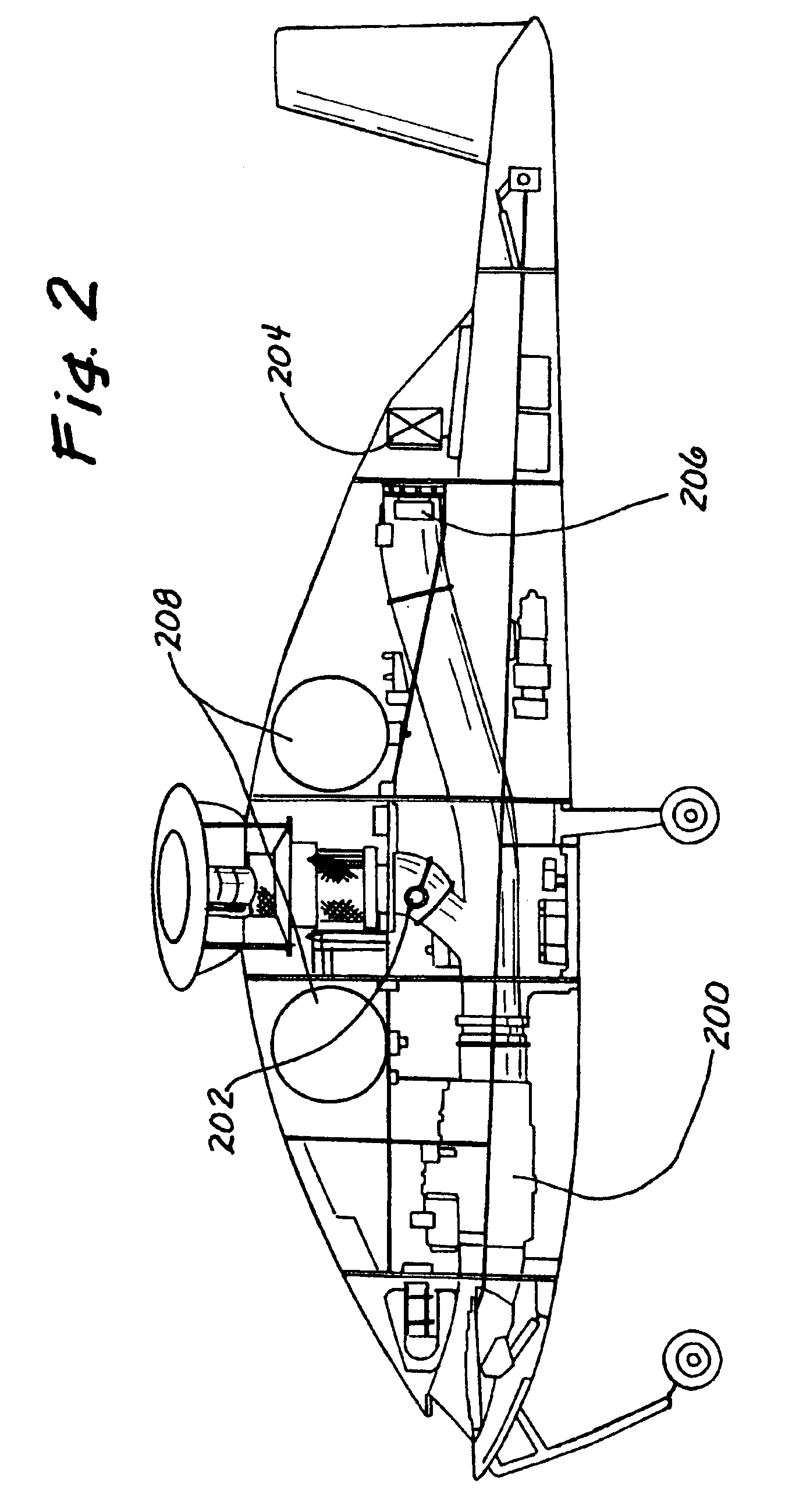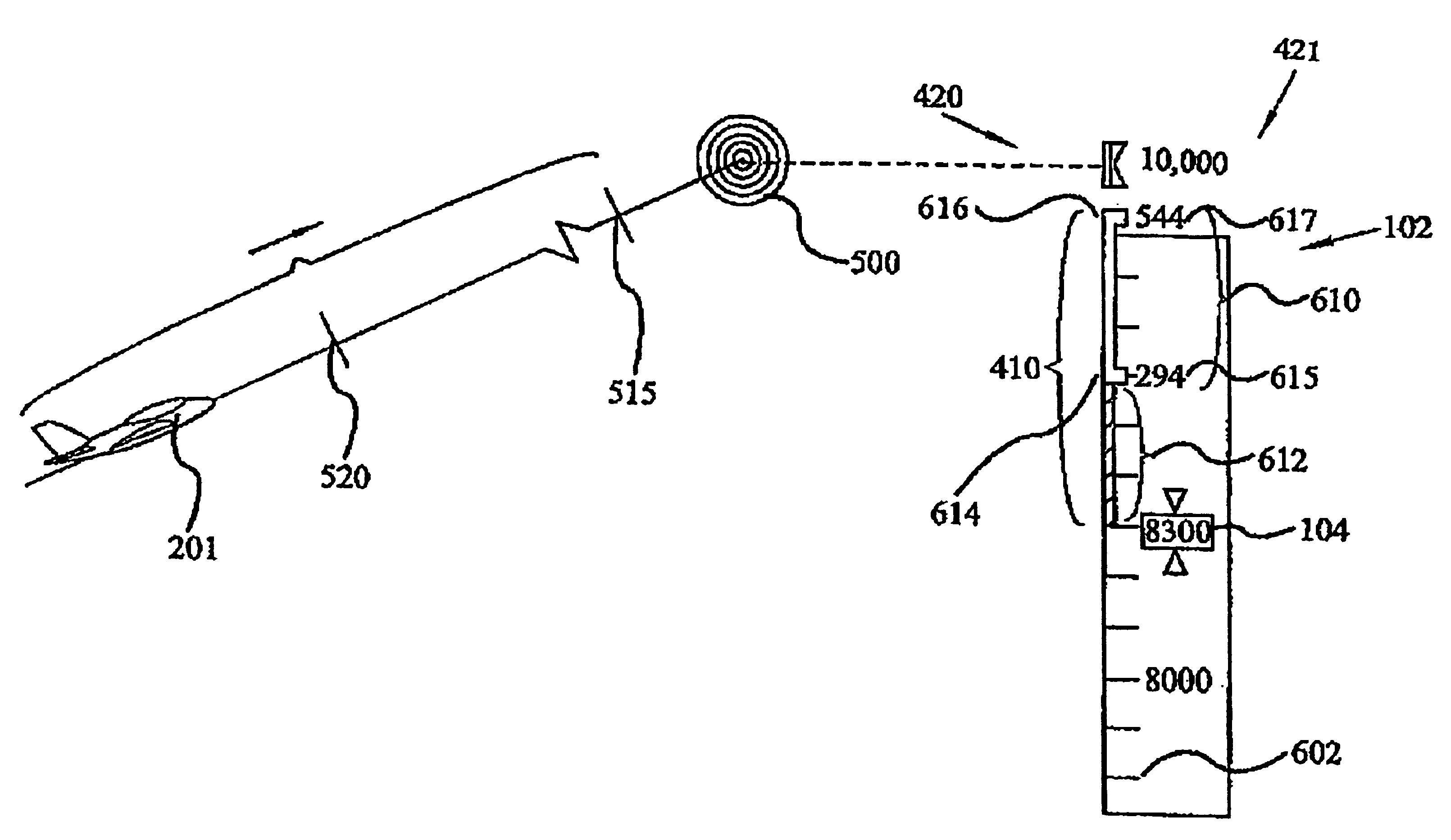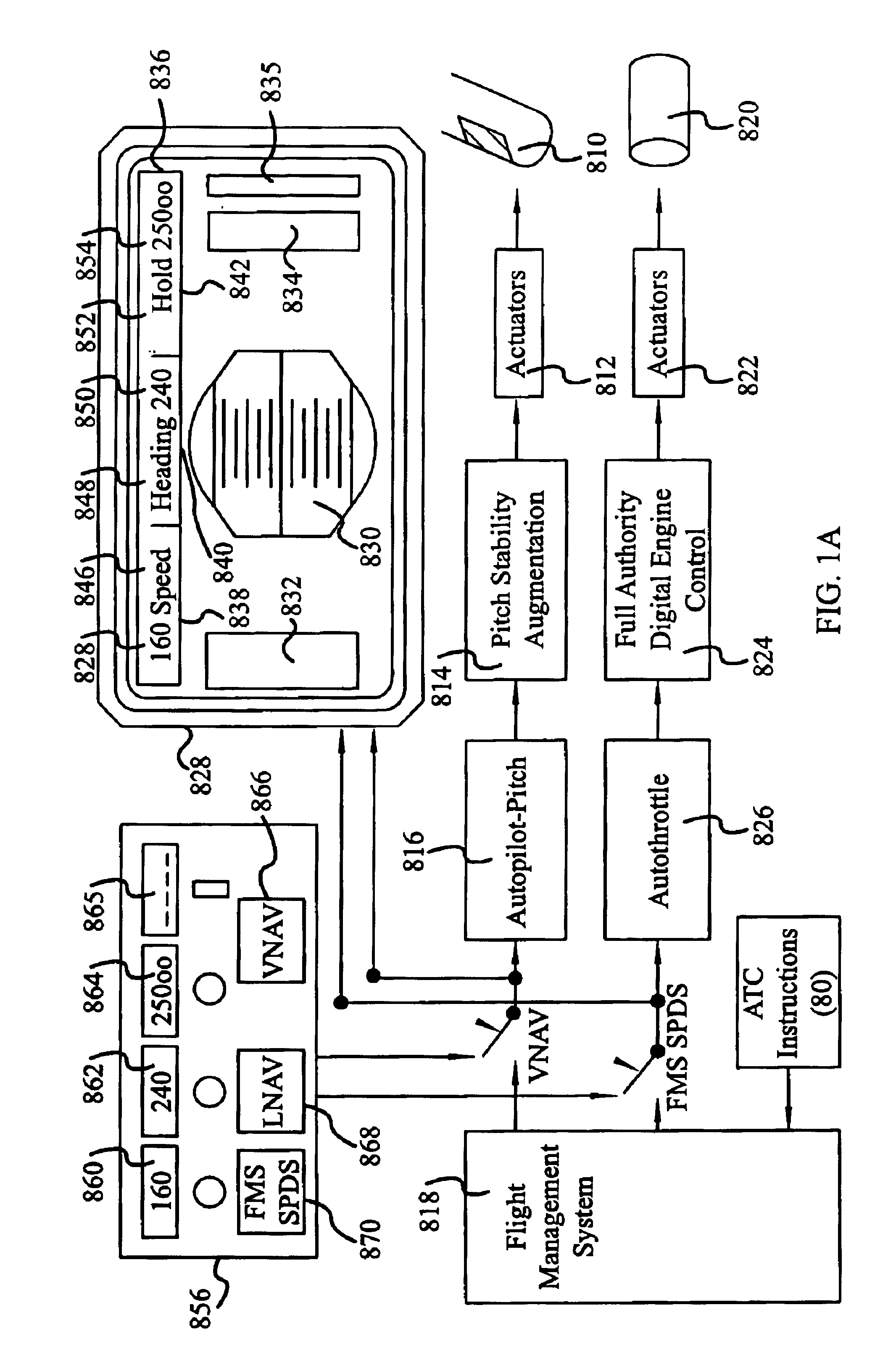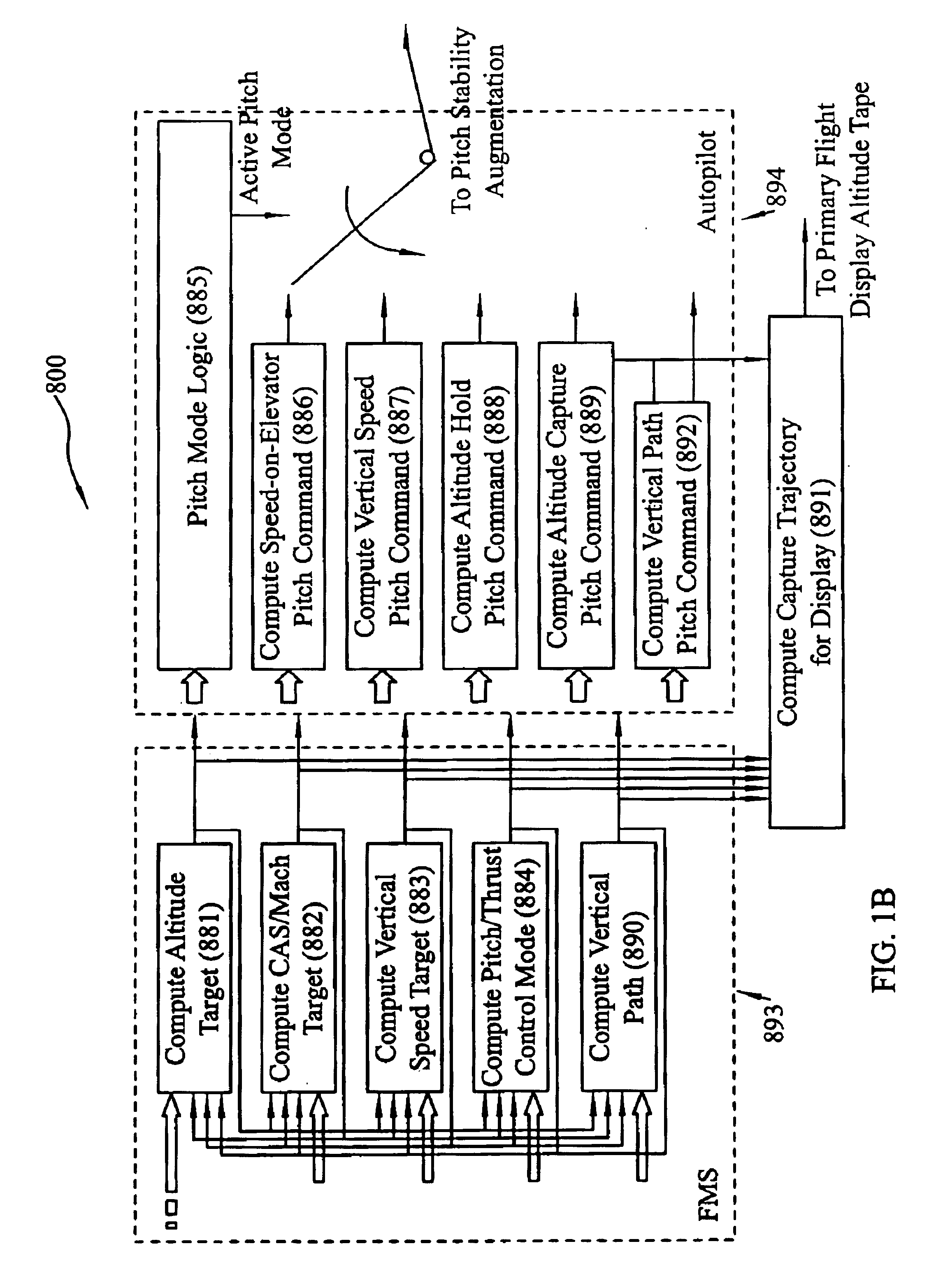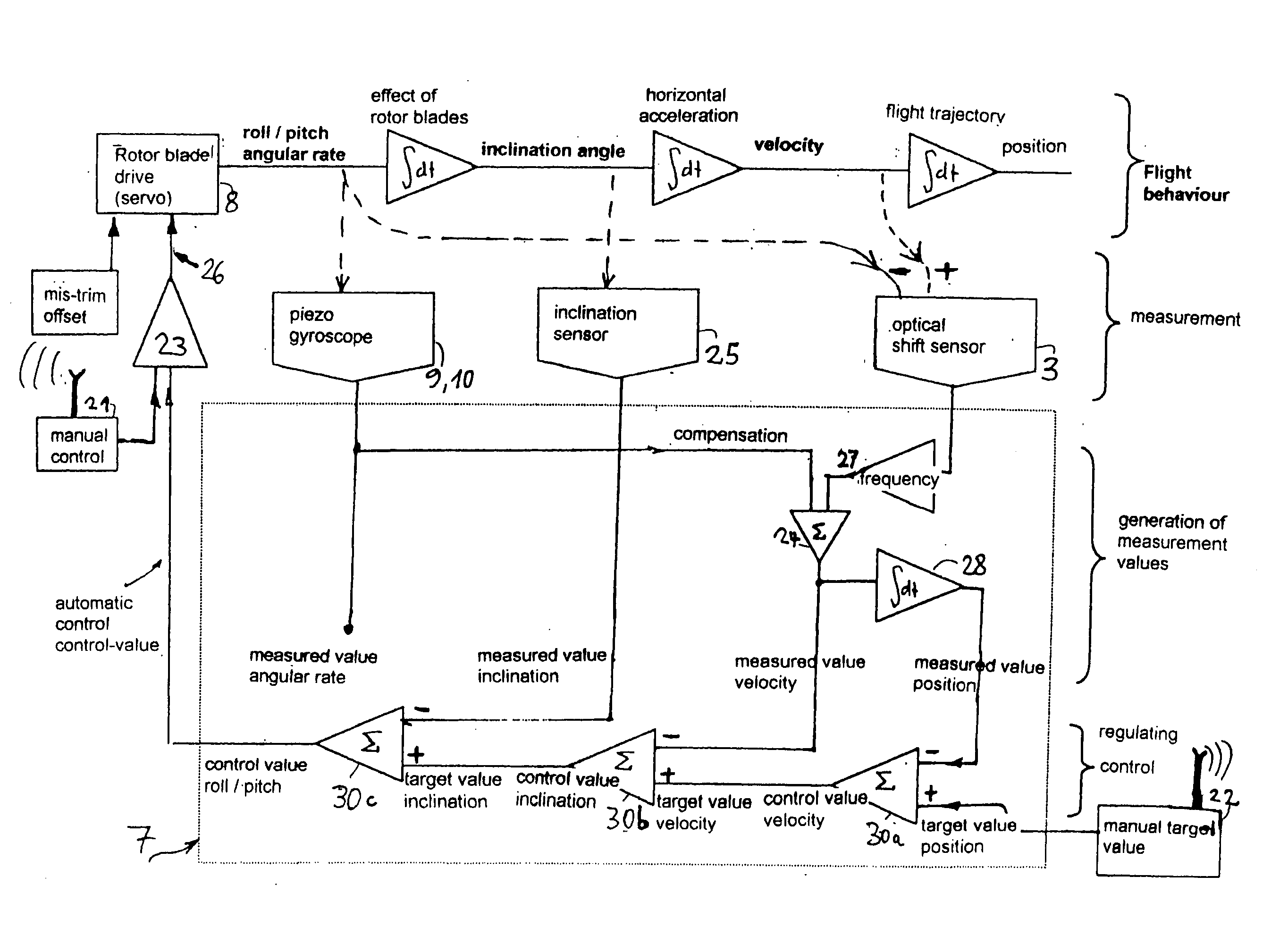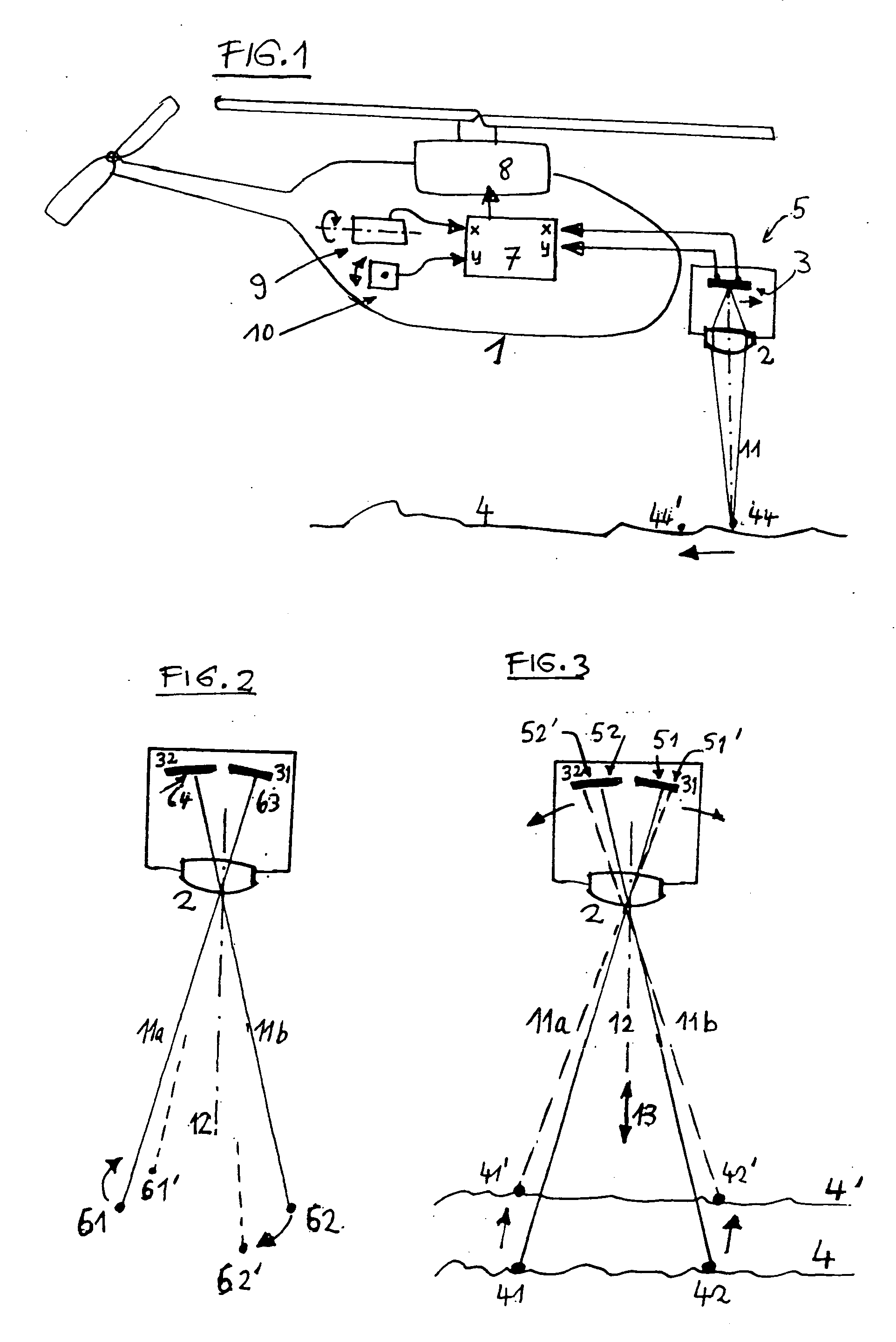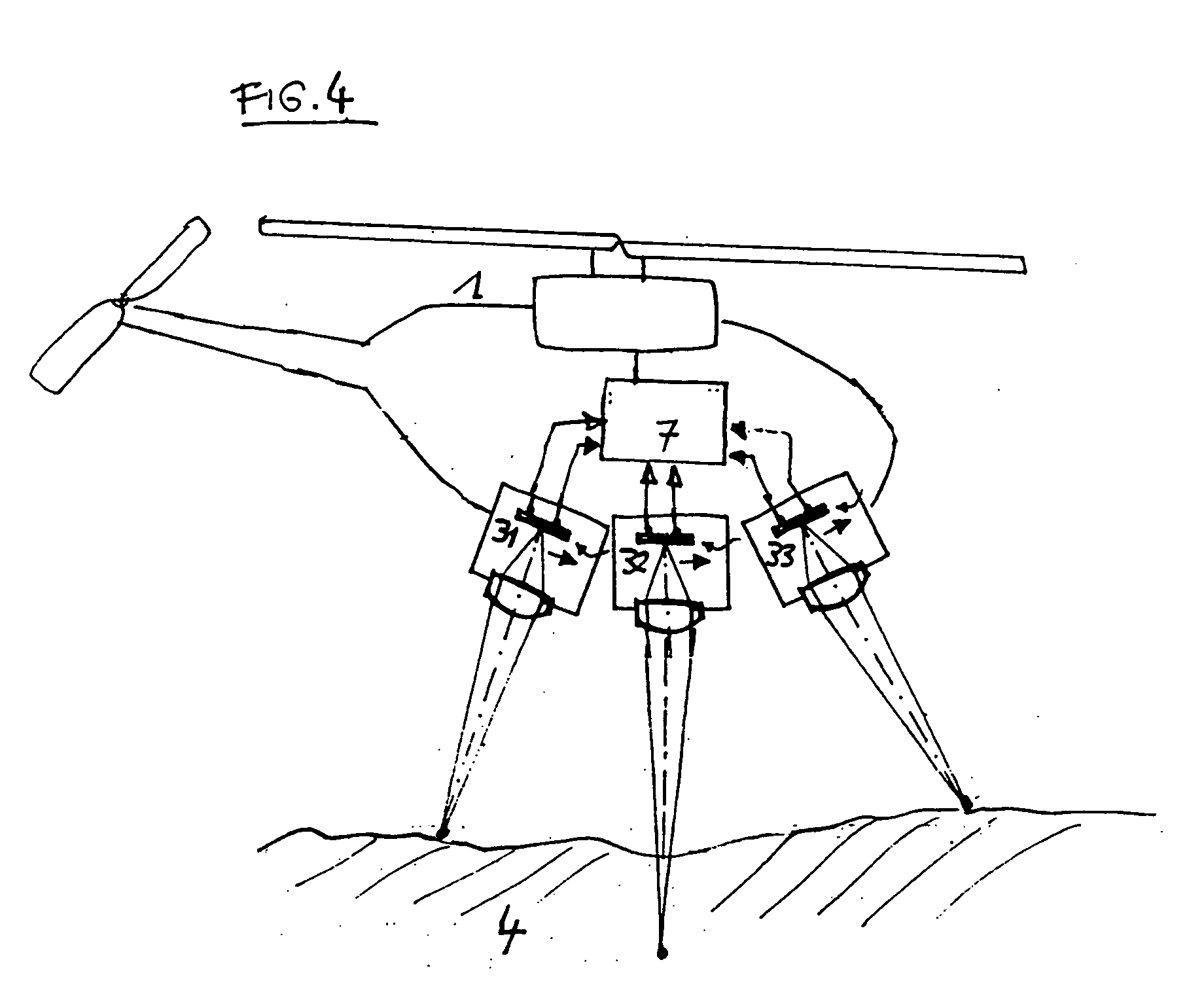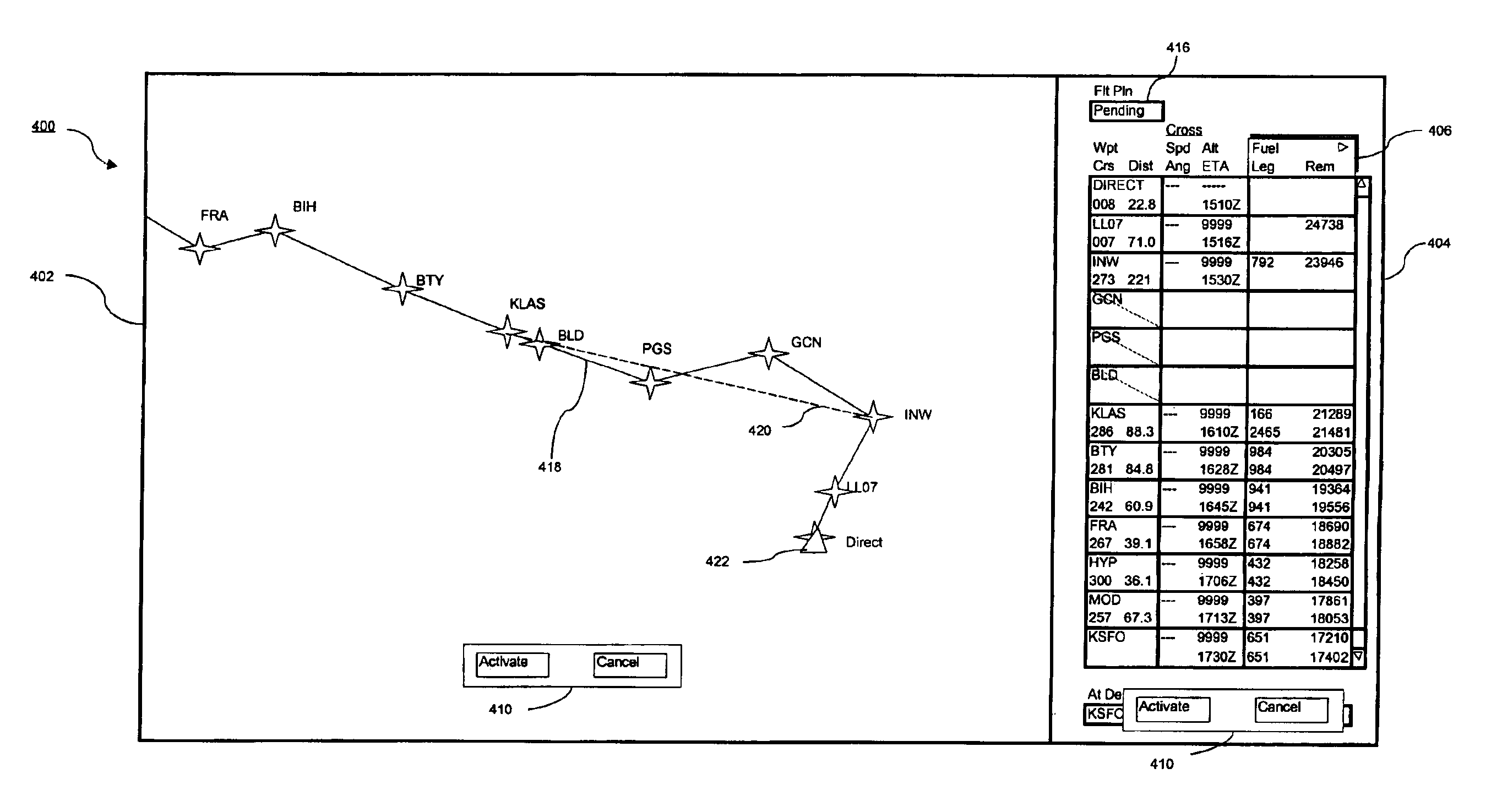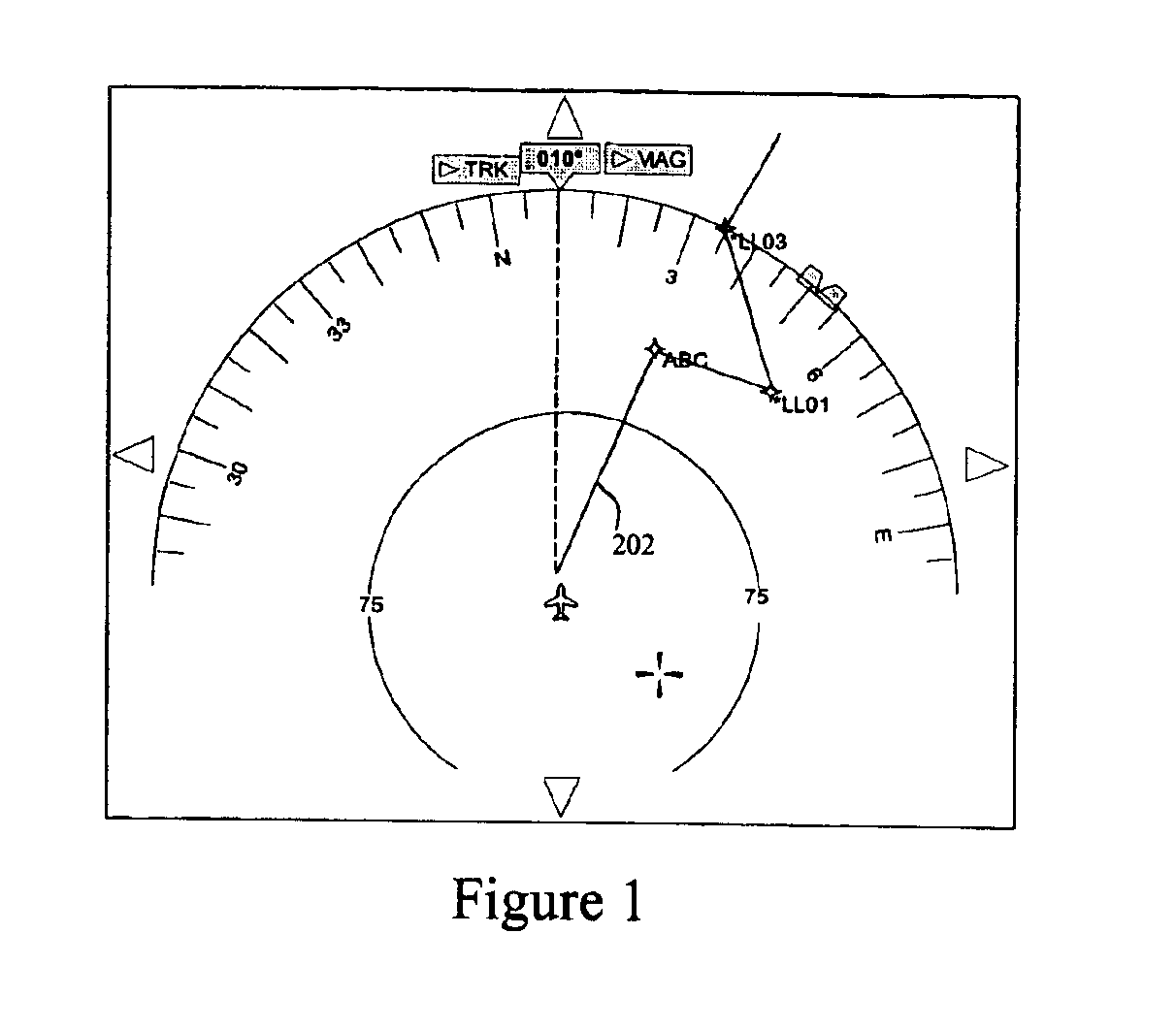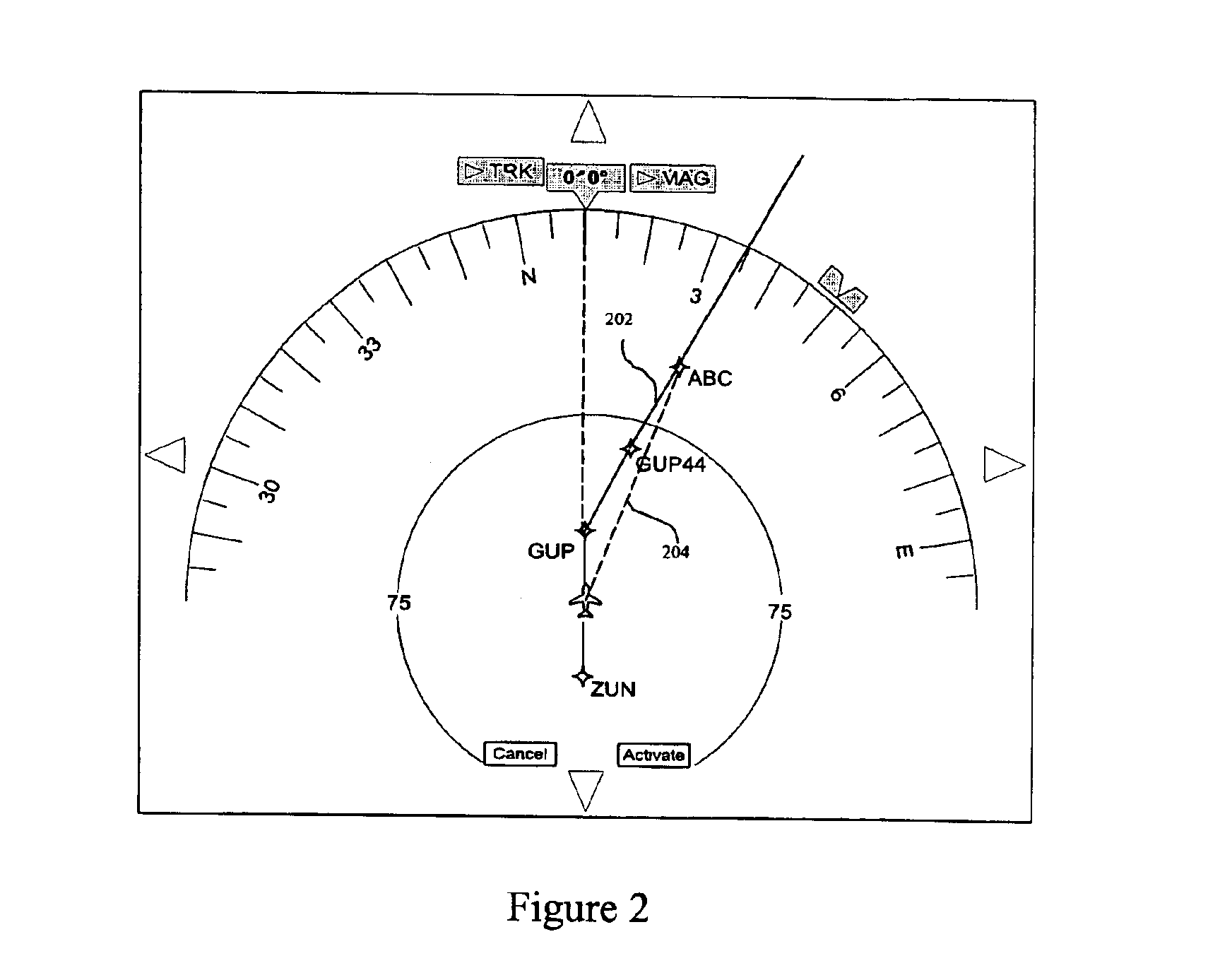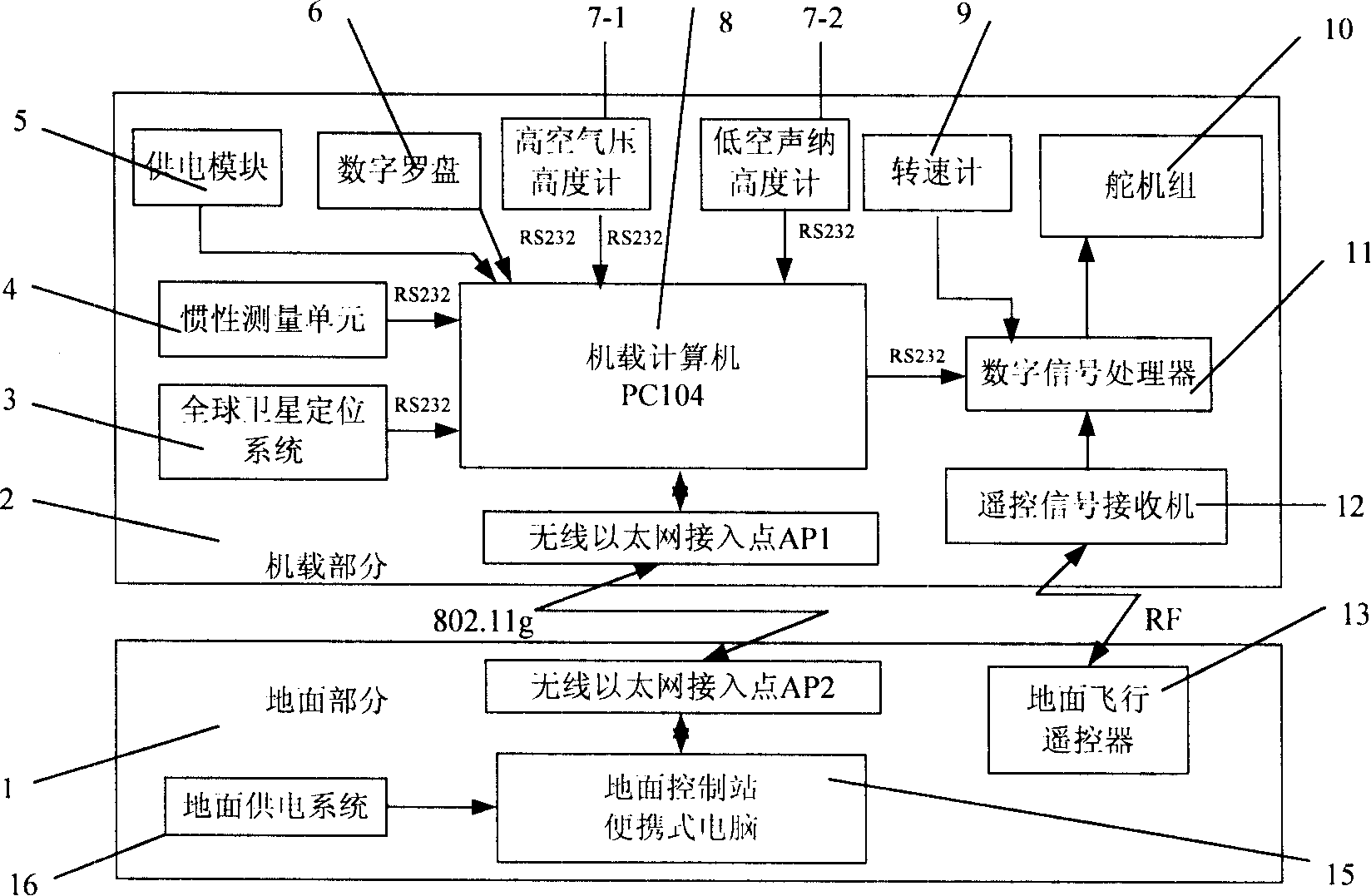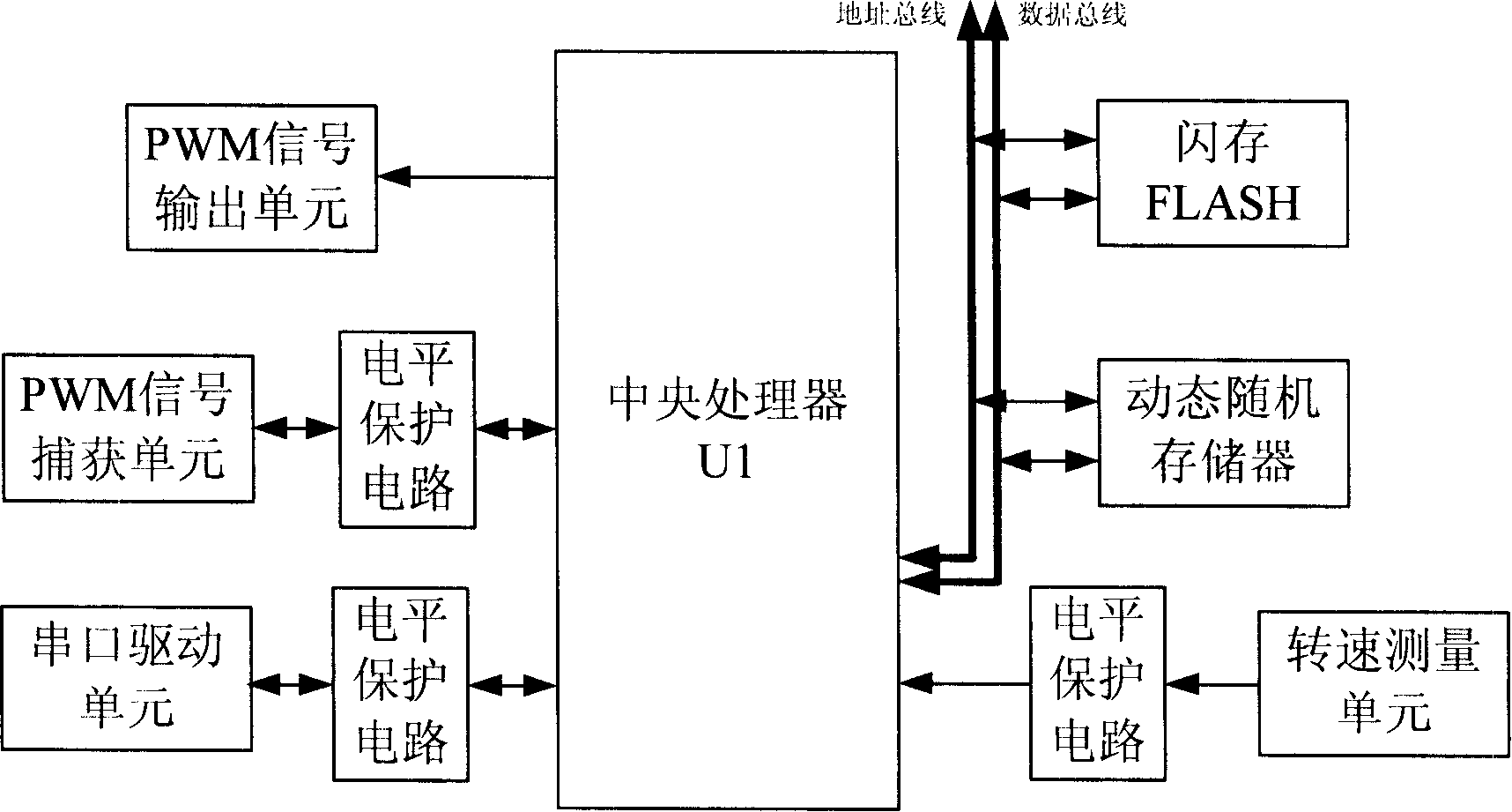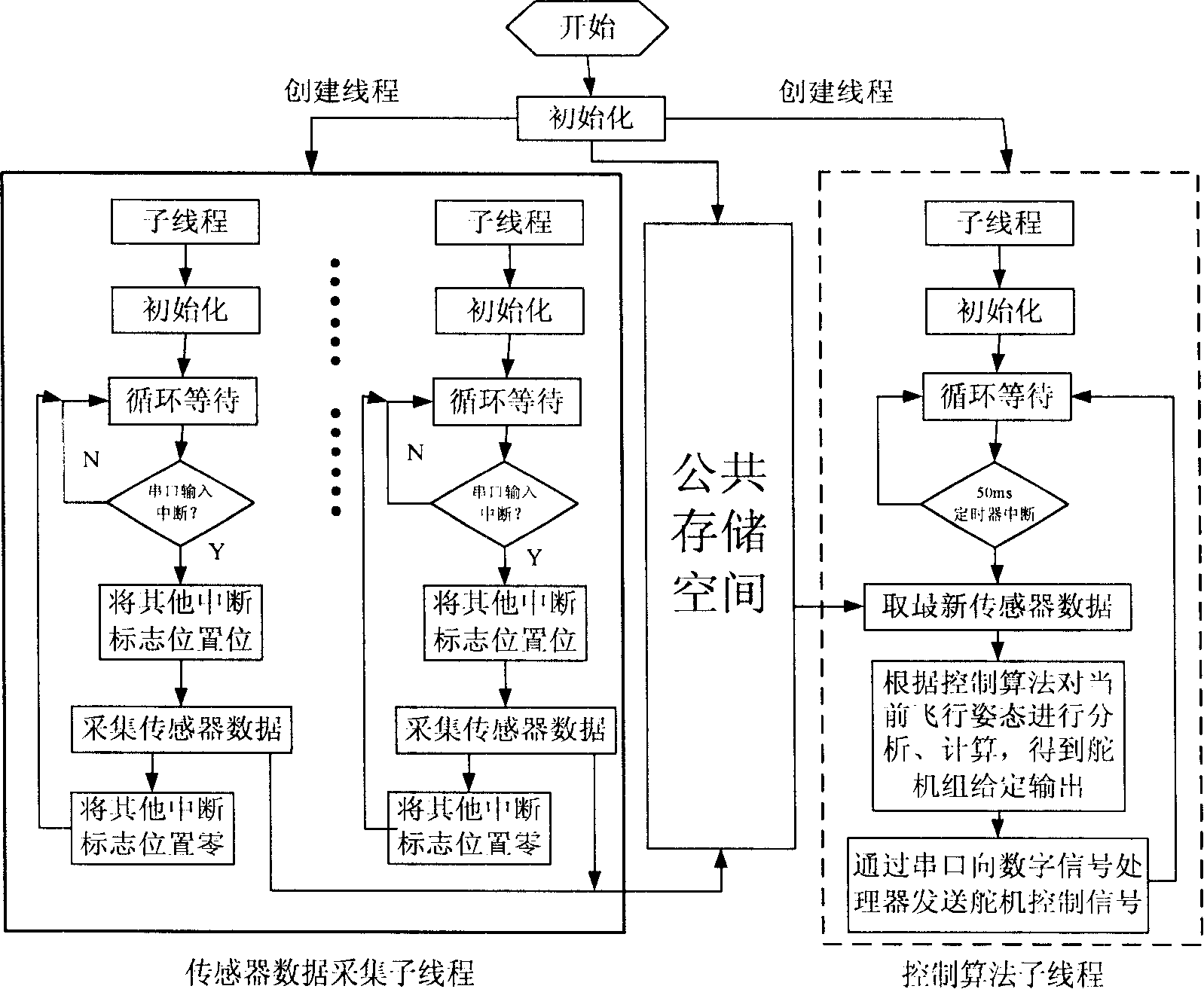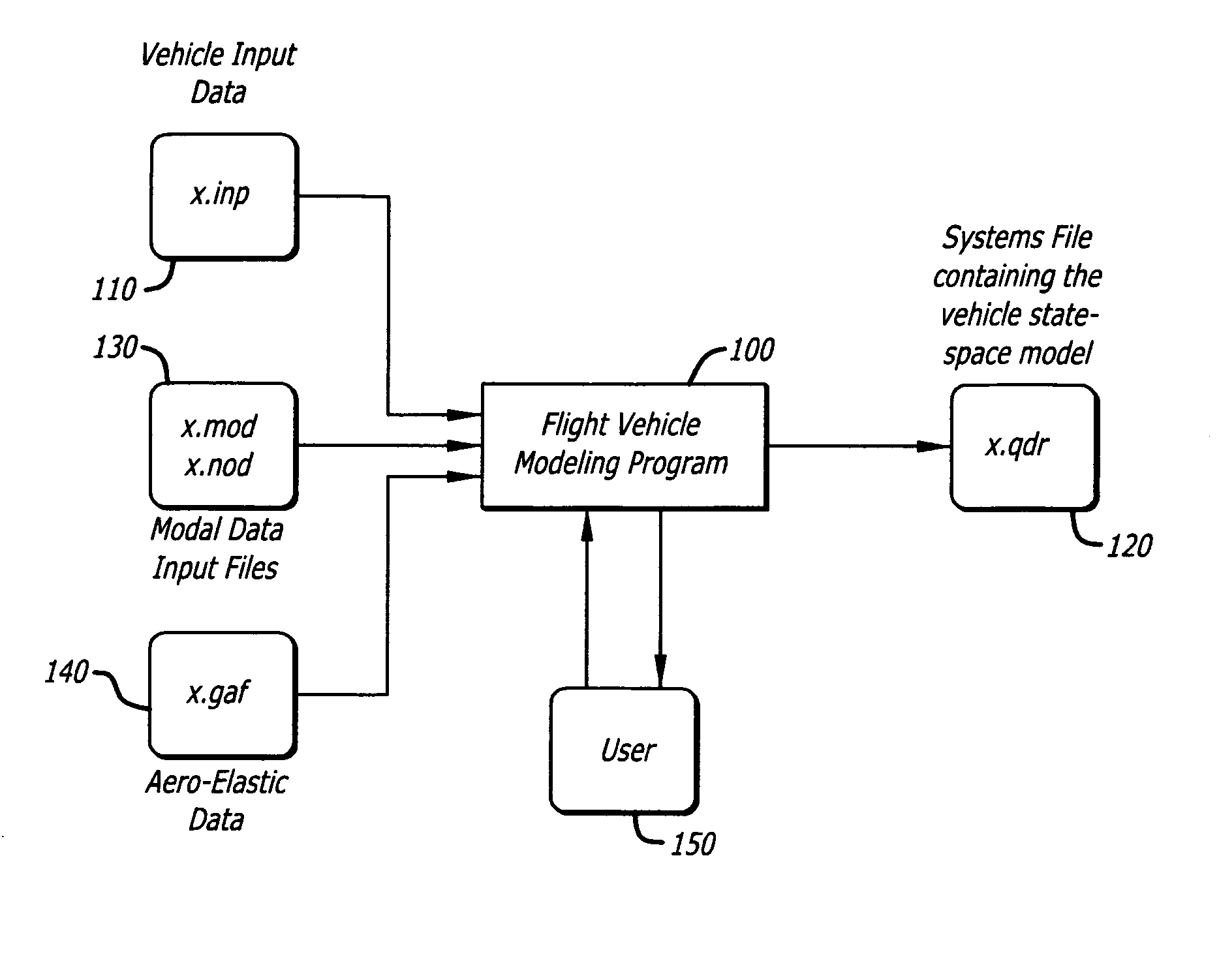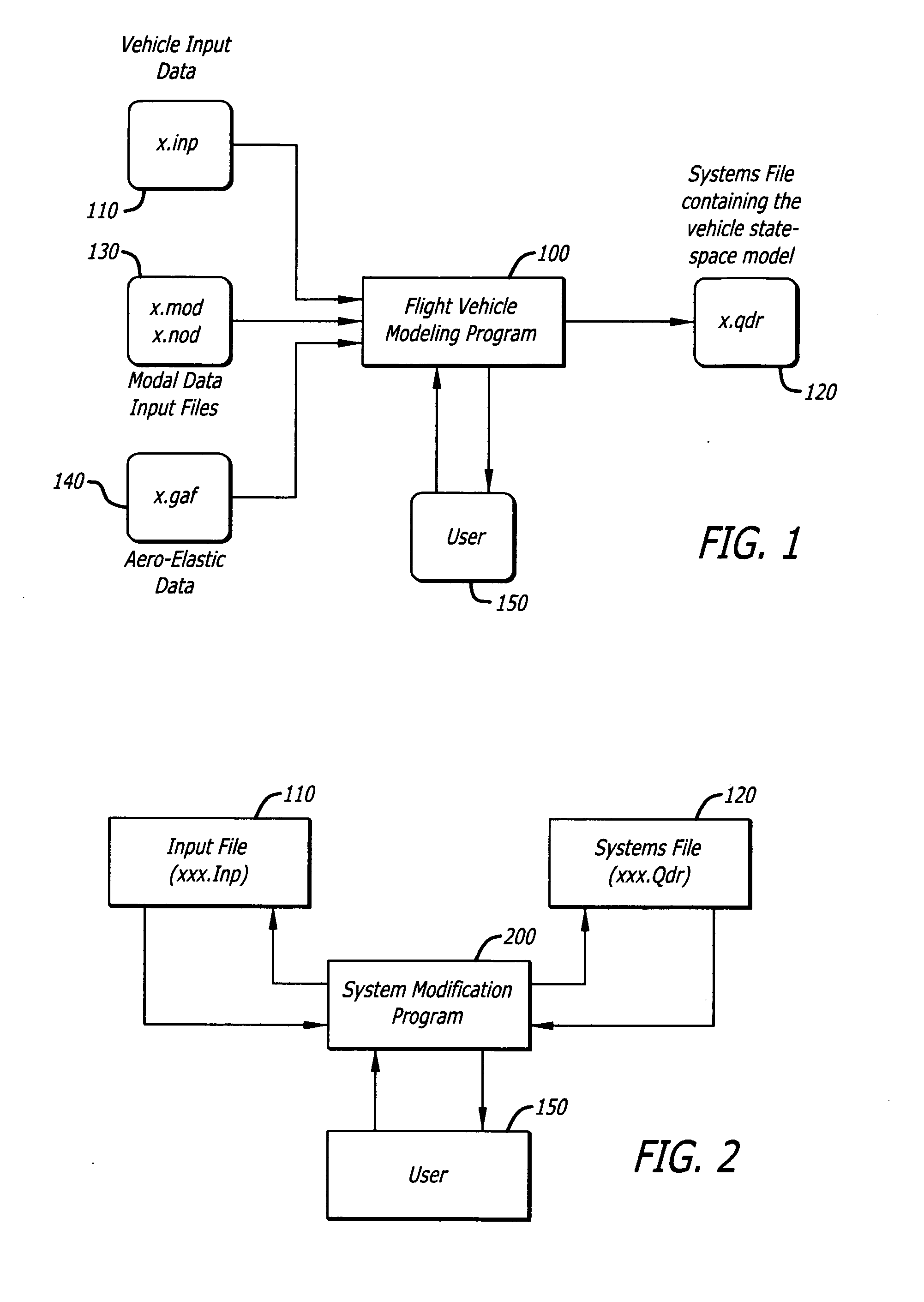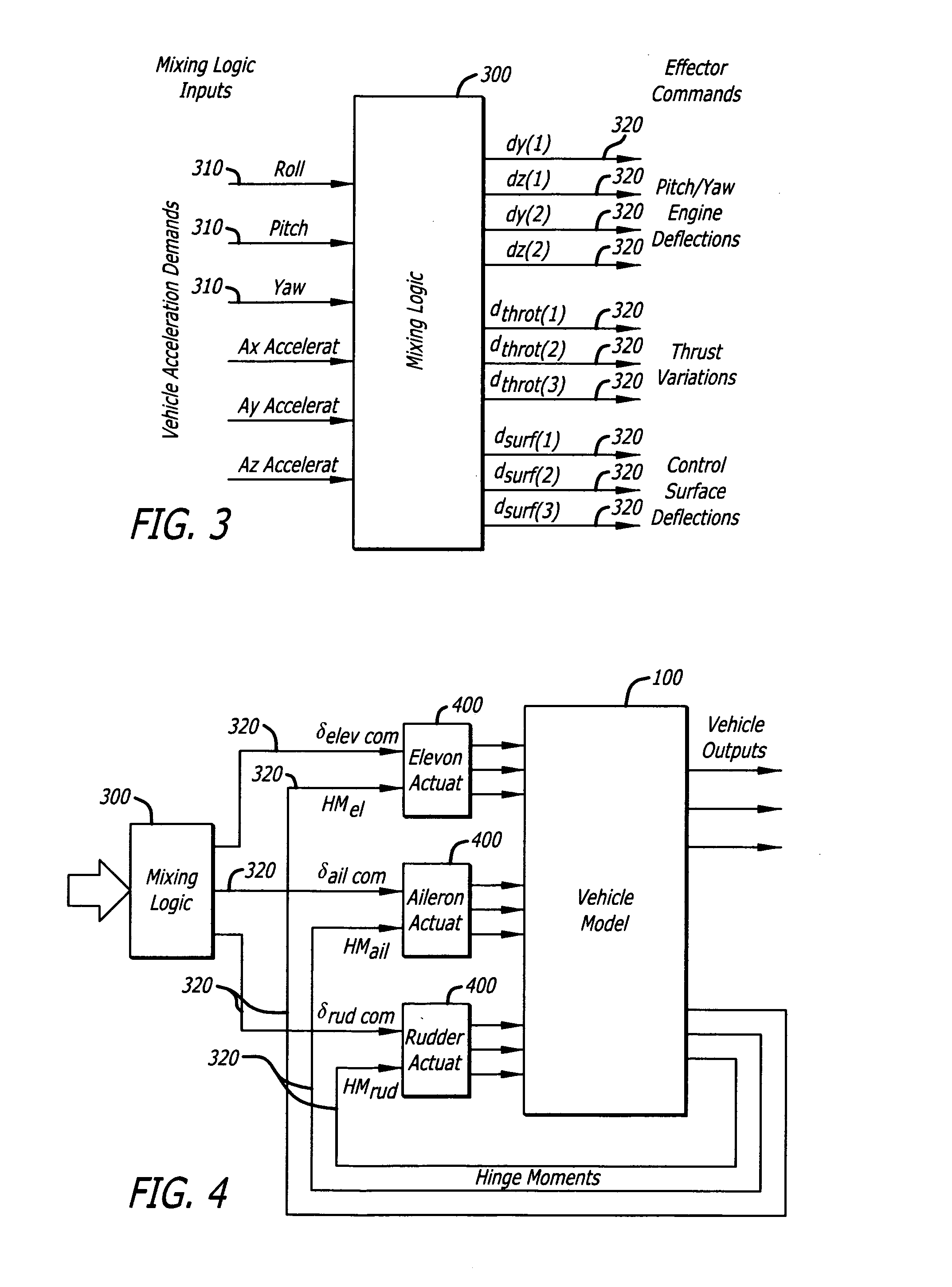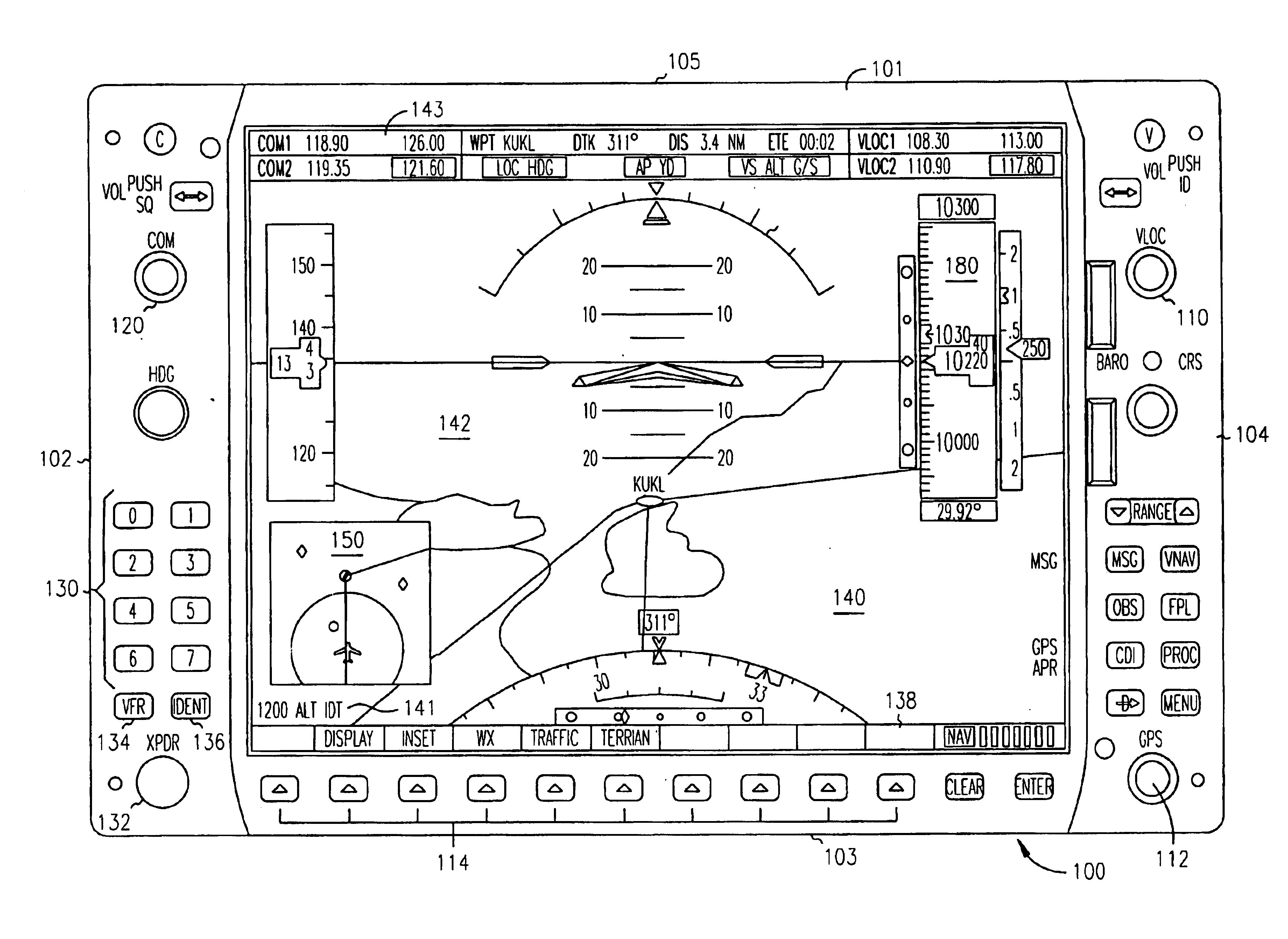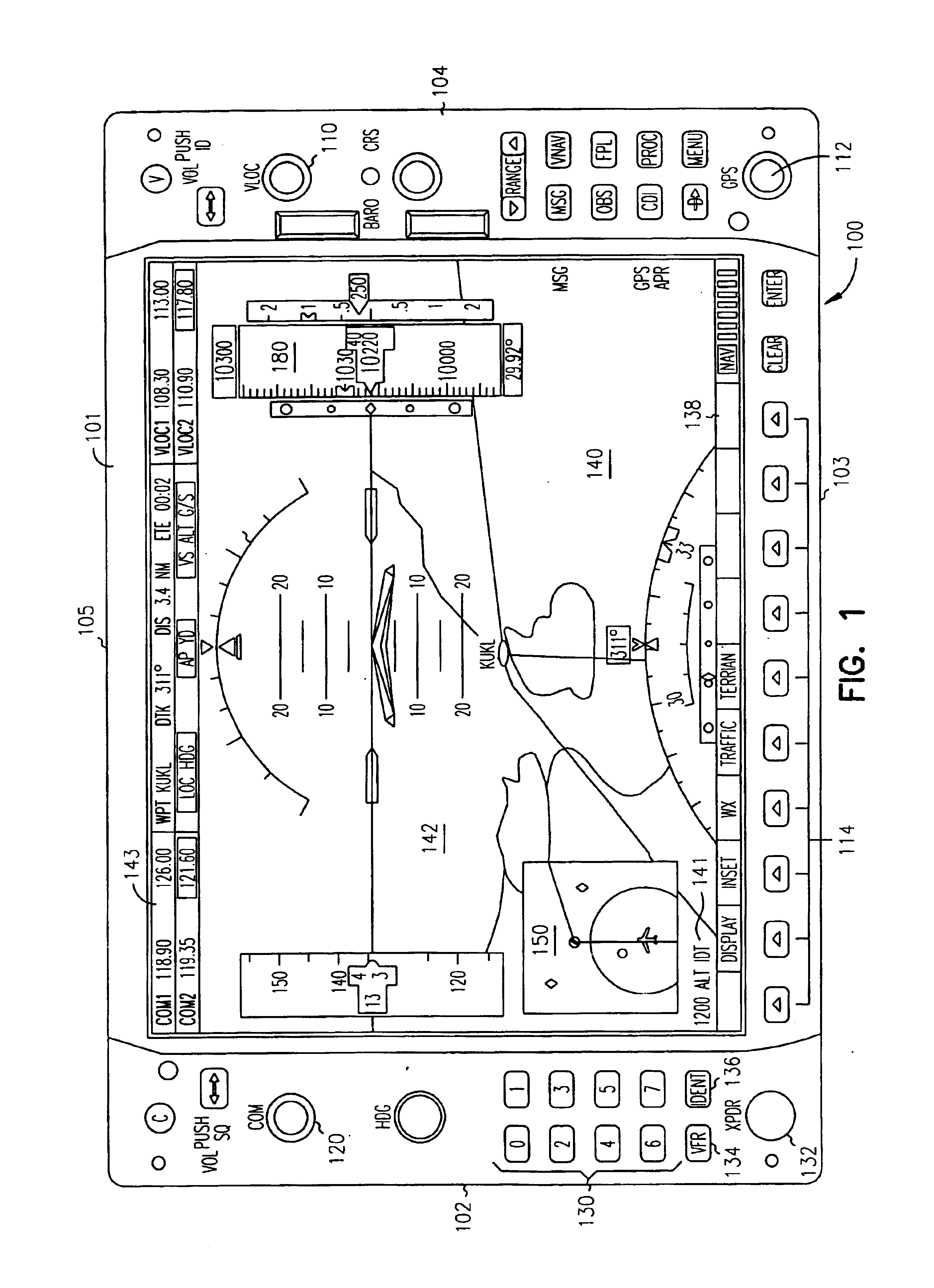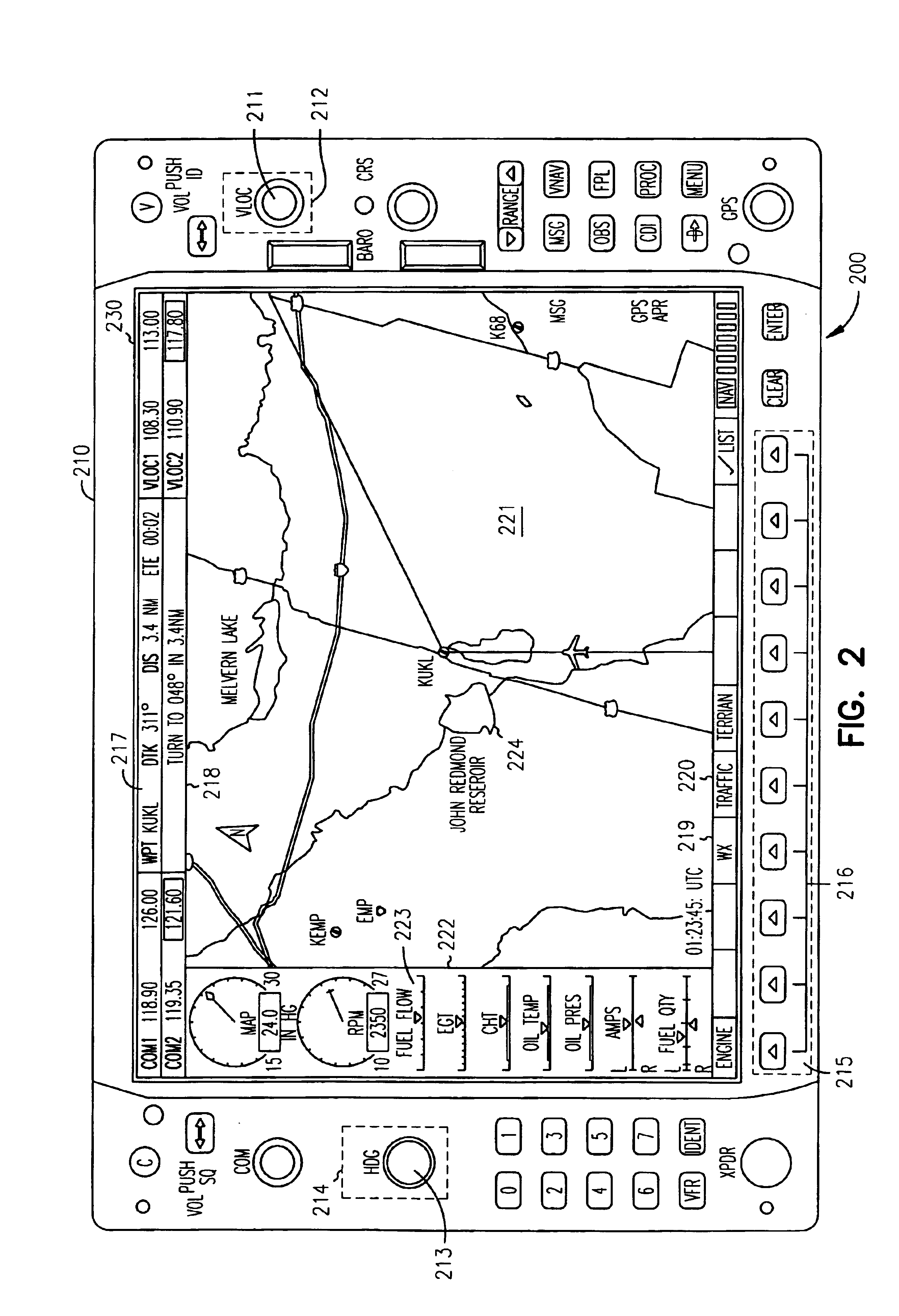Patents
Literature
7484results about "Attitude control" patented technology
Efficacy Topic
Property
Owner
Technical Advancement
Application Domain
Technology Topic
Technology Field Word
Patent Country/Region
Patent Type
Patent Status
Application Year
Inventor
Cockpit instrument panel systems and methods with redundant flight data display
InactiveUS6842672B1Better backupEffective presentationAircraft controlAnalogue computers for trafficData displayDisplay device
Systems and methods are provided for integrated control, access, and presentation of flight information within the cockpit. Cockpit instrument systems and methods are provided which include a first cockpit instrument panel which has a first display proximately located to a first bezel. The first display is operable to present navigational data, communication data, and flight information data including airspeed, attitude, and altitude. The systems and methods further include a second cockpit instrument panel located adjacent to the first cockpit instrument panel. The second cockpit instrument panel has a second display proximately located to a second bezel. The second display is operable to present navigational data, communication data, and flight information data including detailed engine parameters. When either the first or the second cockpit instrument panel fails, the remaining functional, first or second display, is adapted to provide all of the important flight information data, including airspeed, attitude, altitude, and detailed engine parameters.
Owner:GARMIN INT
Robot and attitude control method of robot
ActiveUS20050113973A1Maintain stabilityStable controlProgramme-controlled manipulatorDigital dataRobotic systemsAttitude control
The motion of the movable sections of the robot is taken for a periodic motion so that the attitude of the robot can be stably controlled in a broad sense of the word by regulating the transfer of the movable sections. More specifically, one or more than one phase generators are used for the robot system and one of the plurality of controllers is selected depending on the generated phase. Then, the controller controls the drive of the movable sections according to continuous phase information. Additionally, the actual phase is estimated from the physical system and the frequency and the phase of the phase generator are regulated by using the estimated value, while the physical phase and the phase generator of the robot system are subjected to mutual entrainment so that consequently, it is possible to control the motion of the robot by effectively using the dynamics of the robot.
Owner:SONY CORP +1
Cockpit instrument panel systems and methods with redundant flight data display
InactiveUS6985801B1Better backupEffective presentationAnalogue computers for trafficNavigation instrumentsData displayDisplay device
Owner:GARMIN INT
Holonomic platform for a robot
InactiveUS6888333B2Programme-controlled manipulatorComputer controlMechanical engineeringRobot locomotion
A robot that includes a plurality of roller assemblies. Each roller assembly may include a transmission roller that is spun by a drive mechanism to rotate a drive ball. Rotation of the drive ball propels the robot across a surface. The transmission roller is in continuous contact with the drive ball. Continuous contact between the roller and ball eliminates roller induced wobble in the robot movement, reduces impact forces and resultant stress within the roller assembly and allows for the use of a drive ball that is more complaint than balls in the prior art.
Owner:JONATA SUB TWO INC +1
Three-dimension imaging lidar
This invention is directed to a 3-dimensional imaging lidar, which utilizes modest power kHz rate lasers, array detectors, photon-counting multi-channel timing receivers, and dual wedge optical scanners with transmitter point-ahead correction to provide contiguous high spatial resolution mapping of surface features including ground, water, man-made objects, vegetation and submerged surfaces from an aircraft or a spacecraft.
Owner:UNITED STATES OF AMERICA AS REPRESENTED BY THE ADMINISTATOR OF THE NAT AERONAUTICS SPACE ADMINISTATION
Systems and applications of lighter-than-air (LTA) platforms
InactiveUS7356390B2Large costLarge deploymentDigital data processing detailsPosition fixationGeolocationEngineering
Innovative new methods in connection with lighter-than-air (LTA) free floating platforms, of facilitating legal transmitter operation, platform flight termination when appropriate, environmentally acceptable landing, and recovery of these devices are provided. The new systems and methods relate to rise rate control, geo-location from a LTA platform including landed payload and ground-based vehicle locations, and steerable recovery systems.
Owner:SPACE DATA CORP
Systems and methods for detecting and managing the unauthorized use of an unmanned aircraft
ActiveUS20120022719A1Direct controlTransmission systemsAssess restrictionUnmanned spacecraftAirplane
A method for policing and managing the operation of a flying, unmanned aircraft in the event of usurpation of control of, malfunction of, or ill-intentioned use of, this aircraft includes the steps of (a) detecting inappropriate operation of the aircraft; (b) transmitting a takeover command to the aircraft to interrupt control of the operation of this aircraft by a first pilot and relinquish control of the aircraft to a second pilot; and (c) transmitting control commands to the aircraft to control its operation by the second pilot, until the need for alternate pilot control of the aircraft has ended or until the aircraft has landed safely.
Owner:MATOS JEFFREY A
Control system providing perspective flight guidance
InactiveUS7010398B2Limit intervisibilityInstruments for road network navigationAnalogue computers for trafficGuidance systemTerrain
A flight guidance system providing perspective flight guidance symbology using positioning and terrain information provides increased pilot situational awareness of the pilot's aircraft. The guidance system uses a positioning system and a detailed mapping system to provide a perspective display for use in an aircraft. A precision pathway flight guidance (PFG) symbology set is thereby displayed on a pilot display. The PFG symbology set includes broken line symbols representing an open tunnel and providing flow field data, a half-bracket symbol to indicate that the aircraft is no longer in the open tunnel represented by the broken line symbols and a quickened flight path vector (QFPV) symbol to provide the pilot with predictive flight path information. A flight director system and tunnel generator component provide for updating the displayed PDFG symbology set based upon current aircraft conditions (e.g., aircraft position) and stored flight path information.
Owner:THE BOEING CO
Method for safe operation of mobile phone in a car environment
InactiveUS7697917B2Unauthorised/fraudulent call preventionDigital data processing detailsMobile vehicleSafe operation
Owner:SONY ERICSSON MOBILE COMM AB
Transformer station inspection tour robot positioning navigation system and method
ActiveCN104914865APrecise positioningGuaranteed real-timeNavigational calculation instrumentsData visualisationLaser rangingTransformer
The invention discloses a transformer station inspection tour robot positioning navigation system and a method. Confidence obtained by a laser range finding module and a dead reckoning module is outputted to a map creation module and a pose resolving module; the map creation module creates a laser road sign map and a laser grid map which show a robot operation environment and are inputted into a map storage module for storage; the posture resolving module utilizes map data in the map storage module and output data of the dead reckoning module to perform real-time calculation on the current position and the posture of the robot and accesses the obtained posture data into a path planning module and a motion control module; the path planning module generates robot operation path data which is outputted to the motion control module; the motion control module generates motion control quantity according to the current position and posture data of the robot and the path planning data, and then is driven to execute by a motor. The transformer station inspection tour robot positioning navigation system realizes the accuracy positioning of the inspection tour robot in the transformer station.
Owner:STATE GRID INTELLIGENCE TECH CO LTD
Systems and methods for generating user specified information from a map
ActiveUS7561169B2Instruments for road network navigationDigital data processing detailsComputer scienceAlgorithm
Owner:GEO SOFTWORKS
Airborne inventory and inspection system and apparatus
InactiveUS7184072B1Enhance the photos being takenDigital data processing detailsPicture taking arrangementsElectric power transmissionLongitude
A system and apparatus for acquiring images of electric transmission line tower structures, equipment attached to said tower structures, and transmission lines suspended from said towers. The system uses a fixed wing aircraft and an arrangement of at least one still camera, means for detecting a tower structure, a data storage unit, and a central processing unit containing operational software. The central processing unit is connected to the camera, the means for detecting a tower structure, and the storage unit. The detection means is a laser altimeter or a combination of preset longitude / latitude coordinates for tower locations and a GPS unit which supplies continuous longitude / latitude coordinates for the aircraft location for comparison to those preset coordinates. The aircraft is flown along the transmission line at a predetermined altitude above the tops of said towers (60–100 feet). The still camera points rearwardly relative to the line of flight of the aircraft and take a picture from between two adjacent towers and along an exposure line directed downwardly at an angle to the line of flight, 30–60 degrees and preferably 45 degrees. The detecting means transmits a signal to the central processing indicative of the presence of a tower to be photographed. The central processing unit calculates the time delay necessary for said aircraft to fly past the tower to a predetermined exposure point located between the tower to be photographed and the next tower in said transmission line after the tower to be photographed. The still camera is activated at the exposure point to acquire an image of the tower structure. The data corresponding to the acquired image is transmitted to a data storage unit for later retrieval and examination to identify defects in the tower or the equipment or transmission lines suspended form the tower. The system is reset to continue acquiring images along the transmission lines. The system is also provided with a video capability to film the towers and transmission lines and the line right-of-way.
Owner:POWER VIEW COMPANY L L C
Laser range finder closed-loop pointing technology of relative navigation, attitude determination, pointing and tracking for spacecraft rendezvous
InactiveUS20050060092A1Improved functionality and precisionImprove ObservabilityInstruments for road network navigationCosmonautic vehiclesGyroscopeClosed loop
A closed-loop LRF pointing technology to measure the range of a target satellite from a chaser satellite for rendezvous is provided that includes several component technologies: LOS angle measurements of the target satellite on a visible sensor focal plane and the angles' relationships with the relative position of the target in inertial or LVLH frame, a relative navigation Kalman filter, attitude determination of the visible sensor with gyros, star trackers and a Kalman filter, pointing and rate commands for tracking the target, and an attitude controller. An analytical, steady-state, three-axis, six-state Kalman filter is provided for attitude determination. The system and its component technologies provide improved functionality and precision for relative navigation, attitude determination, pointing, and tracking for rendezvous. Kalman filters are designed specifically for the architecture of the closed-loop system to allow for pointing the laser rangefinder to a target even if a visible sensor, a laser rangefinder, gyros and a star tracker are misaligned and the LOS angle measurements from the visible sensor are interrupted.
Owner:THE BOEING CO
Mobile application builder
ActiveUS7184801B2Digital data processing detailsSpecial service for subscribersApplication procedureApplication software
A method and system which allow a user to define and edit workflow applications for a mobile device, screens associated with the applications, and workflow process is described. The states or schemas for these applications may be stored as records in databases.
Owner:MALIKIE INNOVATIONS LTD
Multiple rotors aircraft and control method
ActiveUS20170153650A1Fast and stable and robust effectEasy to controlUnmanned aerial vehiclesRemote controlled aircraftFlight vehicleControl theory
A multiple rotors aircraft and a control method thereof are provided. The control method comprises the following steps. First, current motion information of the multiple rotors aircraft is obtained. Then, at least one control gain is adjusted through a gain adjustment function according to the current motion information. The gain adjustment function conforms to a non-Lipschitzian characteristic, and at least one rotor of the multiple rotors aircraft is controlled according to the control gain. Therefore, the multiple rotors aircraft would be ensured that its flight attitude is toward a target position, and the expected result would be conformed rapidly.
Owner:METAL INDS RES & DEV CENT
Unmanned aerial vehicle course generation method and system
ActiveCN104035446AReduce human flight operation timeAvoid blindnessAttitude controlFlight heightUncrewed vehicle
The invention discloses an unmanned aerial vehicle course generation method which includes the following steps: conducting view finding and flying in advance, recording flight waypoints which include location data and flight height information of an unmanned aerial vehicle; receiving and recording the flight waypoints of the unmanned aerial vehicle; generating a flight track according to the flight waypoints of the view finding and flying; compiling the flight track to obtain a new flight track; transmitting the complied flight track to the unmanned aerial vehicle to enable the unmanned aerial vehicle to fly according to the new flight track. An unmanned aerial vehicle course generation system is further provided.
Owner:SZ DJI TECH CO LTD
Robot device , legged locomotion robot operation control device and operation control method, legged locomotion robot sensor system, and locomotion device
ActiveUS20050240307A1Improve accuracyStrict controlComputer controlSimulator controlObject pointControl theory
The lumbar part of a robot as a controlled-object point where the mass is moved to the largest extent is set as the origin of a local coordinate, an acceleration sensor is disposed at the controlled-object point to directly measure the attitude and acceleration at that position to control the robot to take a stable posture on the basis of a ZMP. Further, at each foot which touches the walking surface, there are provided a floor reaction force sensor and acceleration sensor to directly measure a ZMP and force, and a ZMP equation is formulated directly at the foot nearest to a ZMP position. Thus there can be implemented a stricter and quick control of the robot for a stable posture.
Owner:SONY CORP +1
Enhanced vertical situation display
ActiveUS20060004496A1Analogue computers for vehiclesAnalogue computers for trafficTerrainFlight vehicle
A vertical situation display system for use in a vehicle such as, for example, an aircraft, is provided. A side view of an intended route of flight may be shown with altitude restrictions, airspace and instrument approach information, a projected flight path and range to airspeed symbol. The system may show terrain, weather, and traffic information along the intended route of flight. The system may be used in conjunction with a navigational display to enhance situational awareness. The system includes a computer, an electronic display device, an electronic entry device, a memory and a database. The database may contain terrain, airspace and flight planning data and may be updatable.
Owner:THE BOEING CO
System, method and apparatus for organizing groups of self-configurable mobile robotic agents in a multi-robotic system
InactiveUS6904335B2Severe resource restrictionComplex behaviorProgramme-controlled manipulatorAutonomous decision making processRobotic systemsMultirobot systems
A system of self-organizing mobile robotic agents (MRAs) in a multi-robotic system (MRS) is disclosed. MRAs cooperate, learn and interact with the environment. The system uses various AI technologies including genetic algorithms, genetic programming and evolving artificial neural networks to develop emergent dynamic behaviors. The collective behaviors of autonomous intelligent robotic agents are applied to numerous applications. The system uses hybrid control architectures. The system also develops dynamic coalitions of groups of autonomous MRAs for formation and reformation in order to perform complex tasks.
Owner:SOLOMON RES
Aircraft Traffic Separation System
ActiveUS20120209457A1Maintain standardAnalogue computers for vehiclesCosmonautic vehiclesClosest pointEngineering
A method and apparatus for managing separation between vehicles. A closest point of approach between a first vehicle traveling along a first path and a second vehicle traveling along a second path is predicted. A number of compensation commands for altering the first path of the first vehicle are generated using the closest point of approach and a desired level of separation between the first vehicle and the second vehicle. The number of compensation commands is integrated with a number of control commands for the first vehicle to form a final number of control commands configured to maneuver the first vehicle to substantially maintain the desired level of separation between the first vehicle and the second vehicle. A response of the first vehicle to the final number of control commands is a desired response.
Owner:THE BOEING CO
Control method of two-wheeled self-balance vehicle
InactiveCN103529850AShort correction timeShorten the timeAttitude controlMotorcyclesMotor speedAccelerometer
A control method of a two-wheeled self-balance vehicle comprises the steps as follows: (1), performing initialization: (2), reading values of a gyroscope, an accelerometer and a rotation angle sensor as well as the pulse number of an encoder respectively; (3), obtaining a vehicle body inclination, a handlebar turning angle, motor speeds and a vehicle speed; (4), then calculating PWM (pulse width modulation) values of vertical control, direction control and speed control respectively through a PID (proportion integration differentiation) control algorithm; (5), superposing the three PWM values together and outputting the three PWM values to left and right motors; (6), then sending data of the gyroscope, the accelerometer, the vehicle body inclination, a battery voltage, motor currents and the vehicle speed to an upper computer so as to monitor the operating status of the whole vehicle; (7), when the battery voltage is monitored to be smaller than a preset value, and the motor currents or the vehicle speed is monitored to be larger than the preset value through monitoring, turning on corresponding LED warning lights; and (8), when the vehicle body inclination is larger than a preset angle through monitoring when the vehicle body inclination is monitored to be larger than a preset angle, determining that the vehicle body falls down, stopping the operation and returning to an initializer. According to the control method, a more accurate operational method is adopted.
Owner:GUANGZHOU COLLEGE OF SOUTH CHINA UNIV OF TECH
Flying apparatus for aerial agricultural application
InactiveUS20130068892A1High of controlHigh degree of freedomUnmanned aerial vehiclesDigital data processing detailsMicrocontrollerControl signal
A remotely controlled flying apparatus (200) utilized for crop-spraying and crop monitoring purposes is disclosed. The present indention comprises a microcontroller (110) electronically coupled to an inertia measuring means (120). A controller (140) is connected to a computer (130) to allow a user to control movements of the flying apparatus (200). The computer (130) interprets control motions of the controller (140) and translates the motions to control signals. Upon translation, control signals are sent to the microcontroller (110) wirelessly and the control signals are modulated by a pulse modulation generator (150) before they are sent to a plurality of speed controllers (160a-160d) which are coupled to a plurality of motors (170a-! 70d). The controller (140) allows the user to control the motions of the flying apparatus remote! }, by changing respective rotational speeds of the plurality of motors (170a-170d). The controller (140) also allows the user to wirelessly control a pump (180) or a camera (190) or both through the computer (130) for spraying a pesticide or fertilizer fluid—when necessary or for crop monitoring purposes.
Owner:UNIVERSITI MALAYSIA PERLIS
Unmanned Airborne Vehicle For Geophysical Surveying
InactiveUS20080125920A1Low costEasy mappingAircraft componentsAnalogue computers for vehiclesAviationData acquisition
An un-manned airborne vehicle (UAV), for acquiring aeromagnetic data for geophysical surveying at low altitude on land or over water, comprising an extended fuselage that is adapted to hold and maintain magnetometer and a magnetic compensation magnetometer at a minimum distance from the avionics and propulsion systems of the UAV. The magnetometer measures magnetic anomalies and the magnetic compensation magnetometer measures magnetic responses corresponding to the pitch, yaw and roll of the UAV. A data acquisition system stores and removes the magnetic response measurements from the magnetic anomaly measurements. The data acquisition system also stores a survey flight plan and transmits the same to the avionics system. The generator of the UAV is shielded and the propulsion system is stabilized to reduce magnetic and vibrational noises that can interfere with the operation of the magnetometer.
Owner:FUGRO AIRBORNE SURVEYS
Enhanced flight control systems and methods for a jet powered tri-mode aircraft
ActiveUS6885917B2Easy to operateIncreases flight envelopeAircraft navigation controlDigital data processing detailsForward speedFixed wing
A method of stabilizing a jet-powered tri-mode aircraft as the aircraft travels in a helicopter mode, a compound mode, and a fixed-wing mode is disclosed. The method includes receiving a plurality of velocity vector component values and velocity vector commands derived from either (1) a number of pilot operated controllers or (2) a commanded array of waypoints, which are used for fully automated flights, and a rotor speed reference value, which is decreased with increasing forward speed to unload the rotor, thereby permitting conditions for stopping the rotor in flight. Stabilization of the commanded velocity vector is achieved in all modes of flight using blended combinations of rotor swashplate controls and aerodynamic controls such as elevons, canards, rudders, and a horizontal tail. Stabilization to the commanded velocity vector includes a plurality of control constraints applied to the pilot stick controllers that prevent penetration of envelope limits.
Owner:THE BOEING CO
Display of altitude and path capture trajectories
InactiveUS6870490B2Easy to understandAnalogue computers for vehiclesAnalogue computers for trafficPilot systemDisplay device
Pilot error is reduced and auto pilot operation is improved by the addition of capture information to the information provided on a cockpit display. The capture information, such as, for example, capture start point, last point to initiate capture, trajectory during capture, and capture overshoot region provide information to the pilot regarding the correct initiation of capture. Pilots are therefore better able to evaluate the ongoing performance of the automation or auto pilot systems and to trust that the auto pilot is functioning as desired. Furthermore, the pilot operating the aircraft in manual mode receives guidance based on this information to better know when to initiate capture of the assigned altitude or vertical path.
Owner:HONEYWELL INT INC
Optical sensing system and system for stabilizing machine-controllable vehicles
ActiveUS20050165517A1Stabilising flight movementAvoiding undesirable fluctuationDigital data processing detailsPosition fixationAutomatic controlEngineering
In order to measure the movement of a vehicle, especially an aircraft, an imaging optical system 2 which is to be positioned on the vehicle is used to detect an image of the environment 4, and an optoelectronic shift sensor 3 chip of the type comprising an inherent evaluation unit is used to measure any shift of the image from structures thereof. The shift sensor is equal or similar to the sensor used on an optical mouse. The sensor is positioned in such a way that infinite objects are focused. The measuring signal is evaluated to indicate movements and / or the position of the aircraft. The inventive system can also be used to measure distances e.g. in order to control the flight altitude. The invention further relates to methods for automatically controlling particularly a hovering flight by means of a control loop using optical flow measurement.
Owner:IRON BIRD LLC
System and method for textually displaying an original flight plan and a modified flight plan simultaneously
A navigational system includes a display device and logic that simultaneously presents a textual display of an original flight plan and a modified flight plan on the display device. The textual display includes a textlist of waypoints that are on the original flight plan and the modified flight plan and performance data for common waypoints that are on both the original flight plan and the modified flight plan, as well as for new waypoints that are added to the modified flight plan. The performance data for each common waypoint includes performance data for the waypoint on the original flight plan and for the waypoint on the modified flight plan. The system may further include an interface device that allows an operator to change the modified flight plan. The logic updates the textlist of waypoints on the textual display when the modified flight plan is changed and updates the performance data on the textual display for common waypoints when the modified flight plan is changed. The logic may also designate on the textual display waypoints to be removed, which correspond to waypoints that are on the original flight plan but not on the modified flight plan, and, when the modified flight plan is activated to become a new flight plan, the logic removes from the textual display the waypoints that are designated to be removed.
Owner:HONEYWELL INT INC
Small-sized depopulated helicopter independent flight control system
ActiveCN101192064ARealize fully autonomous flight capabilityImprove reliabilityAttitude controlTotal factory controlControl signalOn board
The invention relates to a miniature unmanned helicopter auto flight control system which comprises an on-board control system, wherein, an on-board computer gets signals from sensors through a serial port, and exchanges data with a ground-based computer through on-board and ground wireless Ethernet access points; the on-board computer carries out serial communication with a digital signal processor to control a steering engine set of the unmanned helicopter; a remote control signal receiver outputs to the digital signal processor and then is connected with the on-board computer through a serial port, and an auto control signal and a ground remote control signal are accumulated to get a current steering engine control signal. And the auto flight control system also comprises a ground control system, wherein, the ground-based computer transmits flight control instructions to the on-board computer and receives and records flight data; through operating a ground helicopter remote controller, manual control instructions can be transmitted to the on-board remote control signal receiver via wireless radio frequency signals. The invention can improve the auto flight ability of the miniature unmanned helicopter, strengthen system reliability, expand the application range of the unmanned helicopter and enable the helicopter to complete given missions beyond the visual range.
Owner:SHENYANG INST OF AUTOMATION - CHINESE ACAD OF SCI
Method of modeling dynamic characteristics of a flight vehicle
InactiveUS20100318336A1Increased complexitySatisfactory level of complexityGeometric CADSimulator controlAviationModel dynamics
The present invention models dynamic behavior of flight vehicles for simulation, analysis, and design. The present invention allows a user to define the complexity of a flight vehicle model, and such models may be simple rigid body models, models of medium complexity, or very complex models including high order dynamics comprising hundreds of structural flexibility modes and variables related to aero-elasticity, fuel sloshing, various types of effectors, tail-wags-dog dynamics, complex actuator models, load-torque feedback, wind gusts, and other parameters impacting flight vehicles. The present invention accommodates and analyzes multiple vehicle and actuator concepts and configurations as defined in flight vehicle input data, which specifies flight vehicle parameters at a steady-state condition for modeling flight vehicle response to dynamic forces and flight control commands with respect to steady state operation.
Owner:FALANGAS ERIC T
Customizable cockpit display systems and methods of customizing the presentation of cockpit data
InactiveUS6842122B1Efficient and comprehensive data presentationAircraft displaysDigital data processing detailsData displaySoft key
Systems and methods are provided for customized displays and customized presentations of cockpit data. Configurable soft keys or controls located in close proximity to a cockpit display are provided. Each key is configured to perform a desired display function or other function. Labels are displayed adjacent to each of the soft keys to identify each of the soft keys. A display is operable to provide multiple views, each view within the display is adapted to be overlaid with additional cockpit data if so configured. Furthermore, each view is capable of being presented from one or more selectable perspectives as desired.
Owner:GARMIN INT
Features
- R&D
- Intellectual Property
- Life Sciences
- Materials
- Tech Scout
Why Patsnap Eureka
- Unparalleled Data Quality
- Higher Quality Content
- 60% Fewer Hallucinations
Social media
Patsnap Eureka Blog
Learn More Browse by: Latest US Patents, China's latest patents, Technical Efficacy Thesaurus, Application Domain, Technology Topic, Popular Technical Reports.
© 2025 PatSnap. All rights reserved.Legal|Privacy policy|Modern Slavery Act Transparency Statement|Sitemap|About US| Contact US: help@patsnap.com
